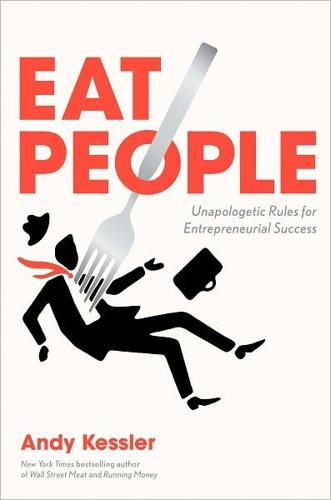
Eat People: And Other Unapologetic Rules for Game-Changing Entrepreneurs
by
Andy Kessler
Published 1 Feb 2011
I can steer you in the right direction whether you’re an entrepreneur or an investor or just looking for the right career. Just be warned. This is not some get-rich-quick scheme. You won’t find tips on flipping properties in these pages. What I’m talking about is a process that works over years and decades to keep generating wealth for those who sell and those who buy. And that is what generates progress. And wealth. I know. I’ve seen it happen. As I said, I’ve gone along for the ride many times. Musée “THIS PLACE IS SPECTACULAR.” It was, but I wasn’t about to let on. “Amazing.” I stifled a yawn. “And the artwork is something else,” Nancy, my wife, continued.
…
Travelocity and Expedia replaced travel agents. Online trading killed stockbrokers. I can go on and on. My point is this: get rid of humans and you have probably found a rich vein of productivity and therefore wealth. I know, I know, it sounds so awful. So Scrooge-like—fire Tiny Tim’s father on Christmas Eve to generate wealth. Okay, it’s not that bad. That’s the goal of every economy—to increase the standard of living of its participants. If that means over a generation replacing low-skill jobs with higher-skilled careers developing more productive tools, then you are creating wealth for the entire economy. We went from Stone Age to Iron Age to Industrial Age to Space Age and we’re now firmly in the Idea Age.
…
Mark Zuckerberg’s Facebook has embraced ten of the Rules; I leave it to you to figure out the ones he has missed, so far anyway. Some Rules are easy. Jeez, if you can’t find something that scales, you’re clearly not looking hard enough. Finding things that are adaptive to humans—that could be a little harder. The more filters you successfully apply, the more likely that you’ll find a longrun home run, something that generates wealth for decades on end, rather than some one-off one-hit wonder. I fully admit that most of my examples and most of my filters will point to technology and electronics and information technology ideas. Biotech and genomics are fascinating fields, but there are fewer examples of scale and an edge and adapting to humans than there are with someone writing code for a mobile device or something that soon has multiple terabytes of storage.
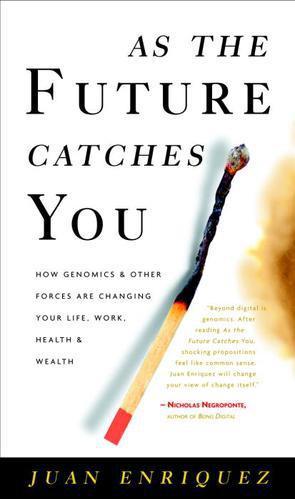
As the Future Catches You: How Genomics & Other Forces Are Changing Your Work, Health & Wealth
by
Juan Enriquez
Published 15 Feb 2001
You do not see these much anymore:3 FIRST Official, Flag of the Confederacy (1861) LAST Flag of the Soviet Union (R.I.P. 1991) (Just two out of hundreds of symbols and countries that survive only in museums and history books.) But why is it so hard to keep a country together today? Individuals can leverage technology. They no longer need a big state to get very rich. Because the way you generate wealth is very different today. In 1750, someone working in the world’s richest country was about five times wealthier than someone working in the poorest one. As long as economic development depended primarily on agriculture, it was hard for one region’s work to be far more valuable than that of its neighbor.
…
No border contained more gold, oil, uranium, or forest. (The distance from New York to Moscow is less than from Moscow to parts of the east coast of Russia.) The Soviet government decreed that the empire’s power depended … On exploiting natural resources. People became an instrument … To be used and controlled … Not the main means to generate wealth. The great scientists, engineers, and mathematicians worked on secret projects … And found it hard to travel, communicate, and apply what they knew. To photocopy an article … or to start a new business … was illegal. In a world that increasingly valued Entrepreneurship … Communication … Freedom … The Soviet Union got poorer and poorer … Until it went broke … and broke apart.
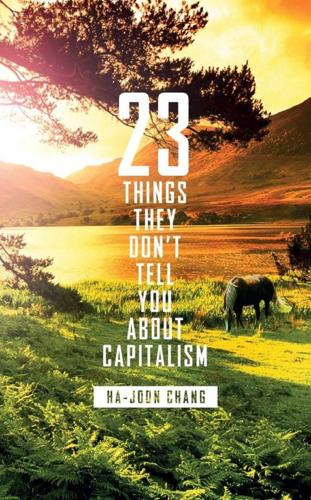
23 Things They Don't Tell You About Capitalism
by
Ha-Joon Chang
Published 1 Jan 2010
A business will do what it has to do in order to increase its profit, even if it means hurting its home country by shutting plants down, slashing jobs, or even bringing in foreign workers. Given this, many people argue, it is unwise to put restrictions on foreign ownership of companies, as many governments used to. As long as the company generates wealth and jobs within its borders, the country should not care whether the company is owned by its citizens or foreigners. When all major companies are ready to move anywhere in search of profit opportunities, making investment by foreign companies difficult means that your country is not going to benefit from those foreign companies that have identified good investment prospects in your country.
…
Moreover, if wages are not stuck at or below subsistence levels, additional income may encourage workers’ investment in education and health, which may raise their productivity and thus economic growth. In addition, greater income equality may promote social peace by reducing industrial strikes and crime, which may in turn encourage investment, as it reduces the danger of disruption to the production process and thus to the process of generating wealth. Many scholars believe that such a mechanism was at work during the Golden Age of Capitalism, when low income inequality coexisted with rapid growth. Thus seen, there is no reason to presume that upward income redistribution will accelerate investment and growth. This has not happened in general.
…
By providing unemployment benefits, health insurance, free education and even minimum income support, the welfare state has effectively given everyone a guarantee to be hired by the government – as an ‘unemployed worker’, if you like – with a minimum wage. Therefore, workers do not have enough incentive to work hard. To make things worse, these welfare states are financed by taxing the rich, reducing their incentives to work hard, create jobs and generate wealth. Given this, the reasoning goes, a country with a bigger welfare state is going to be less dynamic – its workers are less compelled to work, while its entrepreneurs are less motivated to create wealth. This argument has been very influential. In the 1970s, a popular explanation of Britain’s then lacklustre economic performance was that its welfare state had become bloated and its trade unions overly powerful (which is also partly due to the welfare state, insofar as the latter dulls the threat of unemployment).

The Challenge for Africa
by
Wangari Maathai
Published 6 Apr 2009
They have not strengthened their agricultural sectors, broadened their range of exports, developed mechanisms and industries to add value to the commodities they produce, or supported the entrepreneurial impulses and market heritage of the African people. At the same time, despite the priority placed on fair trade for Africa and other developing regions by international civil society, considerable obstacles remain. The African peoples' ability to engage in economic activities and creative initiatives that generate wealth are inhibited by mass-produced, imported consumer goods. These are often sold at prices cheaper than those of local goods, marginalizing homegrown businesses that cannot compete with giant transnational corporations and large sums of foreign capital. What also has been missing is access to, and the ability to capitalize on, information and knowledge; both of these problems stem from a lack of education and, in combination, constrain creativity.
…
One way to ensure that African countries are more self-reliant and competitive is for industrialized nations to transfer technology—with a priority on green technologies—to those nations that are technologically less advanced. But African countries themselves should also invest in science and technology. The clear need for capital investments to generate wealth for citizens and promote development does not obviate the equally clear need that the wealth created be produced and distributed in a manner that is fair and just. Investors must work closely with governments to promote businesses that benefit the people, and not take advantage of the weaknesses or corruption of those governments, or their laws and regulations, to exploit citizens.
…
Africans—not foreign corporations—should provide affordable and clean hotels for guests; reliable and comfortable transportation to and from the national parks; hygienic and safe restaurants where tourists can eat, perhaps offering indigenous foods; tea stalls that are attractive and clean enough for tourists to drink at; and professional cultural programs (not the usual kitsch that many visitors experience) that would engage visitors in the rich heritage of the continent's micro-nations. Much more revenue from tourism thus would stay in Africa, generating wealth and opportunities for citizens who are willing to be entrepreneurial and work hard to make a success of their businesses. The African people need to see that not only can tourism and conservation support their children's education, repair roads, and expand health facilities, but they can be part of the industry, too.
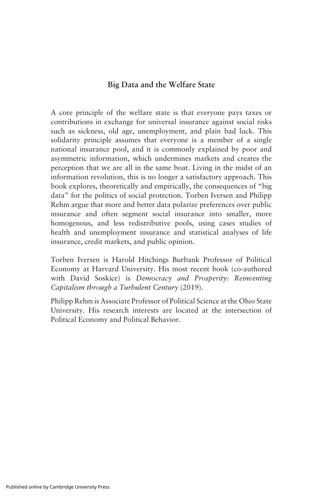
Big Data and the Welfare State: How the Information Revolution Threatens Social Solidarity
by
Torben Iversen
and
Philipp Rehm
Published 18 May 2022
Unanticipated drops in income as a result of long-term layoffs or illness, on the other hand, can lead to default, and this is what lenders worry about. The same is true for borrowing to buy a home, which for most people is a long-term investment that greatly enhances their welfare, while also potentially generating wealth – the proverbial nest egg (Ansell 2014). As in the case of other loans, discretionary income is reduced by the interest on the mortgage. Discretionary Income and Welfare Utility to the individual is equal to discretionary income (Di ), which is disposable income minus “mandatory” charges and spending on necessities, plus the utility of the consumption that borrowing, Li , in credit markets uðLi Þ enables: Ui ¼ Di þ uðLi Þ: (1) We focus on discretionary income.
…
Unanticipated drops in income as a result of long-term layoffs or illness, on the other hand, can lead to default, and this is what lenders worry about. The same is true for borrowing to buy a home, which for most people is a long-term investment that greatly enhances their welfare, while also potentially generating wealth – the proverbial nest egg (Ansell 2014). As in the case of other loans, discretionary income is reduced by the interest on the mortgage. Discretionary Income and Welfare Utility to the individual is equal to discretionary income (Di ), which is disposable income minus “mandatory” charges and spending on necessities, plus the utility of the consumption that borrowing, Li , in credit markets uðLi Þ enables: Ui ¼ Di þ uðLi Þ: (1) We focus on discretionary income.
…
Unanticipated drops in income as a result of long-term layoffs or illness, on the other hand, can lead to default, and this is what lenders worry about. The same is true for borrowing to buy a home, which for most people is a long-term investment that greatly enhances their welfare, while also potentially generating wealth – the proverbial nest egg (Ansell 2014). As in the case of other loans, discretionary income is reduced by the interest on the mortgage. Discretionary Income and Welfare Utility to the individual is equal to discretionary income (Di ), which is disposable income minus “mandatory” charges and spending on necessities, plus the utility of the consumption that borrowing, Li , in credit markets uðLi Þ enables: Ui ¼ Di þ uðLi Þ: (1) We focus on discretionary income.
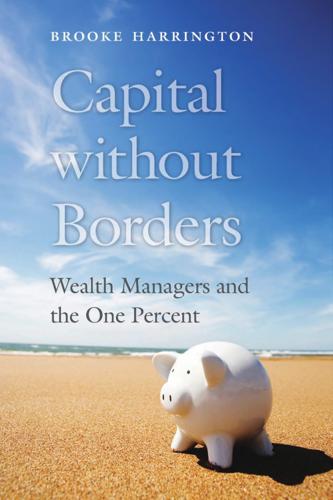
Capital Without Borders
by
Brooke Harrington
Published 11 Sep 2016
For example, the transmission of inheritances is regarded by a wide range of social scientists—from archaeologists examining Neolithic tribes to economists studying modern parent-child relationships—as an essential component in the maintenance of family solidarity and identity.56 By ensuring that assets remain under the ownership of a single family across generations, wealth managers contribute to the stability of those families and of the larger social structure. On the other hand, wealth managers may also find themselves presiding over the erosion of solidarity, in which inheritance—in the words of Marx and Engels—“reduce[s] the family relation to a mere money relation.”57 In some cases, the fortune that holds the family together may also destroy it.
…
As the data indicate, even income inequality itself is driven not so much by paychecks as by wealth put to work as capital. Specifically, economic research has found that for the most part, “the extremely large incomes of the income-richest are the realized capital gains from the sales of shares or other assets.”27 But while wealth generates income, it is more difficult for income to generate wealth.28 Although it is possible to acquire wealth based purely on labor income, those cases are exceptional; examples might include sports stars or entertainers. In light of this, economist Thomas Piketty recently observed that “wealth also generates income and … wealth originating in the past automatically grows more rapidly, even without labor, than wealth stemming from work, which can be saved.”29 The 1 percent As an example of the relative significance of wealth and income, consider the following illustration from the United States.
…
A 1997 book frequently referenced by participants in this study as the “bible” of the profession advises families that preserving their fortunes requires “the creation and practice of a system of representative governance,” preferably constituted as a republic.49 Family Wealth: Keeping It in the Family was written by a second-generation wealth manager and is often quoted by other books on wealth management.50 Many participants in this study said they bought the book in bulk to give to clients, in order to educate them about the strategy of long-term wealth preservation. This strategy involves having high-net-worth families create written constitutions to govern themselves, and to form representative assemblies that meet regularly to make joint decisions on the management of familial wealth and institutions.
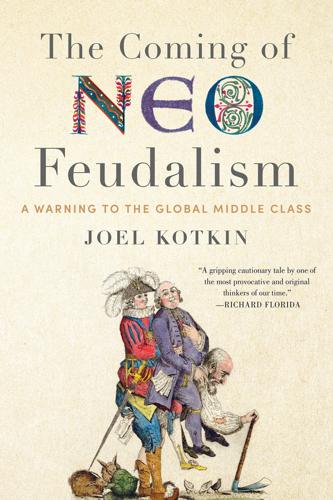
The Coming of Neo-Feudalism: A Warning to the Global Middle Class
by
Joel Kotkin
Published 11 May 2020
Long-Lasting Wealth Impacts of the Great Recession on Young Families,” in The Demographics of Wealth, 2018 Series: How Education, Race and Birth Year Shape Financial Outcomes, Center for Household Financial Stability, Federal Reserve Bank of St. Louis, May 2018, https://www.stlouisfed.org/~/media/files/pdfs/hfs/essays/hfs_essay_2_2018.pdf?la=en. 7 Val Srinivas and Urval Goradia, “The future of wealth in the United States: Mapping trends in generational wealth,” Deloitte Insights, November 10, 2015, https://www2.deloitte.com/insights/us/en/industry/investment-management/us-generational-wealth-trends.html. 8 Harry A. Patrinos, “50 Years of ‘Returns to Education’ studies,” March 19, 2015, World Bank Blogs, http://blogs.worldbank.org/education/50-years-returns-education-studies; Peter Orszag, “Why Are So Many College Graduates Driving Taxis?”
…
But even in the relatively crowded United Kingdom only 6 percent of the land is urbanized, while barely 3 percent of the United States is urbanized. The figure is 0.2 percent in Canada, and less than 0.3 percent in Australia.27 We are seeing an artificial shortage of developable space, which generates wealth for current homeowners while making it far harder for younger people to own property.28 In places that have high population densities, the situation is even worse. In Hong Kong, where housing prices have tripled in the past decade, some 210,000 middle-class and working-class residents now live in tiny spaces—some described as hardly bigger than a coffin—in illegally subdivided apartments.
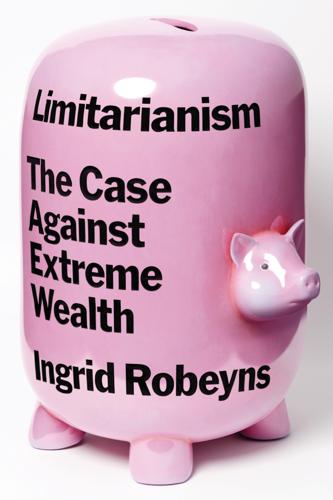
Limitarianism: The Case Against Extreme Wealth
by
Ingrid Robeyns
Published 16 Jan 2024
O’Neill also writes at length about how affluenza in a super-rich person often leads to addiction, causing dysfunction in the family, which in turn triggers addiction among their children when they grow up.8 Few have portrayed the emptiness of the world of super-rich kids as vividly as American photographer Lauren Greenfield. She had been interviewing and photographing the super-rich in Los Angeles for twenty-five years, resulting in the impressive photo book Generation Wealth, published in 2017 at the same time as a museum exhibition and a documentary film. In addition to exposing appallingly wasteful luxury spending, the interviews and photos also show mostly unhappy children. The extravagance around them does not bring them any joy: they are habituated to it. When you grow up in luxury, especially if you are living in the bubble of other very rich people, then an extravagant consumption pattern becomes normalized.
…
O’Neill, The Golden Ghetto: The Psychology of Affluence (Center City, MN: Hazelden, 1997). 8. Ibid. O’Neill defines an affluent person as someone who doesn’t have to work to maintain an upper-class lifestyle. That certainly includes anyone living beyond the political limitarian threshold of 10 million pounds, dollars, or euros. 9. Lauren Greenfield, Generation Wealth (New York: Phaidon Press, 2017). The interview with Wendy is on p. 33. 10. Mihaly Csikszentmihalyi, “If We Are So Rich, Why Aren’t We Happy?,” American Psychologist 10 (1999), pp. 821–7. 11. Morgan Housel, The Psychology of Money: Timeless Lessons on Wealth, Greed, and Happiness (Petersfield: Harriman House, 2020), quotation on p. 42. 12.
…
See also World Economic Forum (WEF) declining marginal value of money 146, 184 degrowth 213 democracy collective decision-making and 74–5 commodification of citizenship 77–80 corruption in 48 Davos Men and 91–3 equality and 31 illiberal democracies 73, 77, 94 kleptocratic practices in 51–2 liberal democracies 73–4, 94, 141, 180, 219, 222 lobbyists and 84 media outlets, super-rich ownership of and 86–9 neoliberalism and 216 persuasion and xxvi philanthropy and 175–9 political funding and 80–84 property-owning democracy 213 research body/think tank donations and 89–90 transnational capitalist class 92 Universal Declaration of Human Rights and 72 wealth undermining 71, 72–95, 106, 116–17, 139 Democratic Party, US xxi denial machine 104–6, 113 dental care 26 deregulation 35, 54, 89, 90, 210 Desmond, Matthew: Poverty, by America 37 dichotomous thinking 208 Dietsch, Peter 222 direct cash transfers 152 business practices, harmful 52 corporate irresponsibility 55 corruption 47–52 crimes against humanity and 43–5 dirty money 41–71, 76, 78, 105, 112, 118, 124, 166, 222 labor rights, violation of 57 letting others pay for your mistakes 54 tax dodging 60–8 disabilities 14, 31, 56, 75, 132, 133, 155, 157, 171, 200 discovery argument 177–8 discrimination 125 Disney xxv, 156, 172 Disney, Abigail xxv, 32, 156, 172–4, 193–4, 195, 199, 217 Disneyland, California 156 distributive justice 106 Dominion 88 doughnut economy 213 Dow Chemical Company 56–7 Drèze, Jean 21 drought 99 Duke University 204 Dutch Labour Party 141 Duty Free Shoppers (DFS) 164–5 economic growth 22, 34, 39, 159, 189 economic power, balance of 219–221 economic systems 33, 91, 120, 181, 229 alternative/new 208–14 economy of the common good 213 education access to xv, 14, 18, 143 class/social integration and 30, 33, 35, 218 disabilities/developmental disorders and 157–8 free high-quality xv, 14, 143 neoliberalism and 217 non-financial incentives 163 effective altruism 179 efficiency 31, 170–71, 172, 210, 216 elephant graph 21 Elizabeth II, Queen 7 empathy 198, 199, 217 Engelhorn, Marlene 8, 65 entrepreneurship xxv, 11 climate change and 106 good life and 141 inheritance and 133, 134, 139 institution-building and 149 neoliberalism and 159, 162 philanthropy and 18, 164, 166 poverty 36, 92 “profits before people” philosophy and 57 tax and 35, 60, 62, 70, 161 World Economic Forum and 42 envy xiii, xx–xxii equality awareness of inequality levels xii, 8, 190, 204–6 capitalism and see capitalism class and 31–2 climate change and 97, 101, 104 democracy and 72–6, 80, 82–5, 94–5, 190 doughnut economy and 213 envy and xxii equal opportunity 73, 142 gender and race dimension to wealth inequality 28 Global North/Global South trade relations and 23, 136 health of economy and 39 importance of inequality 36–7 increase in inequality xii, xxiii, 2–3, 5, 27–9, 32–3, 38, 41, 61, 122, 200, 210, 218 inheritance and 122, 123 limitarianism and xviii, xx–xxi, 212 London and see London morality, wealth inequality and xiii, xiv, xvii, xxv, xxvi, 15, 16, 24, 36, 118, 120, 122, 125, 134, 136, 138, 148, 161, 187, 188, 193, 194, 197, 198, 199, 212, 225 neoliberalism and 34–5 Oxfam report on inequality 3, 17 pay and 126, 131, 132, 224 philanthropy and 168, 169, 172, 175–6 political upheaval and 189 poverty and see poverty structural action and xv super-rich warn against xxi, 188–9 types of inequality 25–26 wealth inequalities within countries, increasing 27–8 wealth inequalities within countries, size of 26 work and 220–21 Equatorial Guinea 47, 76 ethical limit xviii, 12, 15–6, 93, 117, 139, 186 European Commission 79, 84 European Union (EU) 78, 79, 84, 87, 105, 223 Extinction Rebellion 114 Exxon Mobile 96, 98, 105 famine 99, 149 fashion industry 57–8, 135, 142, 223 “fast” fashion 57–8, 135, 142 Feeney, Charles “Chuck” xxiii, 164–7, 218 Felber, Christian 213 financial crisis (2008) xii, 2, 9, 54, 55, 210 Financial Times 128 fiscal action xvi, xvi fiscal agency 221–2 “flexible” jobs 210 flooding 75, 99, 113 Floyd, George 191, 192 Follow This 97 Food and Drug Administration, US 53 food banks 2, 156, 167, 176 food consumption 108 food poverty 150 Forbes xi, 23, 50, 53, 58, 66, 133, 135, 157, 165 Forum voor Democratie (Forum for Democracy) 51 Fox News 87–8 France 24, 25, 27, 31, 45, 46, 92 Free University of Amsterdam’s Climate and Sustainability Law Clinic 102 full determinism 131–2 Gates, Bill xi, xxi, 8, 18, 137, 165, 177; How to Avoid a Climate Disaster 113 gender 21, 28, 73, 190, 194 General Motors 98, 194 Gilens, Martin 83 Giridharadas, Anand 91, 92; The Persuaders xxvi Giving What We Can 185 Glasser, Susan 89 globalization 20, 26, 32, 92 Global North extreme wealth concentrated in 25 fashion brands in 58 migration into 79, 94 mixed economy in 209 oil business and 48 refugees in 79 unequal exchange and 23, 136, 153 Global South climate change and 94 crop yields in 100 exploitation of 21, 23, 136, 153 extreme poverty in 2 golden visas and 80 labor in 154 limitarian ethos and 186 unequal exchange and 23, 136 Global Wealth Report 24 golden passport 77–8 golden visa 77–80 Goldman Sachs xvii Good Ancestor Movement 183, 192 good life xxiii, 11–3, 124, 141, 148, 182, 186, 201 Goodman, Peter 91, 92 Google 66, 137 Google Holdings 66 Green, Fergus 224 Greene King 47 Greenfield, Lauren 195; Generation Wealth 195 greenhouse gases 36, 85, 90, 96–7, 100, 101, 106, 108 Greenpeace 96 green transition 105, 108, 111, 114–116 greenwashing 115 Grenada 47 gun regulation 90 Gupta, Rajat 196 Haarmann, Claudia 235 Haarmann, Dirk 149 Haiti 46 Hamm, Jon 129 Hanauer, Nick: “The Pitchforks are Coming … for Us Plutocrats” 188–9 Harvard Business School 204 Harvard University 90 Haslett, D.
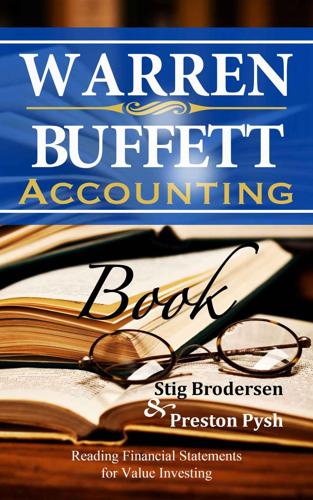
Warren Buffett Accounting Book: Reading Financial Statements for Value Investing (Warren Buffett's 3 Favorite Books)
by
Stig Brodersen
and
Preston Pysh
Published 30 Apr 2014
Of the variety of investment possibilities in this world, only a few categories generate income on a consistent basis. Stocks, as a whole, are one of them. The distinction between investments that generate profit and those that do not is important to consider. A category that does not generate income is precious metal. Examples could be gold, silver or diamonds: while a company generates wealth back to the owner from profit, a piece of gold does not produce anything. There is no cash flow generated back to you. The only way you can make money in gold is if someone thinks that the piece of gold is worth more than you paid for it. History has also shown that there is something to it.
…
From your vantage point, inflation is a constant drag or friction on your ability to make returns. Too much inflation creates uncertainty, and that is not good for lenders, companies, consumers or the exchange rate. There will be fewer investments and spending, which, as we have just learned, is not good for employment and general wealth in society. Too much inflation also means that people living on fixed incomes, such as pension benefits, experience less buying power for their money as time goes on. This brings us back to the concept of real dollars. We are interested in what we can buy for our money—not how much money we have.
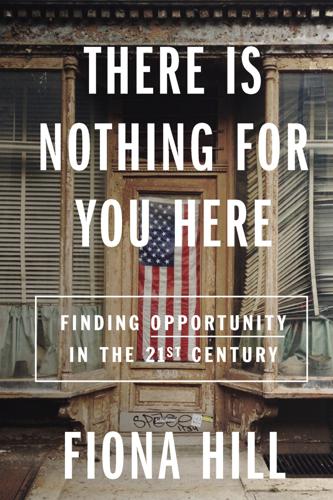
There Is Nothing for You Here: Finding Opportunity in the Twenty-First Century
by
Fiona Hill
Published 4 Oct 2021
Now and then a couple of horses would be tethered there to eat dandelions and nettles. Buying a house was a big deal for all of us. In addition to providing a source of security as a permanent place to live, it put more opportunity within our grasp. In the United Kingdom, just as in the United States, homeownership was directly connected to the prospect of building up generational wealth. Both Mam and Dad had grown up or lived in rented workers’ housing and council houses. No one in their direct lines of descent had ever owned a house. They knew from experience—given the fact that Dad had been homeless, lived in a condemned building, and frequently had to miss school—that living in your own house improved children’s life chances.
…
The negative statistical divergence in individuals’ incomes and their life outcomes could even be traced directly on a graph to 1980, around the time when I started my own journey out of poverty in the UK. Race in the United States added an extra and distinct dimension of disadvantage for poor Americans. In some research, American fathers passed on about 50 percent of their income advantage to their sons. Generational wealth had a major impact on children’s prospects, as was the case for me back in the United Kingdom. But in the United States, the average Black family had ten times less accumulated wealth than the average white family. And they were far less likely to own a home. This was often due to the legacy and persistence of restrictive zoning laws, tax code biases, and mortgage lending prohibitions dating from before the 1960s and the Civil Rights Act.
…
He also attended courses at nights and weekends at Teesside Polytechnic (now Teesside University) in Middlesbrough, which hosted the Open University classes. Jeff graduated with a BSc in technology and systems. He parlayed the degree into a senior position as systems engineer for mainframes and networks. His additional training and education provided an immediate boost to his employment prospects and ability to generate wealth. Most importantly, like me, Jeff did all this without accruing any educational debt. As his experience demonstrated, there were different routes to a good job and educational attainment. You didn’t have to take the route to an undergraduate degree that I did and head off to an elite university.
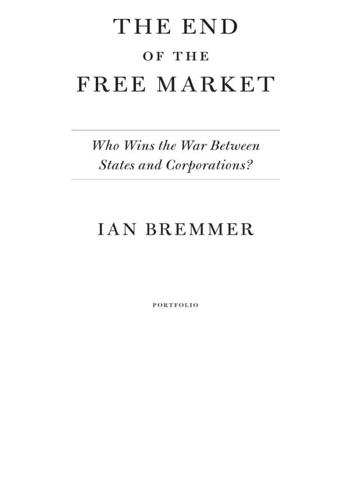
The End of the Free Market: Who Wins the War Between States and Corporations?
by
Ian Bremmer
Published 12 May 2010
There are several reasons why governments create and use sovereign wealth funds. First, in countries that export large amounts of oil, gas, metals, minerals, and other valuable commodities, these funds can help transform finite, nonrenewable assets buried deep in the ground into financial assets that, if managed intelligently, can generate wealth indefinitely. They can also help governments survive the natural volatility in commodity prices. Some Persian Gulf Arab states learned the importance of this strategy the hard way. They sharply increased state spending when oil prices surged in the mid-1970s. But as oil prices tested new lows in the 1980s, their budget problems multiplied.
…
Privatizing state-owned firms offers trade unions and rival parties a chance to score political points at the government’s expense. It’s safer to simply remove their advantages and force them to adapt. This may be the long road to reform, but it has begun to pay dividends. Privately owned companies now play a much larger role than they used to in generating wealth. In the mid-1980s, the public sector accounted for more than half of investment. By 2008, this figure had fallen to less than 25 percent. In addition, state-owned Indian companies now tend to be run by former state officials chosen for their managerial ability, not political cronies handpicked for their loyalty.
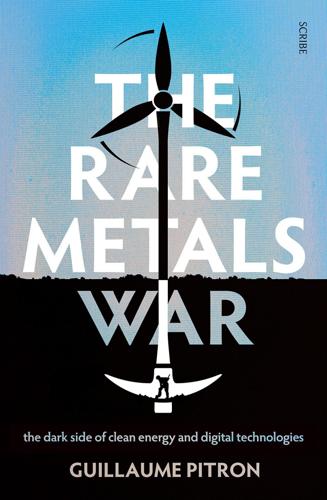
The Rare Metals War
by
Guillaume Pitron
Published 15 Feb 2020
In the twenty-first century alone, their use has consolidated China’s supremacy and accelerated the weakening of the West that began at the turn of the millennium. But the rare metals war is far from lost. China has made some colossal errors; the West can respond; and the technical progress we have yet to make is bound to transform how we generate wealth and energy. Until then, this book recounts the dark side of the story of the world that awaits us. It is an undercover tale of a technological odyssey that has promised so much, and a look behind the scenes of our lavish and ambitious quest that involves risks as formidable as those it sets out to resolve.
…
From 2014, all of Indonesia’s mineral resources — from sand to nickel, and diamonds to gold — were no longer exported in raw form. As explained by Indonesian authorities, ‘The minerals we don’t sell now will be sold tomorrow as finished products.’ As in China, this policy was a powerful way to generate wealth. By some calculations, preserving the added value in this way quadrupled profits on iron, increased profits on tin and copper sevenfold, bauxite profits by a factor of as much as eighteen, and nickel profits by as much as twenty. The Indonesians did far more than replicate the Chinese model: they innovated by laying the foundations of financial nationalism.
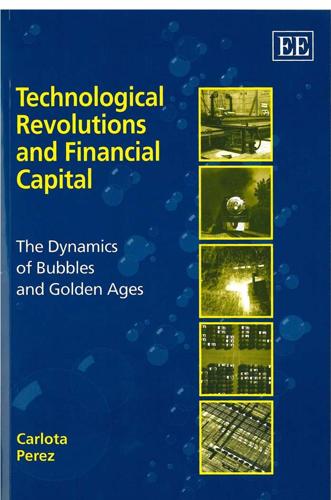
Technological Revolutions and Financial Capital: The Dynamics of Bubbles and Golden Ages
by
Carlota Pérez
Published 1 Jan 2002
The present distinction is therefore more in line with Veblen’s (1904) view of the difference – and even opposition – between the ‘captains of finance’ and the ‘engineers.’ 71 72 Technological Revolutions and Financial Capital lytical definition, these agents do this with borrowed money from financial capital and then share the generated wealth. If they are using their own money, they are then performing both functions. Their purpose as production capital is to produce in order to be able to produce more. They are essentially builders. Their objective is to accumulate greater and greater profit-making capacity, by growing through investment in innovation and expansion.
…
Imagination moves from real estate to paintings, from loans in far away countries to pyramid schemes, from hostile takeovers to derivatives or whatever. Decoupling in the frenzy phase After the growing confidence acquired in the previous phase, financial capital becomes convinced it can live and thrive on its own. Brilliant successes in a sort of gambling world make it believe itself capable of generating wealth by its own actions, almost like having invented magic rules for a new sort of economy. Production capital, including the revolutionary industries, becomes one more object of manipulation and speculation; the decoupling between financial and production capital is almost complete. Nevertheless, this is a time of innovation for production capital; the new paradigm opens vast opportunities for new products, processes and services as well as for rejuvenating the old.
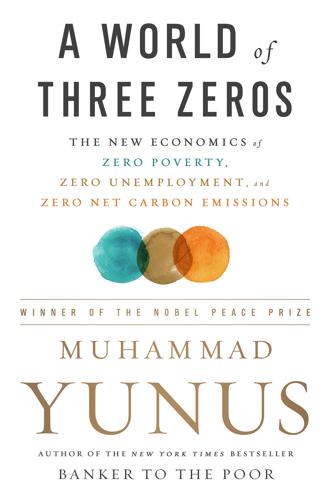
A World of Three Zeros: The New Economics of Zero Poverty, Zero Unemployment, and Zero Carbon Emissions
by
Muhammad Yunus
Published 25 Sep 2017
Many entrepreneurs take the leap by opening a small shop, buying a goat or cow, starting a taxi service with a single vehicle, or offering a few handmade craft items for sale. Just like the high-flying entrepreneurs of Silicon Valley, they are investing their time and resources in a business based on a creative idea that they believe in. Over time, if they are successful, they may expand their operations, creating jobs, generating wealth, and helping to grow their local economies. That’s exactly what millions of mostly small entrepreneurial businesses are doing all over Uganda, just as in many developing countries. In the process, they are helping to gradually lift their country and its people out of poverty. They demonstrate one of the fundamental principles of the new economic structure I advocate—that the skills and instincts that make entrepreneurship possible are shared by all human beings, not just a select few.
…
Like for-profit businesses, they are registered under the business law, have owners, are financially sustainable, have customers who buy goods or services, and return investment capital to investors over time. But like nonprofit organizations, they are solely dedicated to the welfare of people and the planet; they do not seek to maximize profits, nor do they serve the purpose of generating wealth for their owners. They resemble nonprofits in that they seek to serve the greater good—but they do so in a businesslike manner. That creates a big difference between charity and social business. A charity dollar can be used only once, while a social business investment dollar is recycled indefinitely.
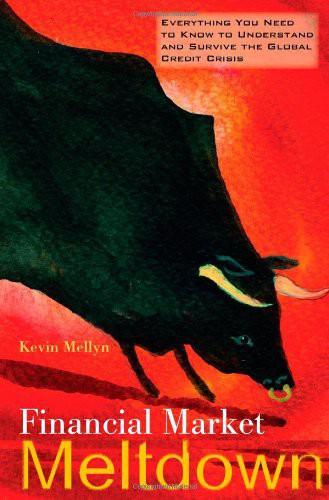
Financial Market Meltdown: Everything You Need to Know to Understand and Survive the Global Credit Crisis
by
Kevin Mellyn
Published 30 Sep 2009
It was more art than science, and required experience as well as training. Credit rested on a sort of rule Bagehot would have endorsed called the five ‘‘Ps’’: First, People, their overall character and standing in the community. Knowing and trusting your customer was fundamental. Second, Purpose, the use the money would be put to, especially whether it would generate wealth or income. Third, Payment, a clear understanding of where the money to repay the loan would actually come. Fourth, Protection, what collateral or guarantees could secure the loan if Payment fell through for any reason. Fifth, Perspective, did the proposition of this customer borrowing this amount of money pass the test of common sense?
…
So, even when effective, the availability cheap money is always dangerous. However, sometimes the problem is deeper, and even very cheap money doesn’t restore market confidence. Low interest rates are like a string the central bank can use to draw entrepreneurs and investors back into taking the kind of risks that produce jobs and generate wealth. As has often been noted, you can’t push on a string. Flooding the market with cheap money is totally ineffective if risks outweigh any obvious opportunities to make money. Cheap money is useless if nobody wants to use it or if those who want to use it no longer should have it because of the risk they represent.
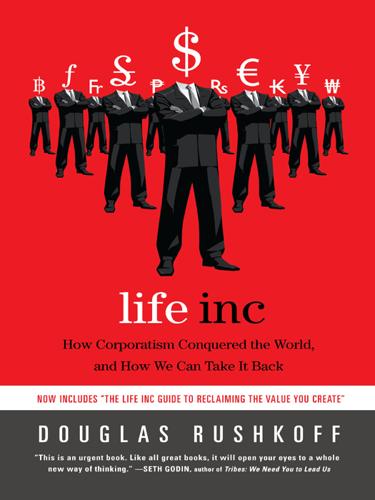
Life Inc.: How the World Became a Corporation and How to Take It Back
by
Douglas Rushkoff
Published 1 Jun 2009
We look to the Dow Jones average as if it were the one true vital sign of our society’s health, and the exchange rate of our currency as a measure of our wealth as a nation or worth as a people. This, in turn, only distracts us further from the real-world ideas and activities through which we might actually re-create some value ourselves. Instead of fixing the problem, and reclaiming our ability to generate wealth directly with one another, we seek to prop up institutions whose very purpose remains to usurp this ability from us. We try to repair our economy by bolstering the same institutions that sapped it. In the very best years, corporatism worked by extracting value from the periphery and redirecting it to the center—away from people and toward corporate monopolies.
…
That’s why it has become fashionable, cathartic, and to some extent useful for the defenders of civil society to rail against the corporations that seem to have conquered our civilization. As searing new books and documentaries about the crimes of corporations show us, the corporation is itself a sociopathic entity, created for the purpose of generating wealth and expanding its reach by any means necessary. A corporation has no use for ethics, except for their potential impact on public relations and brand image. In fact, as many on the side of the environment, labor, and the Left like to point out, corporate managers can be sued for taking any action, however ethical, if it compromises their ultimate fiduciary responsibility to share price.
…
Louis’s own coinage was gold, stable, and Christian enough to earn the moniker “good money.” Of course, with absolute power to create economic value comes absolute power to siphon it off. Louis’s grandson Philip IV used his grandfather’s assumption of authority over currency to turn good money into bad. Young Philip’s whole approach to generating wealth was to monopolize internal resources instead of trading with others. He outlawed all local currencies, and forced everyone to use his coin of the realm for both local and long-distance trade—with taxes he established. When the amount of wealth he could extract from his own territories reached its limit, he’d go to war for more territory, then exploit the new lands.
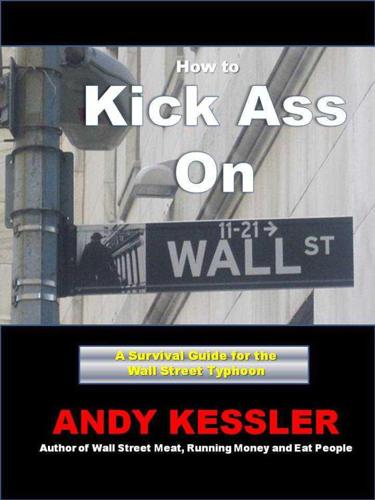
How to Kick Ass on Wall Street
by
Andy Kessler
Published 4 Jun 2012
Wall Street sneezed and the World caught pneumonia. Wall Street is not a bunch of greedy bastards shaking down Main Street for every last dime – although there are plenty of those types of ass wipes that do work on Wall Street. Wall Street provides a needed function in the economy. It is real. It provides real economic value. You will generate wealth, for yourself AND for society. Really. But believe me, it’s hard, if not outright impossible, for most others to see this value. Movies like Wall Street don’t help. Nor does Bernie Madoff or any of the other villains. And what the heck, Goldman Sachs Lloyd Blankfein and JP Morgan’s Jamie Dimon don’t help the cause with their massive compensation.
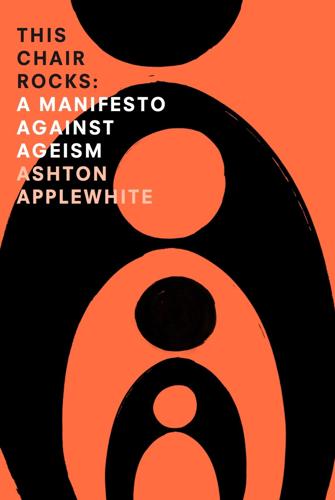
This Chair Rocks: A Manifiesto Against Ageism
by
Ashton Applewhite
Published 10 Feb 2016
Describing “a new stage of human history,” Linda Fried, Dean of Columbia University’s Mailman School of Public Health, referred to “the only natural resource that’s actually increasing: the social capital of millions more healthy, well-educated adults.” A growing body of knowledge from very different schools of thought—including the Rand Corporation and Chicago, Belfast, Harvard, and Yale Universities—now acknowledges that health, along with the longevity it brings, are important economic drivers that generate wealth, by affecting health care costs, labor-force participation rates (given the appropriate incentives), worker productivity, and the financing of pension systems.9 Yet there’s more hand-wringing than back-patting going on A little less worried about the tug of time on your own prospects? It’s no time to relax!
…
A blue-chip panel of experts convened in 2015 by the Leaders of Aging Organizations concurred that we can provide for the health care and retirement income security needs of older Americans by using existing resources more efficiently.29 It’s the right move economically as well as ethically. Over the last century, national GDPs around the world, along with lifespans, have rapidly increased.30 Health and longevity generate wealth. Spending money on older people is often portrayed as a cost. It is an investment. Spending money on older people is often portrayed as a cost. It is an investment—not just for ethical reasons and not only because everyone will benefit down the line. Better health systems would keep people healthier, enabling them to work longer, contribute more to the economy, and cost less.
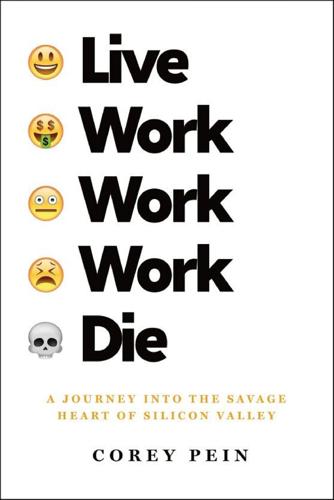
Live Work Work Work Die: A Journey Into the Savage Heart of Silicon Valley
by
Corey Pein
Published 23 Apr 2018
Many buyers were full-time Fiverrers in places like the Philippines or India, where $5 went a lot farther, he said. The book also marked a transition for Corey, as he spent less time doing the labor-intensive Web design and more time searching for the cold fusion of internet marketing: “passive income.” This was shorthand for a variety of techniques whereby one could generate wealth while sitting around doing nothing. Some were proven yet not easily attainable, such as living off the compound interest from one’s investments and savings. Others—unlike Corey’s methods—were elaborate, unworkable, or illegal, such as pyramid schemes and spambot-powered credit card fraud. Compared to more reliable methods of generating passive income, like inheriting a trust fund, these scams had a relatively low barrier to entry.
…
“Crowdfunding?” I said, anticipating his advice. “Actually,” he said, “you could convince the unions.” That actually wasn’t a bad idea. I should pitch Laborize to the unions. * * * First, I would need to retailor my pitch. On one level, Laborize was a sensationally cynical gambit designed to generate wealth for a single individual: me. But on a deeper level, it was a sensationally cynical gambit designed to trick the capitalist elite into underwriting their own downfall, a bet that the tendency to favor short-term gains, combined with the usual element of schadenfreude, would outweigh their long-term interest in suppressing the labor movement.

Wall Street: How It Works And for Whom
by
Doug Henwood
Published 30 Aug 1998
Moreover, ''spending releases funds just as much as saving does, and ... these funds when released can then be used indifferently for the production either of capital goods or of consumption goods" (CIFXIV, pp. 216, 219, 222, 229, 232, 281, 282). Money must circulate, not congeal into a hoard. Like the Treatise, the General Theory's message is resolutely expansive: spending, not sparing, generates wealth. Moralists, whether Calvin-ist, neoclassical, or even Marxist, find this aspect of Keynes scandalous, a reaction he seemingly went out of his way to provoke. Much of Chapter 23 is devoted to a rehabilitation of historical kindred spirits, of whom official opinion disapproves: mercantilists, immoralists, underconsumptionists, promoters of usury laws — even that old monetary crank Silvio Gesell.
…
Besides these needs from the borrowing side, there is also the need of capitalists and rentiers to deploy their money profitably; these surpluses, which emerge from production, drive the supply of credit. The credit system makes all forms of capital fungible; it lubricates the transition of every form of wealth into its most wonderfully liquid form, money — "the material representative of general wealth" (Marx 1973, p. 233) — and makes it possible for money, sterile in itself, to be transformed into profit-seeking capital. From this point of view, both sides of the argument between neoclassicals and Keynesians about whether savings precedes investment or vice versa seem reciprocally incomplete; the two activities depend on each other.
…
Michael, 311 monetarism, 137, 191, 199-202 empirical record, 201-202, 242 part of the apparatus of crackdown, 201 ■Volcker's faux, 201 Walters' outburst, 242 monetary crank, 2^3 monetary policy, q theory and, 144-145; see also central banks; Federal Reserve monetary theory of production, 199, 231 money coercive aspects, 232 and crisis Keynes, 202-205 Marx, 232-236 definitions, 191 economists' treatment of, 10 endogenous, 200, 217-221 Marx on, 220-221 political implications, 220 see also post-Keynesianism exogenous, 217 face of the boss, 301 vs. finance, 183 in formation of capitalism as system, 245 as general wealth (Marx), 233 as a kind of poetry, 224 local, 302 neutrality of. 137 classical position, 199 and Greenspan, 158 how finance matters, 153-161 origin of term, 199 as object of greed, 236 political struggle over definition, 93-94 and power, 11 psychology of, 224—229 anal roots, 225-226 ascetic cultism, 224-225 interest rate effects on sentiment, 119 Marx and, 236-237 mob psychology, 176-177, 185 goldbugs, 244 refusing, 320 reticence about, 52 rule of, 232 ending, 321 smart vs. dumb, 53 as social bond (Marx), 231 ultimately a state thing, 232 velocity of, 191 money-center banks, 82 money managers damning self-evaluation, 291 get others to save for them, 239 poor performance of, 3, 165 Monks, Robert, 293, 299 Monthly Review. 230, 261 Moore, Basil, 218 moral hazard, 88 moralizing, 70 Morgan,J.P.,82, 93, 260 Morgan 0?)
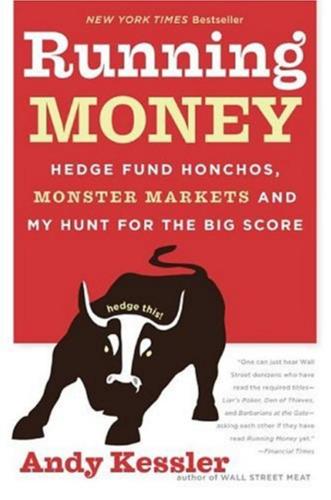
Running Money
by
Andy Kessler
Published 4 Jun 2007
I kind of realized toward the end that although I’m in the business of running money—we had a billion dollars under management at our peak—I barely had time to think out the most important question: What is wealth? Wealth is fleeting, I suppose, from the looks of the last year and a half, but there must be some absolutes. Industrialists generated wealth. But what about now—in a postindustrial world? The answer makes a difference in how to put money to work. Those “families with substantial assets” had wealth, but it wasn’t static. Every generation it shrank unless they chased returns. No rest for the weary. But they don’t like risk. Well, too bad.
…
You can be a long-term investor, but you constantly have to adjust your sights to the next big thing. We may be in the midst of a long cycle like the British 100-year industrial boom, but that doesn’t mean you can buy and hold and be on the golf course by noon. What startles me is that those who generate wealth in Silicon Valley run at 100 miles per hour. They don’t own anything of value like a textile mill or an auto factory. They own a process, the 234 Running Money ability to constantly update their products and take advantage of that waterfall, some massive price declines and then move on to the next product or process.
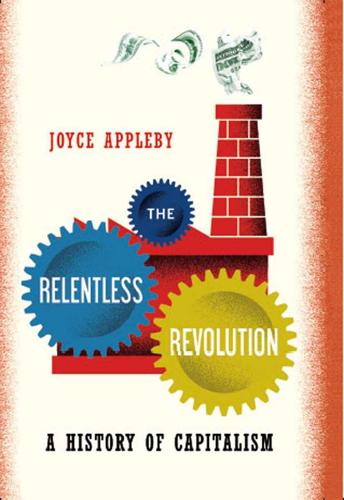
The Relentless Revolution: A History of Capitalism
by
Joyce Appleby
Published 22 Dec 2009
Over time the relentless revolution increased the exploitation of natural resources and the accompanying degradation of the environment. “Can the globe sustain these capitalist successes?” has become an urgent question. Capitalism has produced some enduring tensions, evident from the sixteenth century onward. Where the extremes of riches in a society of scarcity were usually tolerated, capitalism’s capacity to generate wealth made salient, and hence open to criticism, inequalities in the distribution of economic and political power. Similarly, government interference was acceptable when the society was at risk of starving, but no longer so when the system seemed to function better when its participants had the most freedom.
…
In time traditional ways of acting and thinking lost their controlling power. They became options, to be chosen as matters of taste. A different, dominant ethos took shape, not so much making people freer as turning economic freedom and individual rights into values considered fundamental. Once its amazing power to generate wealth was detected, most countries, at least in the West, wanted part of the action. When capitalism emerged in eighteenth-century England, it was relatively easy for other countries to copy English innovations. They could also discriminate between what they wished to copy and what they found distasteful in the modernizing dynamic of.
…
An alternative way of life comes in with its CDs, DVDs, videos, TV shows, and movies. More Personal Choices with Capitalism Capitalism has encouraged countless new drugs and medical procedures. Perhaps the most revolutionary of all for women has been effective birth control. This means that while busy generating wealth, the market has also increased the number of options in people’s lives, setting off what might be called a rebellion of the womb. Birthrates are dropping precipitously, as women in the West and Japan are having fewer children, and many having none at all. This has shocked those who thought that they understood women’s natures.
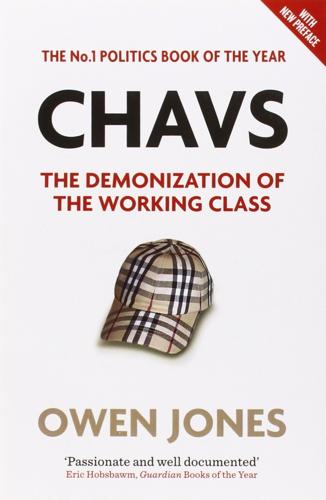
Chavs: The Demonization of the Working Class
by
Owen Jones
Published 14 Jul 2011
What struck me was his willingness to make an intellectual argument in defence of inequality. 'I wouldn't try and do anything about correcting the inequalities,' he explained, 'because the inequalities are widened by people getting richer, not by the poor getting poor-but by the rich getting richer. And frankly, so long as they generate wealth for the economy, so long as they generate tax income and so on, then I'm comfortable with it.' I pointed out the recent groundbreaking research by academics Richard Wilkinson and Kate Pickett in their book, The Spirit Level. They used irrefutable statistics to show that the more unequal a society is, the more social problems it has-like crime and poor health, for example.
…
But politicians will argue that it is electorally impossible to introduce progressive policies that upset supposedly crucial, but completely misconstrued, 'Middle Britain' swing voters. It even became fashionable among many politicians and commentators to celebrate inequality. Inequality is good because itpromotes competition, goes the theory, and it shows that the people at the top are generating wealth. The corollary of this is the idolization of the rich as 'wealth creators' and entrepreneurs, who have achieved success purely through their own hard work and talent. The class politics of the wealthy has proved extraordinarily effective at demolishing its opponents. Itloudly asserts-c-as Margaret Thatcher famously put it-that 'There Is No Alternative'.
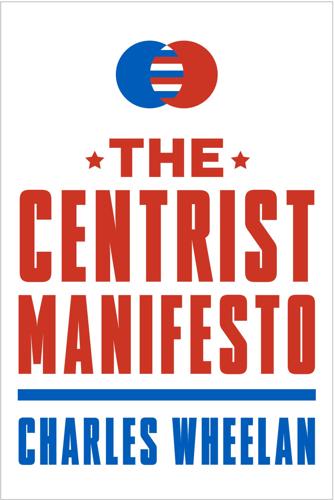
The Centrist Manifesto
by
Charles Wheelan
Published 18 Apr 2013
Does any informed, moderate voter who leans right really believe that global warming is a scam? Probably not, but those right-of-center voters cast Republican ballots for good reasons too. The Republicans appreciate the importance of personal responsibility; they have respect for the forces that generate wealth and prosperity; they recognize that not every social problem has a government solution. Too bad the sensible small-government vision is currently intertwined with a right-wing social activism and a bizarre lack of respect for science and data. Mitt Romney was the epitome of a qualified presidential candidate compelled to say stupid things during the primaries to placate the zealots in his own party (while horrifying moderate voters).
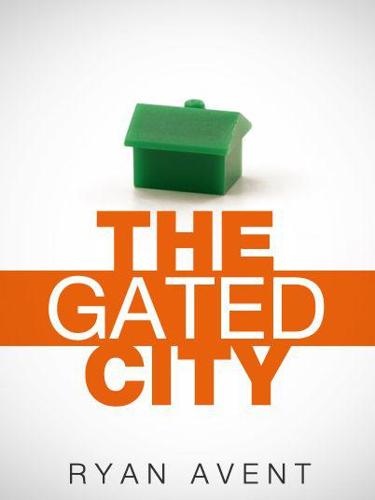
The Gated City (Kindle Single)
by
Ryan Avent
Published 30 Aug 2011
It is especially important given the way that information technology seems to magnify the role of dense cities in fostering entrepreneurship, productivity and employment gains, and growth. **** Density isn’t a magic elixir. Other things equal, a denser city will be more productive, but density alone isn’t enough to generate wealth. We can see this by comparing American cities with European and Asian counterparts; output per person is often higher in the US despite lower metropolitan densities. Within the American economy, New York is the country’s densest city but not its most productive. Density facilitates interaction, and it will therefore be most important where economic activity is most dependent on personal interaction.
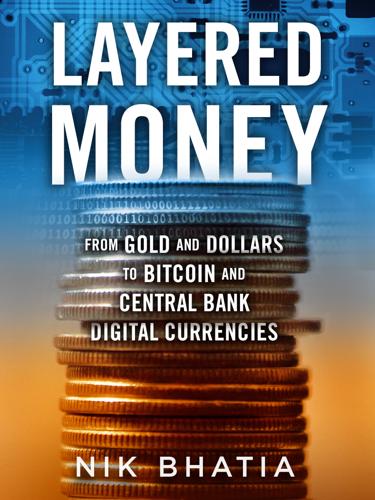
Layered Money: From Gold and Dollars to Bitcoin and Central Bank Digital Currencies
by
Nik Bhatia
Published 18 Jan 2021
Humans used seashells, animal teeth, jewelry, livestock, and iron tools as tokens of barter for tens of thousands of years, but eventually settled on gold and silver in the past few millennia as globally accepted forms of currency. Something about these two chemical elements exuded preciousness, and humans anointed them as the quintessential money. This anointment was responsible for a tremendous advance in the globalization of human civilization, as precious metals provided improved ways to preserve generational wealth and facilitate trade between complete strangers in different corners of the planet. Selecting what was to be used as money wasn’t always easy. Shells might have been perfect for trade a thousand miles from the ocean but were plentiful by the seashore for others and thus not a great tool for storing value across generations and continents.
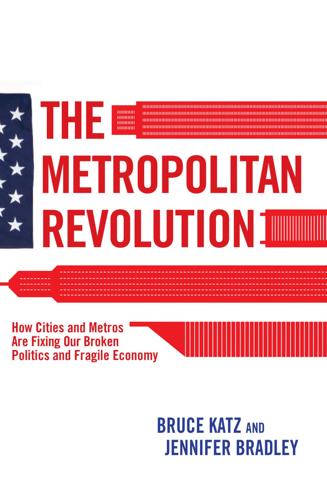
The Metropolitan Revolution: How Cities and Metros Are Fixing Our Broken Politics and Fragile Economy
by
Bruce Katz
and
Jennifer Bradley
Published 10 Jun 2013
Over the past three decades, these places have labored to improve the delivery of core services such as education and public safety to ensure good schools, safe streets, and a high quality of life. Now they are innovating in the service of a grander ambition and necessary purpose: a local economy that generates wealth and shares prosperity. For fifty years, metropolitan areas have relied on their biggest single investor—the federal government—to finance infrastructure, housing, innovation, and human capital. They have dutifully competed for federal grants and aligned their visions and strategies to the federal focus du jour.
…
They can understand who they are, how they are special, what they invent and trade, and whom they trade with and then decide to measure what matters by charting progress, keeping score, and assessing effort. Metropolitan areas can innovate locally. They can act on their distinctive strengths in strategic ways. They can stop subsidizing the stupid stuff and start investing in those things that create jobs and generate wealth, a metropolitan version of the cut-to-invest strategy we recommend for the federal government and the states. They can get back on track and stay on track. Metropolitan areas can network globally. Knowing their trading partners, they can structure intimate and sustained relationships across governments, firms, and institutions to undergird the seamless flow of goods, services, people, capital, and ideas.
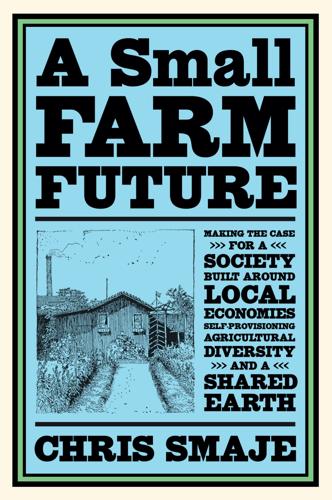
A Small Farm Future: Making the Case for a Society Built Around Local Economies, Self-Provisioning, Agricultural Diversity and a Shared Earth
by
Chris Smaje
Published 14 Aug 2020
This question demands attention to the relationship between cities and their rural hinterlands, which in the present historical moment extend across the world, but may have to narrow in the future. It also demands attention to political power. If rural people outside your city are generating your food, what are you or your city generating for them in return? Saying that cities generate wealth isn’t good enough if it’s wealth that rural people can’t tap. Of course, cities do contribute to general human well-being and it would be foolish to insist that everyone must provide all their own food and other resources. But it’s not a bad starting place for testing one’s assumptions. To put it another way, asking if your locality can feed its population starts posing questions about power and the geography of colonialism, both local and global.
…
People living in the countryside in lowland England earn on average about £90 per week more than those living in urban areas, whereas people working in the countryside earn on average about £90 per week less than urban workers, the discrepancy arising because the countryside acts as a dormitory for wealthy urban workers. As the ‘Equality in the Countryside’ manifesto from which those figures were taken puts it: ‘The countryside does not currently generate wealth, it imports it, and it imports the people who earn it.’37 If the arguments put forward in this book are borne out, that will have to change. But change is slow in coming, especially when impeded by cultural mythologies of rural timelessness of the kind put forward by Scruton. Encouragingly, new activist organisations are emerging like the Land Workers’ Alliance, The Land Is Ours, the Ecological Land Co-op, Reclaim the Fields and XR Farmers, along with the first glimmerings of a movement for land reform.38 Much of it is being pioneered by well-educated young people who are losing interest in increasingly precarious mainstream routes to economic ‘success’ and developing a new kind of radical politics.
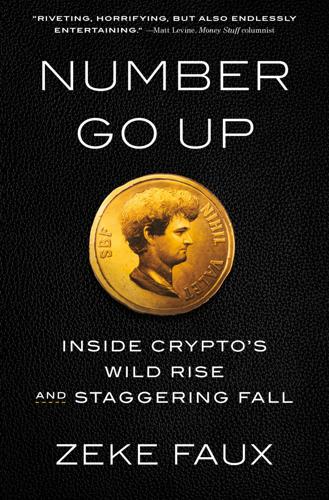
Number Go Up: Inside Crypto's Wild Rise and Staggering Fall
by
Zeke Faux
Published 11 Sep 2023
But from 2020 to early 2022, the prices of Bitcoin and hundreds of other lesser coins—with ridiculous names like Dogecoin, Solana, Polkadot, and Smooth Love Potion—were going up and up. While I was in the Bahamas, people traded more than $500 billion worth of them, and the market value of all coins combined topped $2 trillion. Crypto boosters claimed they were in the vanguard of a revolution that would democratize finance and lead to generational wealth for those who believed. The roar of the rising prices drowned out the skeptics. Incomprehensible jargon became inescapable. Blockchain. DeFi. Web3. The metaverse. What these terms meant was beside the point. Newspapers, TV, and social media bombarded potential investors with stories of regular people who invested in them and got rich quick.
…
I could see how it all might make sense if I was planning to get rich and then hide my winnings from the IRS. The fox icon did not ask for my name or Social Security number. But I couldn’t imagine that anyone would be willing to go through this risky and ridiculously complicated process without the hope of generational wealth on the other end. And I definitely didn’t believe that Jimmy Fallon or Steph Curry had done it themselves. I wanted to show off my new Mutant Ape, so I sent a picture to a few friends. Some, upon receiving the message, worriedly asked if I’d been hacked. Others responded only with a polite “haha.”
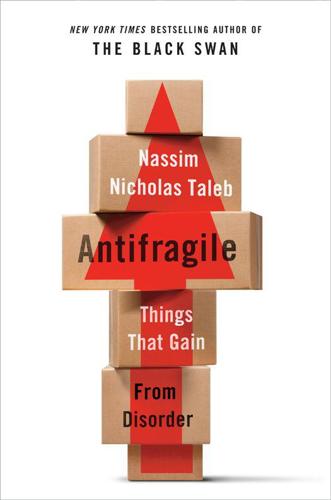
Antifragile: Things That Gain From Disorder
by
Nassim Nicholas Taleb
Published 27 Nov 2012
Rational flâneur. CHAPTER 13. Asymmetric payoffs behind growth, little else. The Soviet-Harvard illusion, or the lecturing-birds-how-to-fly effect. Epiphenomena. CHAPTER 14. The green lumber fallacy. Tension between episteme and trial and error, and the role through history. Does knowledge generate wealth, and if so, which knowledge? When two things are not the same thing. CHAPTER 15. Rewriting the history of technology. How, in science, history is rewritten by the losers and how I saw it in my own business and how we can generalize. Does knowledge of biology hurt medicine? Hiding the role of luck.
…
You take the upside of your story and hide the downside, so only the sensational seems to count. The real world relies on the intelligence of antifragility, but no university would swallow that—just as interventionists don’t accept that things can improve without their intervention. Let us return to the idea that universities generate wealth and the growth of useful knowledge in society. There is a causal illusion here; time to bust it. 1 Is democracy epiphenomenal? Supposedly, democracy works because of this hallowed rational decision making on the part of voters. But consider that democracy may be something completely accidental to something else, the side effect of people liking to cast ballots for completely obscure reasons, just as people enjoy expressing themselves just to express themselves.
…
(The error in reasoning is a bit from wishful thinking, because education is considered “good”; I wonder why people don’t make the epiphenomenal association between the wealth of a country and something “bad,” say, decadence, and infer that decadence, or some other disease of wealth like a high suicide rate, also generates wealth.) I am not saying that for an individual, education is useless: it builds helpful credentials for one’s own career—but such effect washes out at the country level. Education stabilizes the income of families across generations. A merchant makes money, then his children go to the Sorbonne, they become doctors and magistrates.

DK Eyewitness Top 10 Azores
by
Dk Eyewitness
Published 22 Dec 2022
Rich decor of Igreja de Santa Bárbara 4. Complexo Monte de Guia: Casa dos Dabney e Aquário de Porto Pim Google Map Wealthy merchant John Bass Dabney (1766–1826) arrived here from Boston in 1804 and was soon appointed first US consul to the Azores. Whaling and other business interests generated wealth and prestige for the family, and the museum imparts their story. The pairing of the Casa dos Dabney with the Aquário de Porto Pim is convenient for visitors: the same ticket grants entry to the aquarium, which is a holding tank for various finned species who are later rehoused in aquariums around the world. 5.
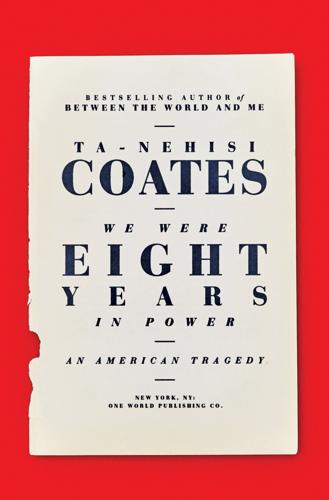
We Were Eight Years in Power: An American Tragedy
by
Ta-Nehisi Coates
Published 2 Oct 2017
Not only did poor blacks tend to be much less likely to advance up their ladder, but those who did stood a much greater likelihood of tumbling back. That was because the middle-class rung of the black ladder lacked the financial stability enjoyed by the white ladder. Whites in the middle class often brought with them generational wealth—the home of a deceased parent, a modest inheritance, a gift from a favorite uncle. Blacks in the middle class often brought with them generational debt—an incarcerated father, an evicted niece, a mother forced to take in her sister’s kids. And these conditions, themselves, could not be separated out from the specific injury of racism, one that was not addressed by simply moving up a rung.
…
The banks of America understood this. In 2005, Wells Fargo promoted a series of Wealth Building Strategies seminars. Dubbing itself “the nation’s leading originator of home loans to ethnic minority customers,” the bank enrolled black public figures in an ostensible effort to educate blacks on building “generational wealth.” But the “wealth building” seminars were a front for wealth theft. In 2010, the Justice Department filed a discrimination suit against Wells Fargo alleging that the bank had shunted blacks into predatory loans regardless of their creditworthiness. This was not magic or coincidence or misfortune.
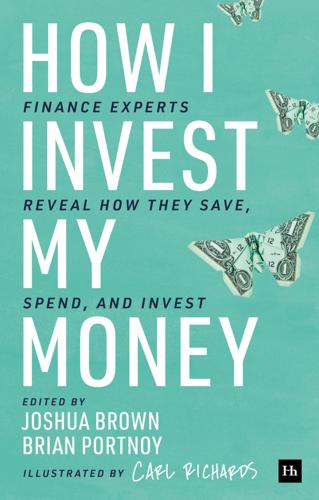
How I Invest My Money: Finance Experts Reveal How They Save, Spend, and Invest
by
Brian Portnoy
and
Joshua Brown
Published 17 Nov 2020
Lazetta Rainey Braxton Lazetta Rainey Braxton MBA, CFP®, Co-Founder and Co-CEO of 2050 Wealth Partners, is on a mission to provide access to financial planning for “the rest of us.” She believes that solid financial advice is not just for the 1%. She works with thriving professionals, small business owners, and sandwich generation wealth-protectors to build and secure their financial foundation and legacy. Lazetta, a nationally-recognized financial expert, has appeared on NBC Nightly News and CNBC’s Closing Bell. She is a member of the CNBC Digital Financial Advisor Council and a Wall Street Journal Financial Experts blog contributor.
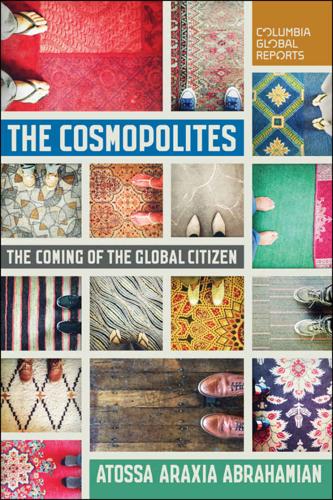
The Cosmopolites: The Coming of the Global Citizen
by
Atossa Araxia Abrahamian
Published 14 Jul 2015
“This will put an end to our water problems, our road problems, our energy problems,” Sambi told the Comorian people on his 2009 Eid address, broadcast between sessions of the UN General Assembly in New York City and published on the Comorian presidency’s website. “It will serve to build our ports, our airports, real schools to last a hundred years and the construction of a security infrastructure. My brothers, this is one of the paths I’ve gone down to generate wealth for our country. That’s what we’re missing in this country: money. And here is money, which, by the grace of God, will in the coming days be transferred into the Central Bank.” Sambi might have had God on his side, but what he really needed was someone to read him the fine print. The Ayatollah appeared to think that the money would make its way into the Comorian treasury’s coffers in one piece; he failed to notice that according to Kiwan’s initial contract, it was due to pass through his accounts piecemeal.
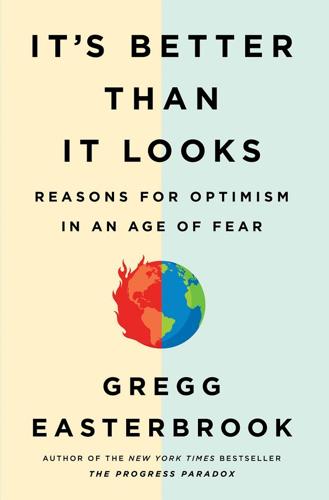
It's Better Than It Looks: Reasons for Optimism in an Age of Fear
by
Gregg Easterbrook
Published 20 Feb 2018
Until 1968, real estate redlining was not something shameful the Federal Housing Authority did in secret but formal FHA policy that was instrumental in shifting net worth from African Americans to whites. The fantastic productive output of democracies happened in part because African and American Indian slaves, and oppressed Africans, Asians, and subcontinental Indians, and the indentured of many ethnicities, labored against their wills to generate wealth for governments that promised liberty. History offers a succession of enigmas, among them that the economic power the democracies employed to stop twentieth-century dictatorship, benefiting the world, was grounded in mistreatment of peoples whose freedom was denied. This should not prevent anyone from thinking democracy is the best social order available today.
…
In 2016, Leslie Moonves, CEO of CBS, paid himself $69 million, though the company’s dividends had been down in recent years and many employees were laid off. The CBS news division (via CBS Evening News) and entertainment arm (via The Late Show with Stephen Colbert) regularly denounce wealth and privilege in the Trump administration, yet CBS itself is organized to generate wealth and privilege for a tiny few at the top. In 2017, athletic apparel firm Nike began an advertising campaign, oriented around the word “equality,” that hectors others about disparity in income. Nike pays the Indonesian workers who sew the company’s sneakers $3 a day, while in 2016 Nike CEO Mark Parker stuffed $48 million into his own pockets, according to the corporate-board analysis firm Equilar.

Nomads: The Wanderers Who Shaped Our World
by
Anthony Sattin
Published 25 May 2022
Or when women in Europe began to copy Mongol ladies and wear the boghta, a headdress whose origins lie in the tall conical hats worn by ancient Saka and Scythian women. Mongol boghtas were originally made of two-foot-high cones, kept upright by a frame of wood and birch bark, and covered with felt. As the empire generated wealth and enriched noble Mongol families, boghta wrappings became more elaborate, felt was replaced by silk or brocade, now decorated with pearls and feathers. In Europe, these hats inspired the hennin, the capuchin and a range of other impractical headgear worn for centuries by ladies of grander houses.
…
The trade they generated was so profitable that even nations who had resisted Kubilai’s military assaults – Indian states, for instance, Viets, Cambodian Khmers, the Sukhothai and Chiang Mai kings in Thailand – were prepared to acknowledge Kubilai’s sovereignty in order to be part of his maritime network. Between the maritime routes and the Silk Roads, the Mongols had stimulated the nearest thing the world had ever seen to a global trade network and it generated wealth in Europe as well as in the East. That, in turn, required another adjustment for many Europeans. Until this time the East had appeared on European maps as a place of hideous creatures, one-footed freaks and barbarian hordes. But with the success of east–west trade, it was now seen as a place of immense wealth and where the roads, markets, security and much else were more advanced than in Europe.
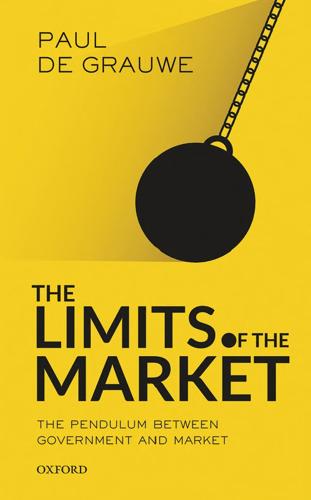
The Limits of the Market: The Pendulum Between Government and Market
by
Paul de Grauwe
and
Anna Asbury
Published 12 Mar 2017
A mixture will always be required. The only relevant question, then, is how precisely that mixture should look. How far should we let the market go in order to create as much prosperity as possible? What is the responsibility of the U xiii OUP CORRECTED PROOF – FINAL, 27/10/2016, SPi PREFACE government in generating wealth? Who should do what to advance prosperity for all? These are awkward questions, but they are the only interesting ones, which is why we seek to tackle them in this book. By formulating the problem in this way, we can circumvent many of the ideological positions on the subject. Markets are not inherently better or worse than governments.
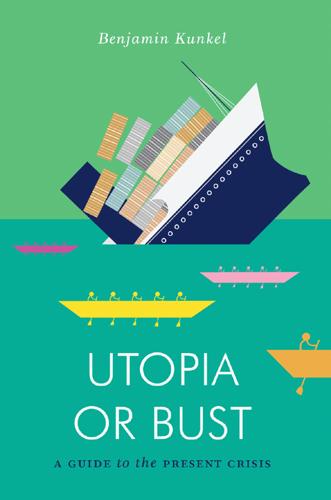
Utopia or Bust: A Guide to the Present Crisis
by
Benjamin Kunkel
Published 11 Mar 2014
Lately, with the outbreak, still uncontained, of the worst economic crisis since the 1930s, it has persisted in a more resigned key. In his latest book, Žižek quotes David Simon, creator, in the television epic The Wire, of as damning a portrait of class-riven America as any Marxist could wish for: “I accept that [capitalism] is the only viable way to generate wealth on a wide scale.” Žižek not only rejects this nearly unanimous conclusion but discerns in unexpected places—whether in the chauvinist eruptions of the political right or the low-grade commercial output of US cinema—the abiding wish, however disfigured and denied, for a “radical emancipatory politics.”
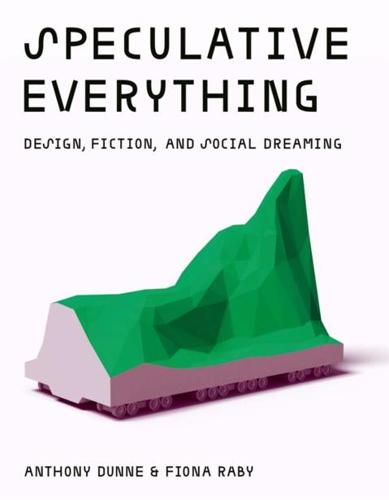
Speculative Everything: Design, Fiction, and Social Dreaming
by
Anthony Dunne
and
Fiona Raby
Published 22 Nov 2013
First, during the 1980s design became hyper-commercialized to such an extent that alternative roles for design were lost. Socially oriented designers such as Victor Papanek who were celebrated in the 1970s were no longer regarded as interesting; they were seen as out of sync with design's potential to generate wealth and to provide a layer of designer gloss to every aspect of our daily lives. There was some good in this-design was embraced by big business and entered the mainstream but usually only in the most superficial way. Design became fully integrated into the neoliberal model of capitalism that emerged during the 1980s, and all other possibilities for design were soon viewed as economically unviable and therefore irrelevant.
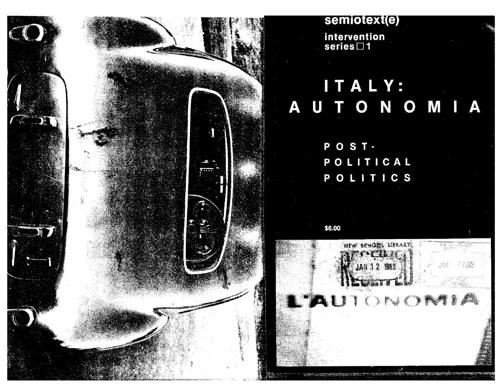
Autonomia: Post-Political Politics 2007
by
Sylvere Lotringer, Christian Marazzi
Published 2 Aug 2005
onB prel~~r~~r From the beginning, the anthropology of need has celebrated Its rites In th d main ,Of distr,ibUtlon: this fate has befallen Heller as well, for she limits cr~atlng a mlrro~ Image of the classical figure of "homo oeconomlcus" re ' g character With the equally anthropological model of an individual rich p,lacln radical needs, n her:elfo~o thl~ LABOR AND NEEDS: JOWARD A CRITI· QUE OF THE MOVE· MENT Marx, in fixing the relationship between needs and labor, reverses the order of the ~~nquse~ce hand jtobcat?s the genesIs of needs within the structure of abstract labor' ' a tUC as ~ or IS labor to earn wages and Its Immediate goal Is money a genera wealth IS set as Its Object and aim .,. Money as goa! here becomes t'he means for the generallaborloslty. People produce general wealth sa that th gain of Its token." If the immediate goa! of abstract labor is or that particular product but rather "the general form of wealth" (money) th It is ?!ear that social needs no longer represent either the point of POIfl~, of arrival for the process of production; Instead they constitute a "middle term In the route traveied by "money as capital" Needs them I needs for I I I , s e ves are seen as .fj a genera e~u va ent.
…
ear that social needs no longer represent either the point of POIfl~, of arrival for the process of production; Instead they constitute a "middle term In the route traveied by "money as capital" Needs them I needs for I I I , s e ves are seen as .fj a genera e~u va ent. And, given that this general equivalent is the spec! c product of pa1d labor, the "system of needs" necessarily tends to reprod,uce that particular !ink between Individuals and general wealth which is established pr,ec!sely by the capitalist form of labor. Therefore: the needs of aid labor consist In the reproduction of paid labor. p posse~sjons no~Yt~i~n departur~ oret~e When the a?cent is placed emphatically on the antagonistiC Immediacy of needs Sight precisely of that "expanded reproduction" of the prevailing sOCla;j re at ons~jps, of tha labor force taken as goods, which Is Implicit in the "system ~f nee~s that has evolved from the abstractlon of value, Thus one neglects the coercion to repeat" which Is Inherent in the general equivalent Then the sm g or u and, unanalytlcal adoption of one's own existential VOCiferous, ~t hardly matters-as a pole of inevitable conflict comes near to be in a lebor of SIsyphus, a flight which "always amounts to a forced repetition of the g o~e ~oses radicalness~sllent ~ ... ~ state. from which one fled."
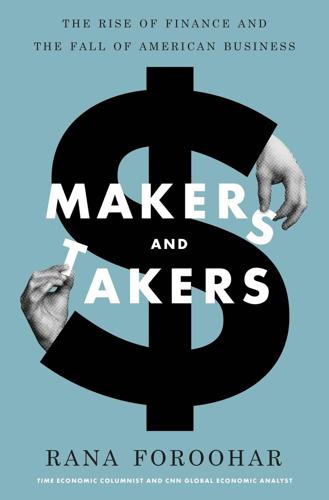
Makers and Takers: The Rise of Finance and the Fall of American Business
by
Rana Foroohar
Published 16 May 2016
This “shareholder revolution,” based on the Chicago School notion that maximizing shareholder value is the purpose of corporate America (as covered in chapter 3), is the single most important reason why high corporate profits and unprecedented cash hoards have failed to translate into jobs, wage growth, and innovation. All of this raises a profound question: What is a company for? We thought that companies, like banks themselves, were supposed to be entities that generated wealth broadly, by allocating capital to productive purposes—investing in people, factories, new ideas, and businesses. But something in that cycle is broken. Today’s companies, like banks, are keeping their wealth in a closed feedback loop where it enriches only a few at the expense of the many. This is a serious dysfunction in our market system, one with multiple growth-destroying effects that we are only just beginning to understand.
…
While Timken had argued that the company was better off staying together, the two institutional investors said that a split would create more value for their fellow shareholders.43 They were right in the short term; markets like the quick hit of spinoffs, and immediately following the deal, Timken shares soared and Relational made a handsome profit. Yet, as was explained in chapter 3, the share prices of firms themselves are not the best marker of what will drive longer-term economic growth—and in turn generate wealth that’s more broadly shared. In the two years following the split, Timken shares fell sharply as the two smaller, less competitive successor firms were seen as ripe for takeover. The fact that the Timken family, which had run things for five generations, had managed to build up such a flush balance sheet, with a well-funded pension plan and plenty of cash on hand, only made the new companies more ripe for the picking.
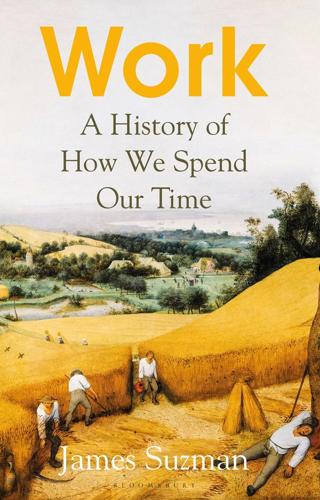
Work: A History of How We Spend Our Time
by
James Suzman
Published 2 Sep 2020
Among them are the clever algorithms on which the genome researchers and epidemiologists now depend, a whole host of new digital diagnostic tools available to medical practitioners, and increasingly sophisticated climate and meteorological models. Just as importantly, without them we lack the capability to manage our ever more complex cities and the digital and physical infrastructure that sustains them. However, most autonomously intelligent machine systems will be put to work with a single purpose in mind: generating wealth for their owners with none of the obligations that come from having other humans do that work (even if they could). Indeed, in parallel with the Great Decoupling, there has been a progressive transfer of wealth from public to private hands. Where private wealth relative to national income has doubled in most wealthy countries over the last thirty years, national income relative to private wealth in most rich countries has plummeted.
…
Among them are the clever algorithms on which the genome researchers and epidemiologists now depend, a whole host of new digital diagnostic tools available to medical practitioners, and increasingly sophisticated climate and meteorological models. Just as importantly, without them we lack the capability to manage our ever more complex cities and the digital and physical infrastructure that sustains them. However, most autonomously intelligent machine systems will be put to work with a single purpose in mind: generating wealth for their owners with none of the obligations that come from having other humans do that work (even if they could). Indeed, in parallel with the Great Decoupling, there has been a progressive transfer of wealth from public to private hands. Where private wealth relative to national income has doubled in most wealthy countries over the last thirty years, national income relative to private wealth in most rich countries has plummeted.
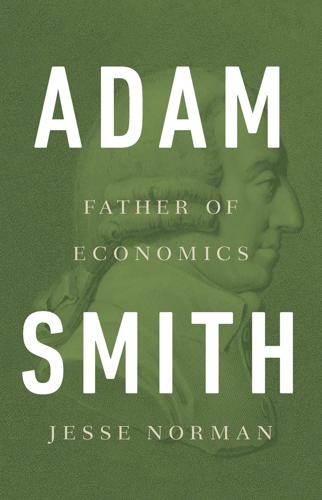
Adam Smith: Father of Economics
by
Jesse Norman
Published 30 Jun 2018
But we can add that it also more subtly illustrates his balancing of a general theory with detailed analysis of specific cases; his awareness of the dangers of weak government; his belief that artificially high profits carry both economic and moral dangers; and his understanding that markets can be dominated by greed and tyranny and become separated from—and sometimes directly oppose—the public interest. The conflict here is stark, because for Smith markets and moral behaviour are generally mutually enabling. Commerce has moral value because it generates wealth, which allows people to live and thrive in increasing numbers and with a standard of living unimaginable in other places and times. As he says at the outset of The Wealth of Nations, ‘The accommodation of an European prince does not always so much exceed that of an industrious and frugal peasant, as the accommodation of the latter exceeds that of many an African king, the absolute master of the lives and liberties of ten thousand naked savages.’
…
For him what existed then fell some way short of his preferred ‘system of natural liberty’, but he celebrated such a society even so: as an antidote to the servility and personal dependency of feudalism, for the way in which it often improved morals and manners, and above all for its capacity to create ‘universal opulence’, that is general wealth and prosperity. In relation to civic republicanism, Smith’s celebration of commercial society is, precisely, a repudiation of slavery and the classical idea that a virtuous citizenry could be built upon slavery. Far from generating corruption, markets often reduced it; far from increasing power, they often dispersed or bridled it.
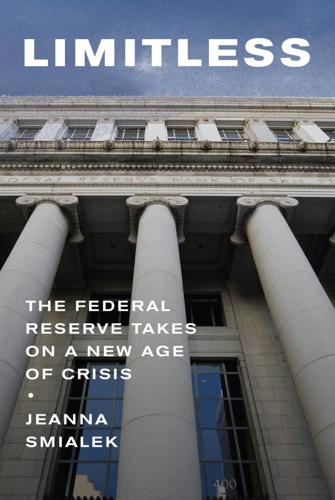
Limitless: The Federal Reserve Takes on a New Age of Crisis
by
Jeanna Smialek
Published 27 Feb 2023
The poorer half of American families held just 1.8 percent of the nation’s net worth—savings minus debt—in 2019. The top 1 percent held about 31 percent, based on the Fed’s data, up from about 24 percent in 1989.[20] The Fed played a complicated role in the way both income and wealth inequality had evolved. On one hand, simplistic arguments that blamed racial or even general wealth inequality largely on Fed policies—and particularly on quantitative easing—made little sense. The Fed’s balance sheet had started to rapidly expand in 2008, whereas the share of the nation’s wealth held by the nation’s poorer half had been falling steadily since at least the early 1990s. While some Fed critics suggested that it was low rates, and not just bond buying, that caused wealth inequality, that also failed to square cleanly with the real-world data.
…
The flip side of a booming stock market was that companies could access more capital to grow and hire. Based on decades of data, it was pretty clearly the case that low rates helped push down the unemployment rate and, if workers became scarce enough, speed up wage growth. Higher pay could allow people who relied on labor to save more, generating wealth of their own. That is why, from the time of the Greenback movement in the 1800s, low rates had often been a preferred policy of the working classes. The biggest beneficiaries of long or strong economic expansions tended to be people who were disadvantaged in the job market. For instance, Black workers, people who hadn’t gotten a college degree, and the formerly incarcerated had flowed into jobs during the long expansion that had ended at the start of the pandemic.
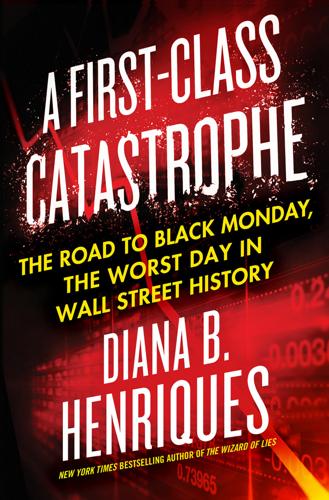
A First-Class Catastrophe: The Road to Black Monday, the Worst Day in Wall Street History
by
Diana B. Henriques
Published 18 Sep 2017
Of all the reports in the pipeline, the most prestigious, and potentially the most influential, would be the one from the Brady commission, appointed by President Reagan just days after Black Monday and led by a Republican who had spent his life on Wall Street. Nicholas F. Brady was a man whose fourth-generation wealth and Ivy League pedigree had long enabled him to speak his mind without worrying too much about the consequences. He had been a success at the old-line firm of Dillon, Read and Company, and had overseen two earlier U.S. government commissions. A close friend of both Vice President George Bush and Secretary of the Treasury Jim Baker, he was an able and well-connected choice to lead the new commission.
…
Vise, “Stock Futures Market Is Flexing Its Muscle,” Washington Post, October 16, 1988, p. 1. To the relief of everyone at the breakfast: Sterngold, “Exchanges Seek Ways to Heal Split.” the Brady Commission, appointed by President Reagan: The official name was the “Presidential Task Force on Market Mechanisms.” Brady was a man whose fourth-generation wealth: Brady’s great-grandfather, an Irish immigrant, made the family’s first fortune in the electrical utility industry; his grandfather founded an early automaker that later merged with Chrysler; and the family had a founding stake in the Purolator Company. See Susan F. Rasky, “Man in the News: Blue-Chip Leader for Task Force: Nicholas Frederick Brady,” New York Times, October 23, 1987, p.
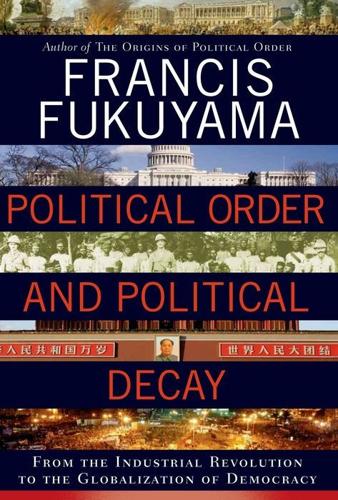
Political Order and Political Decay: From the Industrial Revolution to the Globalization of Democracy
by
Francis Fukuyama
Published 29 Sep 2014
The old nineteenth-century problem of clientelism (what was known as the patronage system), in which individual voters received benefits in return for votes, was largely eliminated as a result of reforms undertaken during the Progressive Era. But it has been replaced today by a system of legalized gift exchange, in which politicians respond to organized interest groups that are collectively unrepresentative of the public as a whole. Over the past two generations, wealth has become highly concentrated in the United States, and economic power has been able to buy influence in politics. The American system of checks and balances creates numerous points of access for powerful interest groups that are much less prominent in a European-style parliamentary system.
…
Ideally, constraints on the power of elites should be exercised through democratic control of the state, where the state’s policies reflect a broad consensus on the part of the population as to what constitutes a fair distribution of the resources at the state’s disposal. As in the case of redistribution, the trick is to prevent the overrepresentation of elites without punishing them for their ability to generate wealth. There is today a wide range of views on the appropriate scope of the state, ranging from those who believe it should provide only the most basic of public goods, to those who think it should actively shape the nature of society and engage in substantial redistribution. As noted, all modern liberal democracies engage in some degree of redistribution, but the extent of state intervention varies significantly from the social democracies of Scandinavia to the more classically liberal United States.
…
Under such circumstances, politics is a much surer route to wealth for both patrons and clients. India today has a small but rapidly growing private sector; for the vast majority of Indians, however, participation in politics, either as a patron or a client, remains the main ladder of upward social mobility.24 As a stronger market economy develops, the opportunities for privately generated wealth increase, both absolutely and relative to the level of rents than can be extracted by entering politics. Ambitious young people who want to make large fortunes in today’s America don’t go into government. They go to Wall Street or corporate America, or start their own companies in places like Silicon Valley.
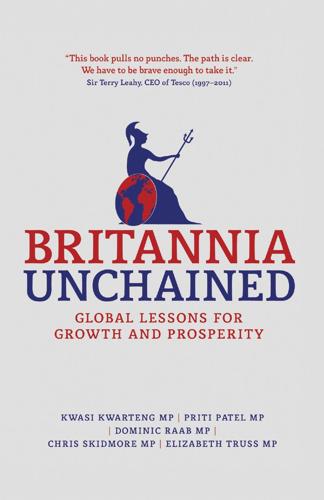
Britannia Unchained: Global Lessons for Growth and Prosperity
by
Kwasi Kwarteng
,
Priti Patel
,
Dominic Raab
,
Chris Skidmore
and
Elizabeth Truss
Published 12 Sep 2012
While the number of teenage mothers or those in their twenties has fallen, the number of babies born to the over-40s has tripled in the past 30 years.60 In the last ten years alone, the number of births to the over-30s has gone up by 22 per cent.61 As the whole world ages, Britain will remain a relatively young country. Past experience suggests that this can only be healthy. More young people means more minds to create new ideas and generate wealth, more opportunities and creativity, and more help to look after the old. Much of the growth of the mid twentieth century across the world came from a ‘demographic dividend’, as the population surge from the baby boomers reached the workplace and helped drive the rest of the economy. Imagine the experience of someone born and growing up in the internet age.
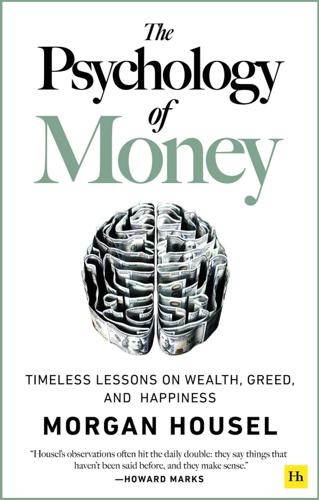
The Psychology of Money: Timeless Lessons on Wealth, Greed, and Happiness
by
Morgan Housel
Published 7 Sep 2020
It gets dangerous when the taste of having more—more money, more power, more prestige—increases ambition faster than satisfaction. In that case one step forward pushes the goalpost two steps ahead. You feel as if you’re falling behind, and the only way to catch up is to take greater and greater amounts of risk. Modern capitalism is a pro at two things: generating wealth and generating envy. Perhaps they go hand in hand; wanting to surpass your peers can be the fuel of hard work. But life isn’t any fun without a sense of enough. Happiness, as it’s said, is just results minus expectations. 2. Social comparison is the problem here. Consider a rookie baseball player who earns $500,000 a year.
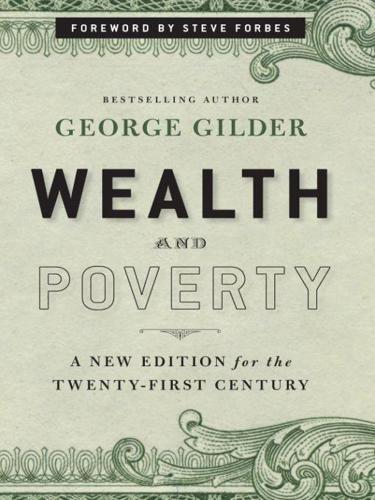
Wealth and Poverty: A New Edition for the Twenty-First Century
by
George Gilder
Published 30 Apr 1981
Capitalism prevails because it assigns this exacting task to people like Warren Buffett rather than people like his secretary or to Obama’s fixers David Axelrod and Valerie Jarrett, who are oriented by political rather than economic goals. An economy can continue to grow only if its profits are joined with entrepreneurial knowledge. In general, wealth can increase only if the people who create it control it. Divorce the financial profits from the learning process and the economy stagnates. Like a tree or a garden, an economy grows by photosynthesis. Without the light of new knowledge and the roots of ownership, it withers. The riches of the top Four Hundred all ultimately stem from this entrepreneurial process.
…
The flood of protean growth can be comprehended and sustained only by millions of individuals with access to disposable savings and deep involvement in the companies themselves—that is, by investors who have money of their own and who can share in and pass on the profits as they gain new knowledge and investment skills. Although the desire to consume is ubiquitous and plays a significant role in motivating all men, far more important in capitalism is the purposeful drive to understand the world and to create things: to generate wealth (value defined by others) and reinvest it in the continuing drama of human invention and progress. The fatal problem of a system without accumulations of personal income and without the possibility of large profits is not the lack of incentives but the lack of dynamism and flexibility. In a low-income, low-profit system, small businesses cannot swiftly rise up to exploit new ideas, overcome their crises of growth, or respond to the kaleidoscopic changes in knowledge and opportunity that continually transpire.

The Color of Money: Black Banks and the Racial Wealth Gap
by
Mehrsa Baradaran
Published 14 Sep 2017
In his 1955 book Forbidden Neighbors, urban planner Charles Abrams said that the “FHA adopted a racial policy that could well have been culled from the Nuremberg laws. From its inception FHA set itself up as the protector of all white neighborhoods."33 What resulted was a Jim Crow credit market. The problem with suburbs full of homeowners and urban ghettos comprised of tenants was not just that it caused generational wealth inequality; it also affected the avenues of opportunity available to residents of these disparate communities. The disparity in community resources had to do, in part, with the operation of the American tax system, which gives local municipalities control of the bulk of their own tax dollars instead of distributing taxes nationwide or statewide.
…
From one generation to the next, wealth can perpetuate and reinforce itself, not only as it is passed down literally, but because the attendants of wealth also ripple across generations. Many iterations of racial inequality, such as differences in educational attainment, income, and even incarceration, can be traced back to differences in generational wealth.27 Nevertheless, because of the prevalent belief that the wealth gap is a natural result of market forces, many Americans continue to blame the poor for their own predicament, an idea described by Lawrence Bobo as “laissez faire racism."28 It is worth noting that a broad body of research reveals just how connected wealth is to a broad array of outcomes and how poverty perpetuates itself.

Content: Selected Essays on Technology, Creativity, Copyright, and the Future of the Future
by
Cory Doctorow
Published 15 Sep 2008
Marinas benefit from the information economy when office-slaves look up the weekend's weather online and decide to skip out on Friday for a weekend's sailing. Families of migrant workers benefit from the information economy when their sons and daughters wire cash home from a convenience store Western Union terminal. This stuff generates wealth for those who practice it. It enriches the country and improves our lives. And it can peacefully co-exist with movies, music and microcode, but not if Hollywood gets to call the shots. Where IT managers are expected to police their networks and systems for unauthorized copying — no matter what that does to productivity — they cannot co-exist.
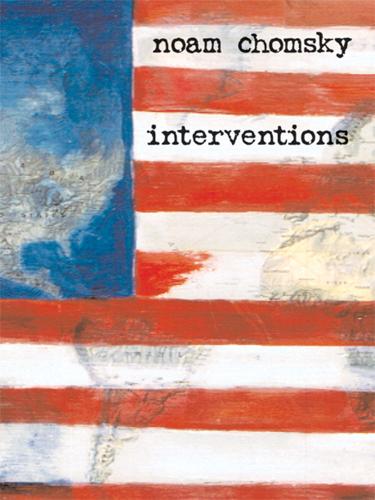
Interventions
by
Noam Chomsky
Overall, popular preferences are virtually the opposite of the government’s budget decisions. There is, rightly, much international concern about the rapidly expanding U.S. trade and budget deficits. Closely related is the growing democratic deficit, not just in the United States but in the West generally. Wealth and power have every reason to want the public largely removed from policy choices and implementation—also a matter of concern, quite apart from its relation to the universality of human rights. We have just passed the twenty-fifth anniversary of the assassination of Archbishop Oscar Romero of El Salvador, known as a “voice for the voiceless,” and the fifteenth anniversary of the murder of six leading Latin American intellectuals, who were Jesuit priests, also in El Salvador.
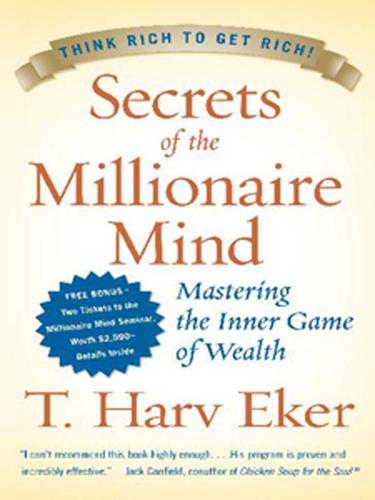
Secrets of the Millionaire Mind
by
T. Harv Eker
Published 15 Feb 2005
You can observe this way of thinking and see it for what it is, a “file” of information that was stored in your mind a long, long time ago and may not hold any truth or value for you anymore. The fourth element of change is reconditioning. We will begin this process in Part II of this book, where we will introduce you to the mental files that generate wealth. Should you want to take this a step further, I invite you to attend the Millionaire Mind Intensive Seminar, where you will be led through a series of powerful experiential techniques that will rewire your subconscious on a cellular and permanent level—retraining your mind to respond supportively in terms of money and success.
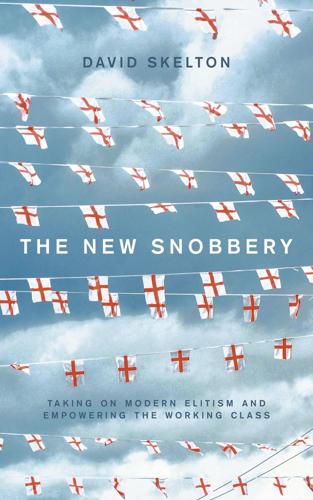
The New Snobbery
by
David Skelton
Published 28 Jun 2021
For many years, the link between national economic growth, growing productivity and blossoming for individuals throughout society was also clear. Capitalism was not only the best way of creating wealth, but also of ensuring that this wealth could benefit everyone in society: the entrepreneurs with the vision and ideas to build businesses and the workers who played a vital role in creating this wealth. Our economy was able to generate wealth and ensure it was spread throughout society, providing the incentives to help families, communities and society grow stronger and to ensure that all could play an active role in their community. Prosperous and vibrant town centres throughout the country stood as testament to this shared wealth.
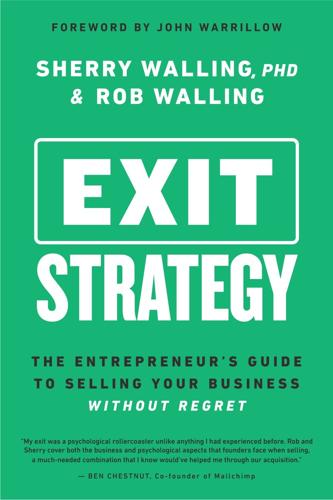
Exit Strategy
by
Sherry Walling, Rob Walling
Published 22 Nov 2024
Getting an offer for that kind of money is life-changing, Cohen points out. Having that many zeroes in your bank account can cross you over what he calls the Freedom Line, which frees you from restrictions around your life, family, and career. Exiting is a way of creating life-changing or even generational wealth. In many parts of the world, the long-term tax benefits of selling a company are far more favorable than continuing to run it. You’ll pay fewer taxes and accelerate years of income for yourself and your family. You don't have to have exact numbers in mind for your financial benchmark, but you’ll likely know when the number being offered is a game changer.
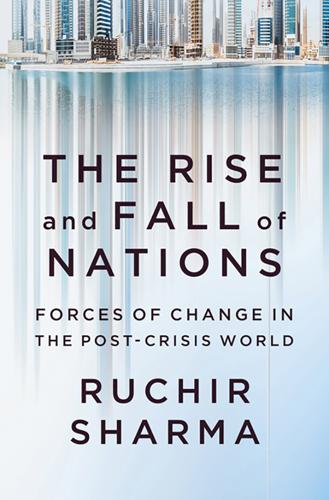
The Rise and Fall of Nations: Forces of Change in the Post-Crisis World
by
Ruchir Sharma
Published 5 Jun 2016
But these lists need to be read in a structured way to reveal even anecdotally telling data about the scale of billionaire wealth, whether it is coming from productive industries, and the extent to which the tycoon class faces real competition. It is natural and healthy for a growing economy to generate wealth, so long as the tycoons are not in control of an outsize share of the nation’s wealth, are not congealing into a stagnant elite bound by family ties, and are emerging in innovative and productive industries rather than those where political connections often decide who will be a billionaire. Scale: Shockingly Large Billionaire Shares of the Wealth I first started to read the billionaire lists around 2010, inspired by a turn for the worse in India, where one scandal after another was exposing the corrupt ways of an old elite, which had wormed itself ever more deeply into parliament, into the world of Bollywood movies, and into the commanding heights of industry.
…
.‡ To be clear, I don’t see the results here as hard data, in the way, for example, that credit or investment growth or current account numbers are hard data; reading the billionaire lists in a systematic way serves instead as a loose filter, turning up a form of anecdotally telling evidence for whether nations are generating wealth mainly in clean industries that attract public admiration or in dirty industries most likely to stir popular anger. The balance of power between good and bad billionaires can change fast, and globally this balance has shifted three times within the last fifteen years. At the height of the dot-com boom in 2000, tech billionaires outnumbered energy billionaires three to one worldwide.
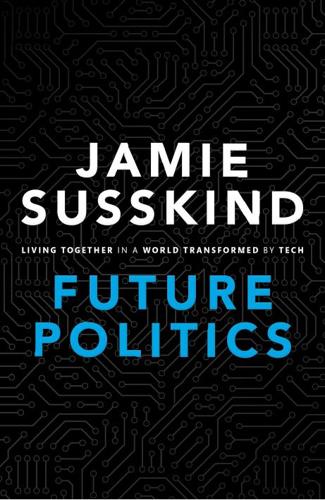
Future Politics: Living Together in a World Transformed by Tech
by
Jamie Susskind
Published 3 Sep 2018
In Capital in the Twenty-First Century (2013), Thomas Piketty predicts that the rate of return on capital OUP CORRECTED PROOF – FINAL, 26/05/18, SPi РЕЛИЗ ПОДГОТОВИЛА ГРУППА "What's News" VK.COM/WSNWS The Wealth Cyclone 315 will continue to outpace overall economic growth.6 If that’s right, then it means, on average, that those who own capital will enjoy higher returns than those who labour for a living. Inequality between labourers and capital-owners will grow over time.7 Looking to the digital lifeworld, it’s useful to distinguish between a few types of capital: good old-fashioned capital, productive technologies, and data. Each of these will help to generate wealth in a different way. Good Old-Fashioned Capital Good old-fashioned capital—land, shares, industrial machinery, and so forth—will be an important source of income in the digital lifeworld. The value of a particular item of capital will always depend on how productive and how scarce it is. The more productive and scarce it is, the greater the wealth it is likely to generate.8 In The Second Machine Age (2014) Andrew McAfee and Erik Brynjolfsson suggest that in the future, production will depend less on physical assets and more on intangible ones like intellectual property, organizational capital (business processes, production techniques, and the like), and ‘user-generated content’ (YouTube videos, Facebook photos, and online ratings).
…
Too much concentration of wealth and power in the hands of any body—private OUP CORRECTED PROOF – FINAL, 26/05/18, SPi РЕЛИЗ ПОДГОТОВИЛА ГРУППА "What's News" VK.COM/WSNWS 330 FUTURE POLITICS or public—is dangerous. That’s why some have instead argued for a cooperative model, whereby consumers or workers collectively own or govern the digital systems that generate wealth.53 Rights of Use and Profit A less intrusive approach than outright nationalization might be to give individuals rights of use and profit through a system of usufructuary rights. A usufruct, which sounds like the kind of candy your grandfather gives you, is a lesser kind of property right than full ownership.
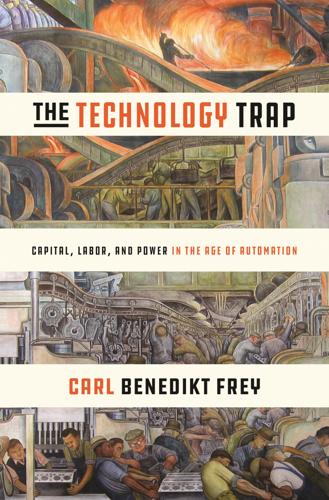
The Technology Trap: Capital, Labor, and Power in the Age of Automation
by
Carl Benedikt Frey
Published 17 Jun 2019
The economic historians Avner Greif and Murat Iyigun have shown that there was less popular resistance to technological change, and less social disorder, in parts of England where welfare institutions provided more generous support to the poor.7 There were also some contemporaries, even if they were few, who realized the importance of compensating the losers to progress to avoid social and political upheaval. In his 1797 book on poverty, Sir Frederick Eden rightly pointed out that machines “promote the general wealth,” but he added that they “throw many industrious individuals out of work; and thus create distresses that are sometimes exceedingly calamitous.” He declared that poor relief must be used so that the machines’ “inconvenience to individuals will be softened and mitigated, indeed, as far as it is practical.”
…
The labor movement, including its political branch, de facto accepted technology as the engine of growth but insisted on establishing a welfare system to provide credible assurance to all members of society that their personal income would not fall below a certain lower bound, making personal losses more narrowly constrained. And the newly generated wealth from industrialization allowed for more social spending, making it easier for society to compensate the less well off. As noted, one important reason why the socialist revolution that Karl Marx prophesied did not happen is that technology began to work in workers’ interests, and consequently laborers quite rightly came to regard it as the engine of their good fortune.
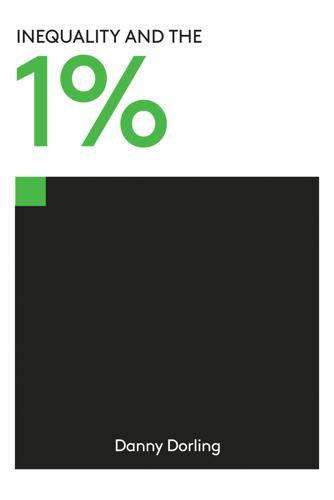
Inequality and the 1%
by
Danny Dorling
Published 6 Oct 2014
Most importantly, only 14 per cent agreed that the gap was ‘about right’.5 Only one in seven people thought the rich deserved to be so rich, and most of that minority appeared to have little appreciation of just how much better off the 1 per cent were, even when compared to those just below them.6 In the UK, dwindling numbers believe the rich generate wealth which all the rest of us get to share, but among them are some prominent people who use their position to promote this belief. There are many multi-millionaires who financially support right-wing think tanks to argue on their behalf. An even smaller, richer group with great influence are the mega-rich owners of newspapers and television channels, but they all now face growing opposition.
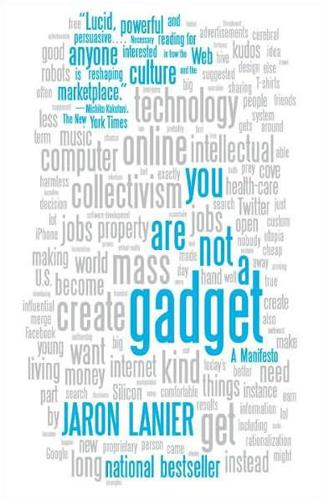
You Are Not a Gadget
by
Jaron Lanier
Published 12 Jan 2010
That isn’t to say that technological progress guarantees moral progress. However, expanding wealth is necessary if morality is to have any large-scale effect on events, and improving technology is the only way to expand wealth for many people at the same time. This hasn’t always been as true as it is today. Colonialism and conquest were ways to generate wealth that were distinguishable from technological improvement, though the military and technological domains have always been tightly correlated. The discovery of fresh natural resources, like a new oil field, can also expand wealth. But we can no longer count on forms of wealth expansion outside of technological innovation.
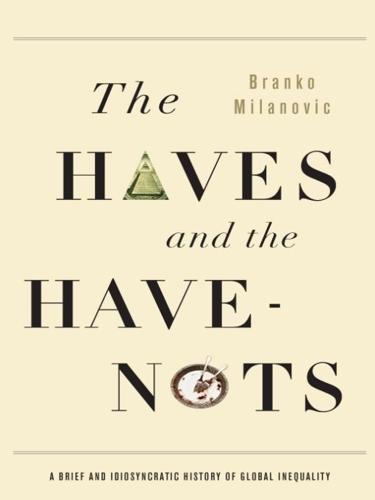
The Haves and the Have-Nots: A Brief and Idiosyncratic History of Global Inequality
by
Branko Milanovic
Published 15 Dec 2010
Instead of wasting their resources in building factories that will churn out goods at uncompetitive prices, poor countries should be better off, according to the theory, focusing on things that they can do well and import other things from elsewhere. Thus, a more open trade environment should help them specialize in producing really useful things. Fourth, poor countries, thanks to the free circulation of ideas, are also able to “borrow” from the rich countries’ institutions and policies that have shown themselves superior in generating wealth. None of these four things would be as easily available to them without globalization. This is how things were supposed to happen. But they did not. On the contrary, countries’ incomes have, as we just saw, diverged during the current globalization, creating a quandary for economists. It’s easy enough to test economics claims against the facts.
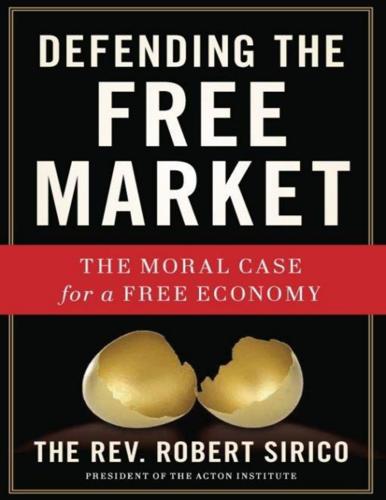
Defending the Free Market: The Moral Case for a Free Economy
by
Robert A. Sirico
Published 20 May 2012
Thus there is a greater emphasis on lumber harvests than would be expected under either an environmental ethic or a profit motive, because lumber harvesting means road building, and road building means big budgets for the Forest Service and lots of work for its employees—even though the service usually loses money on its timber harvest operations. In essence, timber companies’ cutting of trees in our national forests is subsidized by taxpayers.8 No private owner would tolerate such waste. An additional and significant environmental advantage of preserving the freedom of the market economy is its capacity to generate wealth, which in turn gives society the latitude to take care of the commons such as rivers and lakes in ways that are not possible in more desperate circumstances. In most cases it will be very difficult to get people in extreme poverty stirred up about the health of the river downstream from them.
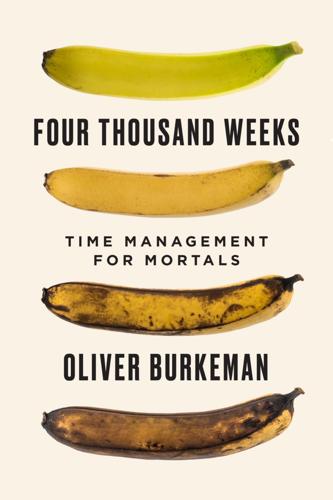
Four Thousand Weeks: Time Management for Mortals
by
Oliver Burkeman
Published 9 Aug 2021
One way of understanding capitalism, in fact, is as a giant machine for instrumentalizing everything it encounters—the earth’s resources, your time and abilities (or “human resources”)—in the service of future profit. Seeing things this way helps explain the otherwise mysterious truth that rich people in capitalist economies are often surprisingly miserable. They’re very good at instrumentalizing their time, for the purpose of generating wealth for themselves; that’s the definition of being successful in a capitalist world. But in focusing so hard on instrumentalizing their time, they end up treating their lives in the present moment as nothing but a vehicle in which to travel toward a future state of happiness. And so their days are sapped of meaning, even as their bank balances increase.
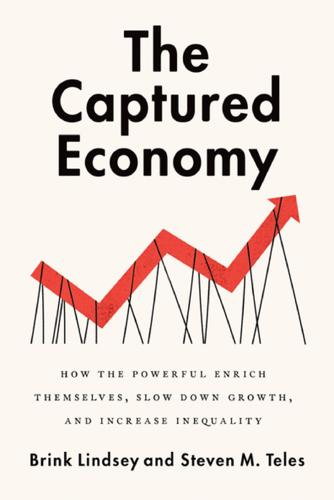
The Captured Economy: How the Powerful Enrich Themselves, Slow Down Growth, and Increase Inequality
by
Brink Lindsey
Published 12 Oct 2017
In the recent election, though, we witnessed the broad public embrace of a very different explanation of rising inequality—namely, that the powerful have rigged the economic game in their favor. Elites have conspired to hoard opportunity, manipulating the rules and their control of the political system to generate wealth for themselves, even as living standards for everyone else stagnate or decline. Both Bernie Sanders and Donald Trump owed the unexpected strength of their insurgent campaigns to the appeal of this classically populist message. This folk theory of inequality should not be dismissed as the ranting of ignorant rubes.

The Wondering Jew: Israel and the Search for Jewish Identity
by
Micah Goodman
Published 10 Nov 2020
Oz brings it up in the context of a conversation he had with settlers from Ofra in 1982, recounted in full in his In the Land of Israel (New York: Mariner, 1993). Berdyczewski explicitly addressed the inheritance metaphor: “The wealth we have only saved since yesterday means poverty today and the impossibility of enriching ourselves tomorrow. . . . Let me hope that I may generate wealth myself, and do not make me a mere watchman of my ancestral estate.” See “Feelings of the Heart,” 91 [Hebrew]. Elsewhere, he wrote that instead of performing their national duties, the Jews were constantly held back by the burden of their inheritance. See “Old Age and Youth,” 33 [Hebrew]). 7.
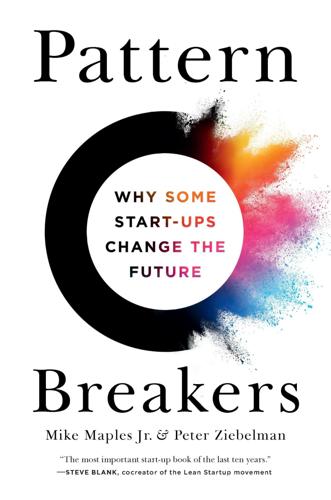
Pattern Breakers: Why Some Start-Ups Change the Future
by
Mike Maples
and
Peter Ziebelman
Published 8 Jul 2024
Technology brings out both the dreamers and the greedy. Certain futures attract those looking to get rich quick more than other futures. The cryptocurrency sector has become center stage for this problem, drawing in too many people who are looking not to build but to cash in. Initial coin offerings (ICOs) have allowed founders to generate wealth without necessarily delivering on the impactful innovations they promised, often leaving the less savvy investor holding the bag. The sector has been rife with pump-and-dump artists, untrustworthy exchanges, and all manner of hucksters, including celebrities. I remain optimistic about the potential of cryptocurrency and crypto networks.
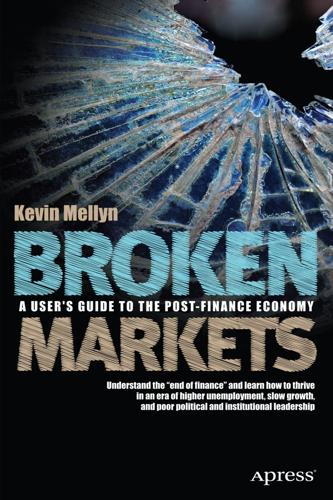
Broken Markets: A User's Guide to the Post-Finance Economy
by
Kevin Mellyn
Published 18 Jun 2012
For example, if a store has a need to stock up on goods before Christmas, lending it the money to do so is sound banking if the store has a track record of good Christmas sales. Lending people money so they can go shopping for Christmas presents is not, strictly speaking, banking at all. There is nothing in the transaction to generate income. Lending people money essentially so they can spend it without generating wealth has of course always existed, but banks normally didn’t do it; moneylenders did. People were expected to save up the money they needed for Christmas, which is why banks invented so-called Christmas clubs. Merchants, both big department stores and local shops, have always allowed good customers to buy things on credit.
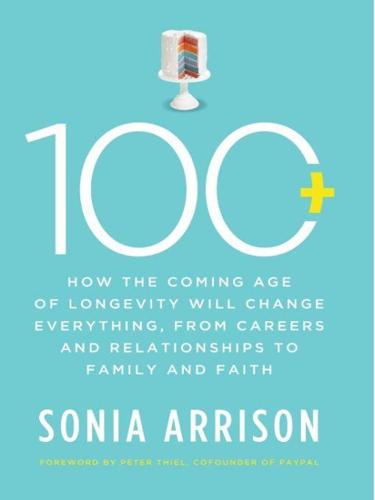
100 Plus: How the Coming Age of Longevity Will Change Everything, From Careers and Relationships to Family And
by
Sonia Arrison
Published 22 Aug 2011
Clunky and socially awkward at first, Andrew eventually develops human-like abilities such as creativity and self-awareness. He bonds with the family, and as time goes on, he is upgraded, but each human generation dies, and he finds himself lonely, wishing he were human. Through his creativity, Andrew generates wealth, gains his freedom, and develops human prosthetic components to replace his mechanical ones so that he’ll be more like the humans he lives among. He falls in love with the granddaughter of the daughter of his original family and wants to marry her, but they cannot be married because he is not recognized as a human.
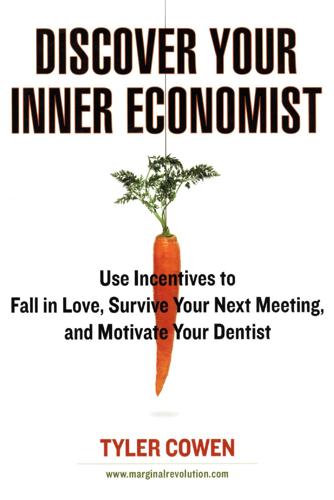
Tyler Cowen-Discover Your Inner Economist Use Incentives to Fall in Love, Survive Your Next Meeting, and Motivate Your Dentist-Plume (2008)
by
Unknown
Published 20 Sep 2008
In city centers, more formal cafeterias and restaurants have taken over the customers formerly served by the stalls. The newer venues offer greater selection, and finer eating quarters, but the food is usually blander and less fresh. Food in Singapore is so good because the city has harnessed the magic of food stalls. Chinese, Indians, and Malays have long loved quality food. The general wealth of the city allows people to eat out Eat Well, Bananas Aside I 155 a lot, while land-use policies have ensured that food stalls are not pushed out by higher rents. Collections of food stalls-or "hawker centers," as they are calledare found throughout the city. In virtually any part of town the stalls will sell an excellent meal for $2 or less.
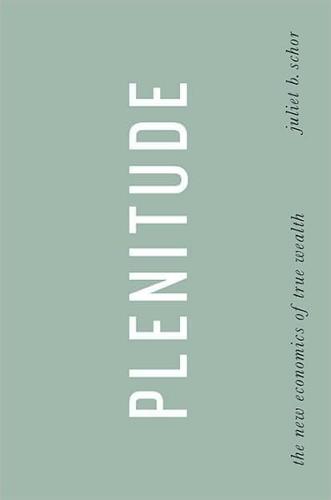
Plenitude: The New Economics of True Wealth
by
Juliet B. Schor
Published 12 May 2010
But there’s another source of jobs and value that should be front and center in our planning: the restoration of natural assets. Nature is an input into all production, and its degradation raises costs. Less fertile soil leads to less food production. Cleaning up toxins in brownfields and waterways, nourishing depleted forests, replenishing water supplies, and enhancing biodiversity all generate wealth. Pollution-induced asthma, cancers, and birth defects result in expensive health care. Provided climate change doesn’t spiral out of control, wreaking havoc on ecosystems in its wake, restoration is a smart strategy. The next economic era needs to be devoted to restoring the capacity of the earth to support humans and other life forms.
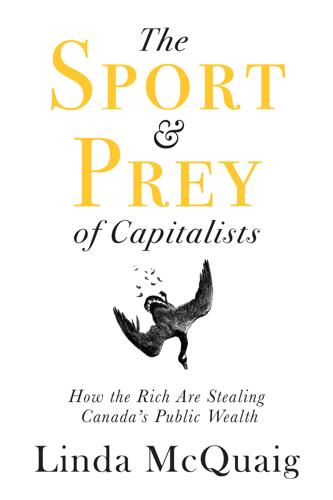
The Sport and Prey of Capitalists
by
Linda McQuaig
Published 30 Aug 2019
Corporations have no commitment to the environment; typically, they resist as much as possible attempts by government to impose environmental restrictions or penalties that reduce their profitability. By contrast, under the public model there is no profit motive. The goal, at least in principle, is to advance the public interest which, under any reasonable definition, includes protecting the environment, as well as generating wealth and employment. It’s not surprising, then, that Norway has been much more co-operative with international efforts to tackle climate change than Alberta and Canada have been. For that matter, Norway has long been in the forefront of global environmental action; former Norwegian prime minister Gro Harlem Brundtland is credited with developing and popularizing the concept of sustainable development in the 1980s, when she chaired a pivotal UN inquiry leading up to the 1992 Earth Summit in Rio de Janeiro.
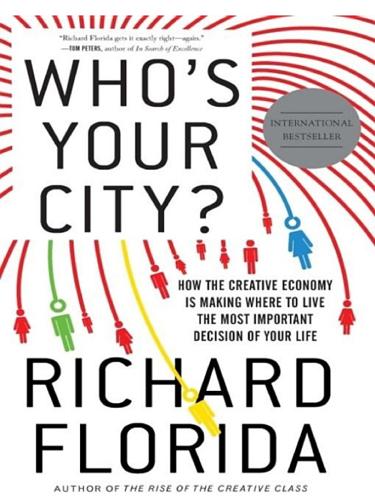
Who's Your City?: How the Creative Economy Is Making Where to Live the Most Important Decision of Your Life
by
Richard Florida
Published 28 Jun 2009
The key to a great community, they contend, lies in good schools, safe streets, and up-to-date infrastructure. Anything else—parks, trails, museums, or other amenities—is a luxury, aimed at the yuppies and the privileged classes. Or they say it’s something that comes only when a community is already rich. Jobs and basic services are what’s needed to generate wealth and income. The rest is what we pay for with the resources so generated. As this chapter will show, they’re wrong. The places that make us truly happy don’t get trapped in any such trade-off. They do it all, providing great schools, safe streets, and nice parks to boot. This chapter looks at what really matters to people in the places they live.

5 Day Weekend: Freedom to Make Your Life and Work Rich With Purpose
by
Nik Halik
and
Garrett B. Gunderson
Published 5 Mar 2018
It provides a safe, secure, and liquid way to save your money for your business or investments. The Rockefeller Formula allows you to live comfortably now without any fear of running out of money. You create a perpetual family bank as a way to keep the money together and growing. The Rockefeller family used a similar system to grow and protect generational wealth. Many other wealthy people and families use the same principles and tools. The best vehicle for this account is a properly structured and overfunded whole life insurance contract, a plan Garrett calls Cash Flow Insurance. You funnel money into this insurance contract from your Wealth Capture Account.
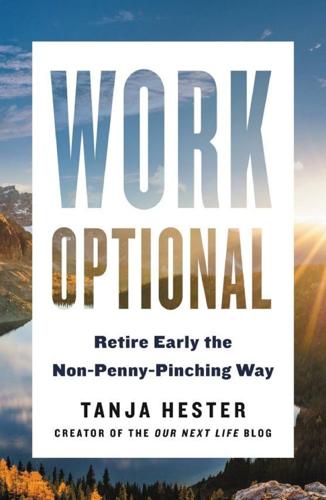
Work Optional: Retire Early the Non-Penny-Pinching Way
by
Tanja Hester
Published 12 Feb 2019
You may have massive student loan debt or be undervalued in your work and experience the wage gap firsthand. You might not have gone to college, or you may carry the responsibility of providing for extended family. Saving will certainly be easier for some people than for others, particularly folks who are already high earners, but it’s not just the wunderkinds of the world or those who inherit generational wealth who go on to become millionaires. It’s those who create lasting habits of living below their means and make a habit of long-term investing. In other words: You can do this! Carl and Mindy Jensen got on the path to early retirement in their late 30s and realized after looking at their existing savings and their low-cost lifestyle that they could retire in under five years, in their early 40s.
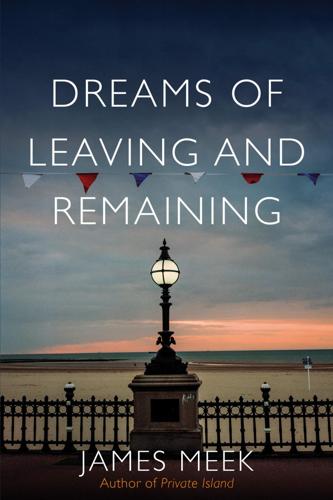
Dreams of Leaving and Remaining
by
James Meek
Published 5 Mar 2019
The US president Donald Trump, also promoting a tax cut plan: Earlier this week, I visited the hardworking citizens of North Dakota to promote our vision for tax cuts and tax reform that will create opportunity and prosperity for millions and millions of Americans. As President, I am committed to pursuing an economic policy that lifts up all of our citizens, provides hope for all of our communities, and generates wealth for everyday hardworking people and it’s about time. In the end, whatever crumbs the eventual Trump tax bill offers low-earners, the great beneficiaries are the mega-rich: in year one, the poorest Americans paid about sixty bucks less in taxes, while the richest 0.1 per cent got an average incomes gain, after tax, of almost $200,000.

Uprooting: From the Caribbean to the Countryside - Finding Home in an English Country Garden
by
Marchelle Farrell
Published 2 Aug 2023
The selling of our home was a coming together of decades of hard work with a moment of financially savvy serendipity that would ease all our futures. My parents’ future was now economically secure. And they reassured me that, as their only child, so was mine. This was why they had done it: to create an inheritance. To build material generational wealth. Now they could afford to supplement the meagre living allowance of the academic scholarship that had allowed me to come to England; they wanted me to enjoy my time at university. They did not have to scrimp and save so much any more, and we could all travel to Europe on holiday now; it would be wonderful!
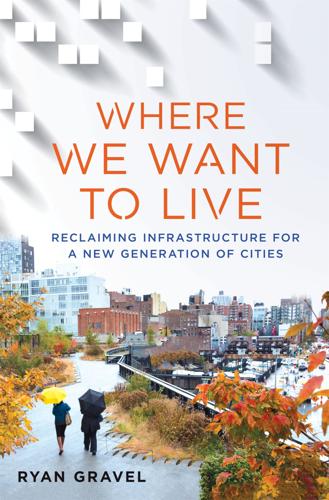
Where We Want to Live
by
Ryan Gravel
Published 2 Feb 2016
Neighborhoods like Pittsburgh were hit especially hard, with brand-new homes sitting empty because their price on paper was multiple times their actual value. While the financial crisis lessened the urgency of gentrification in the near term, it generated all kinds of new problems for families at risk of losing their homes, which is usually the most significant asset with which to build generational wealth. A 31-acre industrial tract in Pittsburgh presents hope for a large-scale strategy there. It has nearly half a mile of frontage along the Atlanta Beltline and it is owned by the Annie E. Casey Foundation, which plans to meet a high bar for job creation and other community benefits. Another effort in progress is the Atlanta Land Trust Collaborative (ALTC), which was created to protect affordability and diversity in local communities.
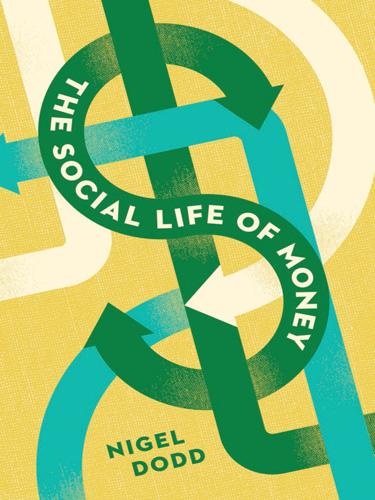
The Social Life of Money
by
Nigel Dodd
Published 14 May 2014
Money functions, “as long as one can count with and on cash money to produce effects”—whether of alms, purchase, or speculation. Genuine and counterfeit money are both capable of expressing this truth. Given enough faith, they can both generate wealth. As Baudelaire’s narrator remarks, the counterfeit coin is bound to produce events in the life of its recipient: it could be converted into real coins; or lead him into prison; or create the seed for several days’ wealth, should the beggar decide to speculate.12 Such is the unlimited potential of money. If even a fake coin can be used to generate wealth, the distinction between true and counterfeit money begins to break down. Derrida’s analysis echoes what he said about spectralization in Marx.
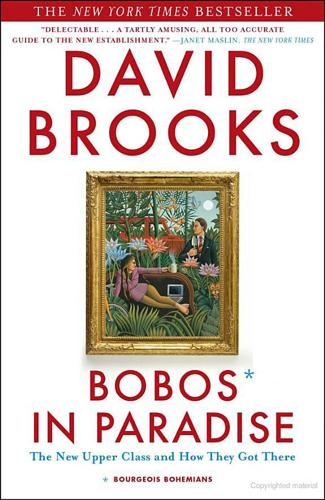
Bobos in Paradise: The New Upper Class and How They Got There
by
David Brooks
Published 1 Jan 2000
The transcendentalists lived in a bourgeois culture that was intoxicated by the possibilities of technology and by the “improvements,” to use a popular word of the era, that would come with progress. The steam engine, the railway, the factory, scientific management—all of these things would eliminate distance, facilitate trade, and generate wealth. Man was on the verge of conquering nature, of redeeming the howling wilderness by making it productive. In his 1964 book, The Machine in the Garden, literary critic Leo Marx cites this quotation from an 1840s journalist named George Ripley as an example of what he calls the technological sublime: The age that is to witness a rail road between the Atlantic and the Pacific, as a grand material type of unity of nations, will also behold a social organization, productive of moral and spiritual results, whose sublime and beneficial character will eclipse even the glory of those colossal achievements which send messengers of fire over the mountain tops, and connect ocean with ocean by iron and granite bands.
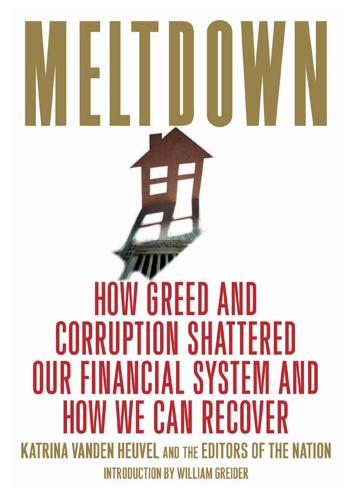
Meltdown: How Greed and Corruption Shattered Our Financial System and How We Can Recover
by
Katrina Vanden Heuvel
and
William Greider
Published 9 Jan 2009
It is driving countless people to take what money they have left out of money market funds, cash in stocks at a loss and withdraw money from savings accounts to put it in government notes which, for practical purposes, pay no interest. Money stuck away in government notes and bonds is unproductive money, money that will not be spent to generate wealth. Stagnant money makes for a scum-pond economy and fewer jobs. Fear has made it next to impossible to borrow for anything—working capital for one’s business, for new ventures, for investment in new equipment. Bankers who a couple of years ago were out on the street corners begging people to take the money off their hands will not cough up a car loan.
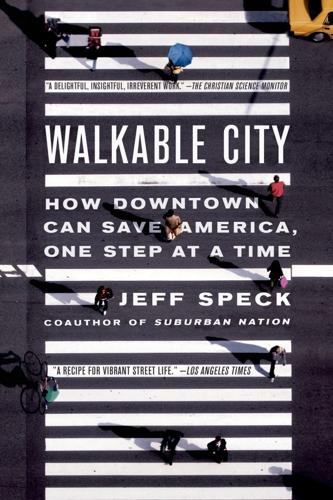
Walkable City: How Downtown Can Save America, One Step at a Time
by
Jeff Speck
Published 13 Nov 2012
This has certainly been the case in San Francisco, where headhunters for companies like Yelp and Zynga (the social-gaming developers who created FarmVille) actively use urbanism as a recruiting tool. “We’re able to attract creative and tech talent because we are in the city,” acknowledges Colleen McCreary, Zynga’s head of human resources.31 Ultimately, though, it would seem that urban productivity has even deeper causes. There is mounting evidence that dense, walkable cities generate wealth by sheer virtue of the propinquity that they offer. This is a concept that is both stunningly obvious—cities exist, after all, because people benefit from coming together—and tantalizingly challenging to prove.● This hasn’t kept it from the lips of some of our leading thinkers, including Stewart Brand, Edward Glaeser, David Brooks, and Malcolm Gladwell.
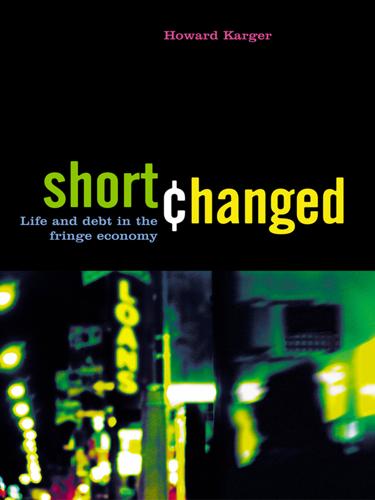
Shortchanged: Life and Debt in the Fringe Economy
by
Howard Karger
Published 9 Sep 2005
While this HUD-endorsed option allows the elderly to stay in their homes and rely less on governmental assistance, it also impedes heirs from inheriting a free and clear property, and thus hampers the intergenerational transfer of wealth, something that is critical for both high- and low-income people.127 For many homeowners, refinancing is a shell game in which debt is moved from one shell to another, growing larger as more fees are assessed, more commissions are paid, and more home equity is stripped away. In the end, the homeowner becomes asset-poor and debt-rich. The extent of this indebtedness often becomes apparent only when selling a home or facing retirement. In that sense, instead of generating wealth, home ownership is fast becoming an albatross of debt around the necks of over-leveraged families. The growing phenomenon of home ownership as crushing debt rather than asset formation is based partly on the disparity between soaring housing prices and the stagnant incomes of millions of working-class Americans.
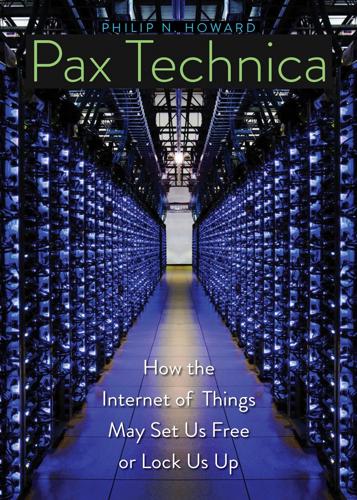
Pax Technica: How the Internet of Things May Set Us Free or Lock Us Up
by
Philip N. Howard
Published 27 Apr 2015
The groups that manage these areas sometimes have the power to destabilize their neighbors. Such spots are the first to fall apart during a political or military crisis. When pushed, central government leaders have to admit they have no control. They focus state resources on the capital cities they inhabit and the areas with national resources that generate wealth. For example, when Syrian rebels started scoring some real victories, Assad gave up his Kurdish region almost immediately, opening a vacuum for the brutal terrorist group ISIS to fill. The list of limited, failing, or failed states is long. Some governments aren’t functioning well, but that suits ruling elites just fine.
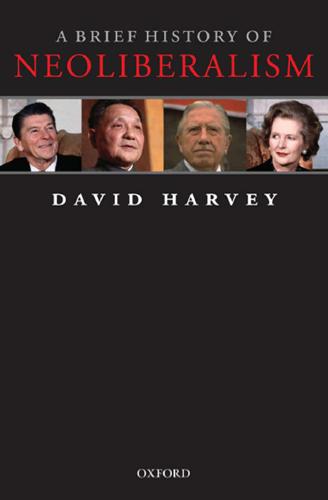
A Brief History of Neoliberalism
by
David Harvey
Published 2 Jan 1995
Along with all of this went the hype about ‘globalization’ and all that it supposedly stood for in terms of the construction of an entirely different and totally integrated global economy.8 Figure 6.2 The hegemony of finance capital: net worth and rates of profit for financial and non-financial corporations in the US, 1960–2001 Source: Duménil and Lévy, Capital Resurgent, 111, 134. Reproduced courtesy Harvard University Press. The main substantive achievement of neoliberalization, however, has been to redistribute, rather than to generate, wealth and income. I have elsewhere provided an account of the main mechanisms whereby this was achieved under the rubric of ‘accumulation by dispossession’.9 By this I mean the continuation and proliferation of accumulation practices which Marx had treated of as ‘primitive’ or ‘original’ during the rise of capitalism.
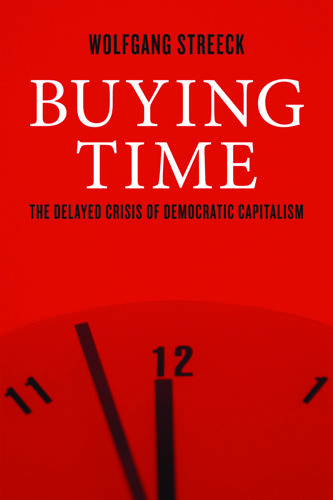
Buying Time: The Delayed Crisis of Democratic Capitalism
by
Wolfgang Streeck
Published 1 Jan 2013
‘You can lead a horse to water, but you can’t make it drink’ – as Karl Schiller, the Keynesian economist and SPD economic expert of the late 1960s and early 1970s, said of his efforts to revive the economy after the brief crisis of 1967. 45 One might speak of the need for a renewal of the capitalist profit-hunting permit. 46 Kalecki, ‘Political Aspects of Full Employment’. 47 We cannot go into this in detail here, but I am convinced that in the discursive processing of the strike movements of 1968–69 one can find the origin of today’s hegemonic commonsense notion that ‘we’ – that is, ordinary men and women – have become too demanding and must learn to content ‘ourselves’ with less. As we shall see, mainstream economic theory also blames exaggerated demands among the masses for the high level of public debt in later decades – an explanation ideally suited to make people forget the dramatically more unequal distribution of generated wealth. 48 The 1970s saw the rise of public choice theory in economics. Political actors and public authorities were modelled as self-serving utility maximizers who, unlike capital, had the advantage that they could use public power for their own enrichment. See J. Buchanan and G. Tullock, The Calculus of Consent: Logical Foundations of Constitutional Democracy, Ann Arbor: University of Michigan Press, 1962.
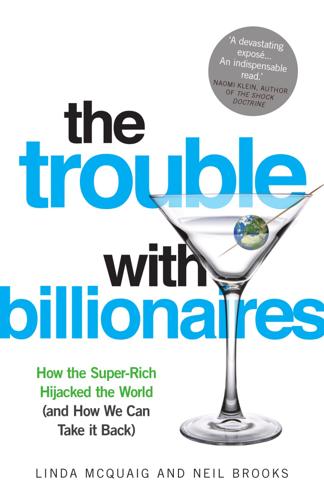
The Trouble With Billionaires
by
Linda McQuaig
Published 1 May 2013
The primacy and ubiquity of society – so casually erased by billionaires and others justifying their fortunes – must be restored if we are to have any meaningful discussion of income and wealth, and where an individual’s claim ends and society’s begins. The restoration of society into the equation allows us to meaningfully explore the question of the proper relationship between the individual and the community – and who owes what to whom. One of the crucial ways that society assists individuals in their ability to generate wealth lies in the inheritance from previous generations. This inheritance from the past is so vast it is almost beyond calculation. It encompasses every aspect of what we know as a civilization and every bit of scientific and technological knowledge we make use of today, going all the way back to the beginning of human language and the invention of the wheel.
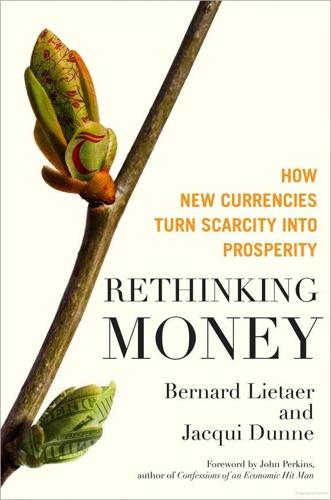
Rethinking Money: How New Currencies Turn Scarcity Into Prosperity
by
Bernard Lietaer
and
Jacqui Dunne
Published 4 Feb 2013
At the same time, several A Fate Worse Than Debt 49 other studies have shown that the key to building communities and social capital is gift exchanges, such as helping a neighbor or mentoring a student.13 These findings further attest to the unfortunate reality that, as monetized market mechanisms are introduced into ever-greater areas of society, social capital begins to erode. International financier George Soros concluded, “International trade and global financial markets are very good at generating wealth, but they cannot take care of other social needs, such as the preservation of peace, alleviation of poverty, protection of the environment, labor conditions, or human rights—what are generally called ‘public goods.’ ”14 UNRELENTING CONCENTRATION OF WEALTH It is generally not understood that an interest-based monetary system is also one of the key underlying mechanisms for concentrating wealth in increasingly fewer hands, fueling the growing disparity between rich and poor.
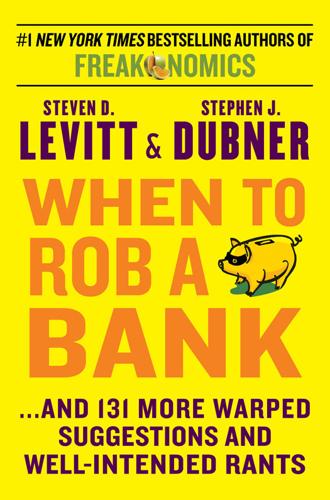
When to Rob a Bank: ...And 131 More Warped Suggestions and Well-Intended Rants
by
Steven D. Levitt
and
Stephen J. Dubner
Published 4 May 2015
The idea of the invisible hook is that pirates, though they’re criminals, are still driven by their self-interest. So they were driven to build systems of government and social structures that allowed them to better pursue their criminal ends. They’re connected, but the big difference is that, for Adam Smith, self-interest results in cooperation that generates wealth and makes other people better off. For pirates, self-interest results in cooperation that destroys wealth by allowing pirates to plunder more effectively. Q. You write that pirates set up their own early versions of constitutional democracy, complete with separation of powers, decades before the American Revolution.

Fallen Idols: Twelve Statues That Made History
by
Alex von Tunzelmann
Published 7 Jul 2021
The missionary cradled an African baby with one arm, and, with the other, comforted an African child who appeared to be praying to him. The inscription on this statue read: ‘Belgium brings civilization to the Congo’. If Leopold’s rule in the Congo really was so successful - abolishing slavery, generating wealth and promoting civilization - then what was the need for all this propaganda? Was it an attempt to cover something up? In 1899, the author Joseph Conrad serialized his novel Heart of Darkness, inspired by his own experiences as a steamboat captain in the Congo Free State. The Congo he portrayed was no happy land of free trade and liberated Africans, but an inhuman hellscape of violence and exploitation.
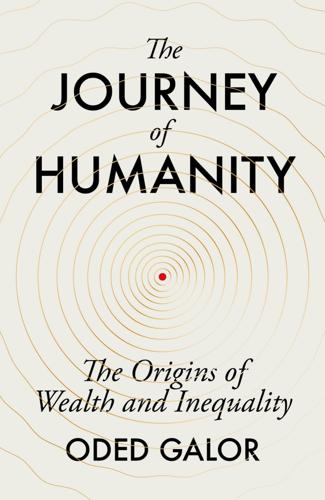
The Journey of Humanity: The Origins of Wealth and Inequality
by
Oded Galor
Published 22 Mar 2022
When the war ended and the troops returned home, the source of this bounty dried up, and these islanders, unfamiliar with the modern manufacturing process and seeking to ascertain the provenance of this wealth, reproduced some of the features and practices that accompanied it, hoping ultimately that the cargo – perceived physical and spiritual wealth, equality, and political autonomy – might return to bless their islands again.[1] Too often, Western policy recommendations for the development of poorer nations are not that different from these ‘renewing rituals’ of the Tanna islanders. They involve a superficial imitation of institutions that correlate with economic prosperity in developed countries, without a proper consideration of the underlying conditions that allow them to generate wealth – circumstances that may not exist in the poorer countries. In particular, the conventional wisdom has been that poverty in the developing world is predominantly the result of improper economic and governmental policies and it can therefore be eradicated through the application of a universal set of structural reforms.
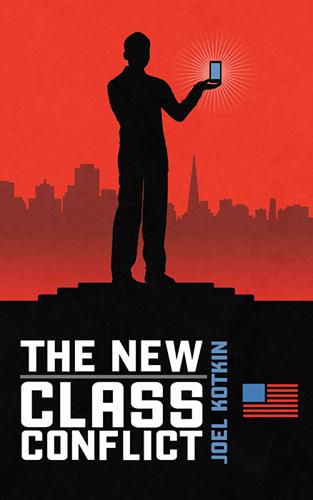
The New Class Conflict
by
Joel Kotkin
Published 31 Aug 2014
This huge transfer, the researchers believe, will usher in what they call “a golden age of philanthropy.” As the bulk of younger Americans struggle to obtain decent jobs and secure property, the Social Welfare Research Institute concluded that America is moving toward an “inheritance-based economy,” where access to the last generations’ wealth could prove a critical determinant of both influence and power.70 This can already be seen in the rise of nonprofit foundations, which have been growing rapidly in size and influence since the late 1960s, paralleling the expansion of other parts of the Clerisy like the universities and government.71 Between 2001 and 2011, the number of nonprofits increased 25 percent to over 1.5 million today.
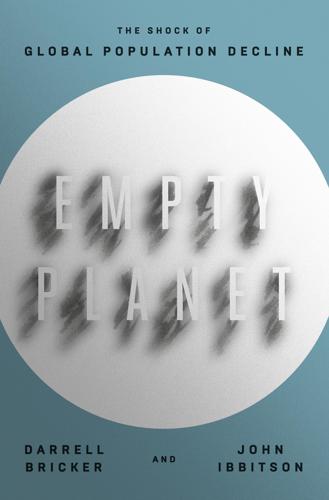
Empty Planet: The Shock of Global Population Decline
by
Darrell Bricker
and
John Ibbitson
Published 5 Feb 2019
Competition between states encouraged economic competition, for any enlightened despot knew that paying to keep an army in the field was half the battle, and sometimes made the battle moot. And with all these principalities elbowing each other for space on a confined continent, and competing with each other to generate wealth, it paid to explore. In the years when China’s treasure fleets probed the Indian Ocean, the Iberian peninsula was a cauldron of conflict and innovation. Conquered by Muslims in the eighth century and gradually reconquered by Christians in the medieval era, it was a place where Christian and Muslim technology jostled and intermingled, fusing to create the caravel, a sturdy ship equipped with a triangular lateen sail that made it possible for a vessel to sail against the wind.
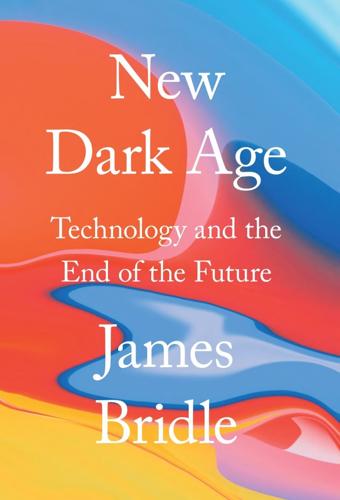
New Dark Age: Technology and the End of the Future
by
James Bridle
Published 18 Jun 2018
In May 2017, the Economist devoted an entire issue to the proposition, declaring that ‘smartphones and the internet have made data abundant, ubiquitous and far more valuable … By collecting more data, a firm has more scope to improve its products, which attracts more users, generating even more data, and so on.’15 The president and CEO of Mastercard told an audience in Saudi Arabia, the world’s largest producer of actual oil, that data could be as effective as crude as a means of generating wealth (he also said it was a ‘public good’).16 In British parliamentary debates on leaving the European Union, data’s oily qualities were cited by Members of Parliament on both sides.17 Yet few such citations address the implications of long-term, systemic and global reliance on such a poisonous material, or the dubious circumstances of its extraction.
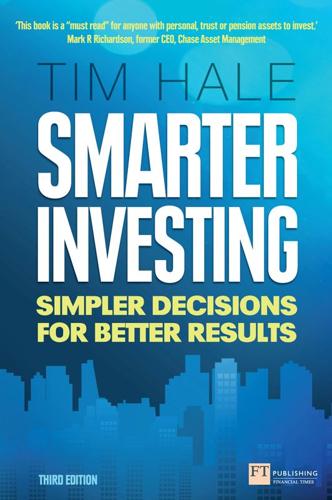
Smarter Investing
by
Tim Hale
Published 2 Sep 2014
While most investors can understand the simple concept of buy low, sell high, the very nature of their behaviour results in exactly the opposite. Investors tend to be influenced by what is going on in the markets over the short term. This makes them vulnerable to what the industry refers to as being ‘whip-sawed’ as they move from last year’s bad performing investment to this year’s best performer. Figure 5.1 Generic wealth-destroying behaviour Let us take a look at this behaviour in practice in the UK. Figure 5.2 shows the net retail sales by unit trusts and open-ended investment companies (OEICs) to UK investors. Rationally, you would expect that after the UK equity market had fallen by 40% or so in 2007–2008, new fund flows into equities would increase, as investors were getting better value for their money than at the start of 2007 when the market was at a high.
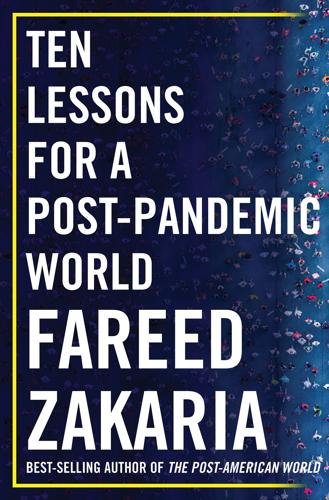
Ten Lessons for a Post-Pandemic World
by
Fareed Zakaria
Published 5 Oct 2020
He emphasized that the first half of the term was key: ensuring employers had the flexibility to hire and fire workers easily, without excessive regulation or litigation, in an economy that’s open to the world and competitive—but all within a system that provides the security of a generous safety net. What distinguishes Northern European countries from the United States are their high levels of general taxation and redistribution. In other words, the system is designed to make it easy to generate wealth through free markets and free trade. Then, the state collects much of that wealth and spends it to ensure that its citizens have equal and abundant opportunities. Denmark’s taxes add up to 45% of its GDP, whereas in the United States the figure is 24%. And Denmark doesn’t just tax the rich. Like other European countries, Denmark collects a large part of its revenues from a national sales tax.
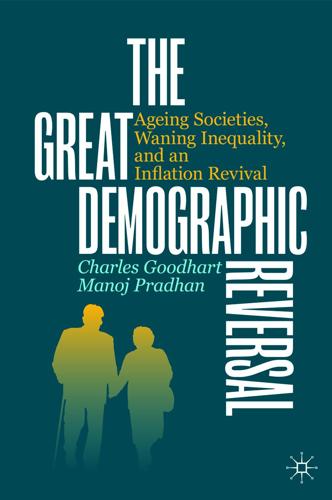
The Great Demographic Reversal: Ageing Societies, Waning Inequality, and an Inflation Revival
by
Charles Goodhart
and
Manoj Pradhan
Published 8 Aug 2020
Furthermore, we believe that social and political pressures will continue to force medical and pension costs up in accordance with current projections, and that new and old superpower rivalry will keep defence spending up. So, what seems almost inevitable is that the maintenance of public sector solvency will require higher taxation. But on what? The geographical mobility of (skilled) people, financial wealth and corporate headquarters can make steeply progressive income taxes, general wealth taxes and much higher standard-form corporate taxes largely self-harming. On the other hand raising income taxes at the lower end of the spectrum could worsen inequality and cause workers to demand higher pre-tax wage rates. The Upper Bound Threshold to Taxation on the Working Population Heer, Polito and Wickens (2018) seek to estimate the upper bound threshold of taxation on the working population.
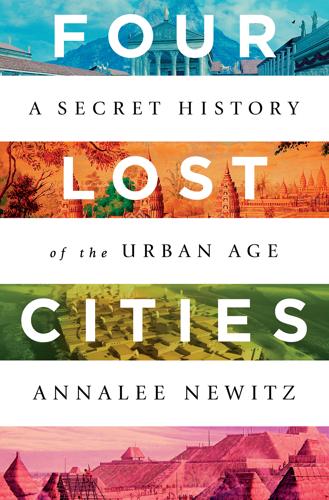
Four Lost Cities: A Secret History of the Urban Age
by
Annalee Newitz
Published 2 Feb 2021
The king may have been powerful, but he was nothing without all the labor power that turned Angkor into a shining cosmopolis. Labor was Angkor’s most valuable asset. That’s not because the Khmer had an unsophisticated economy; indeed, slave-owning societies all the way up into the 19th century often depended largely on their workers to generate wealth. Sociologist Matthew Desmond, writing about slave labor in the US South, has noted that by the time the Civil War started, “the combined value of enslaved people exceeded that of all the railroads and factories in the nation.”7 The Khmer Empire was held together by a system that normalized servitude by casting it as something people owed to their leaders, and by incorporating it into public rituals.
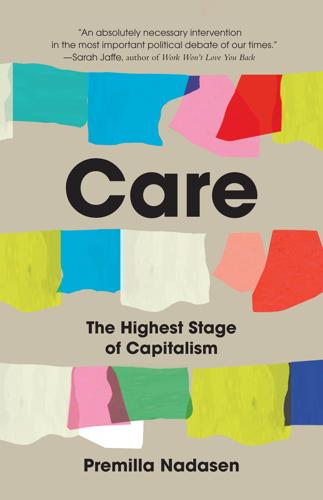
Care: The Highest Stage of Capitalism
by
Premilla Nadasen
Published 10 Oct 2023
Although these financial transactions seem divorced from human bodies, they are, in fact, very much tied to people. Hedge fund managers bet on market volatility, and the banking sector earns loads of money from household hardship. When families default on loans, go into debt, or are slapped with fees and fines, someone is profiting. Market fluctuations, although bad for some, creates opportunities for generating wealth for others. I discuss further in chapter 6 how capital sees not devastation but dollar signs in other markers of instability such as foster care, welfare, the carceral state, and devolution of the safety net. In addition, an unstable workforce—more pliable, manageable, and “deportable” (to use Nicholas de Genova’s phrase)—has also been an asset to capital.41 Precarious workers employed in the service sector, in both private homes and institutions, are locked into low-wage employment because of racism, sexism, legal status, and the dismantling of public assistance programs.
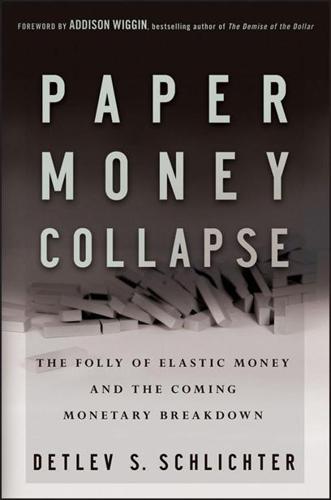
Paper Money Collapse: The Folly of Elastic Money and the Coming Monetary Breakdown
by
Detlev S. Schlichter
Published 21 Sep 2011
Saving, consumption and investing are interconnected and coordinated via market prices, including interest rates. Saving is the basis for prosperity. No society has ever risen, nor could any society conceivably ever rise, out of poverty and into prosperity via consumption. It is saving and production that generate wealth. By shifting resources from meeting present consumption needs and by allocating them to productive uses to meet future consumption needs, that is, by saving and investing, society generates the capital stock that raises the productivity of labor and allows a larger supply of goods and services, and also different and better goods and services.
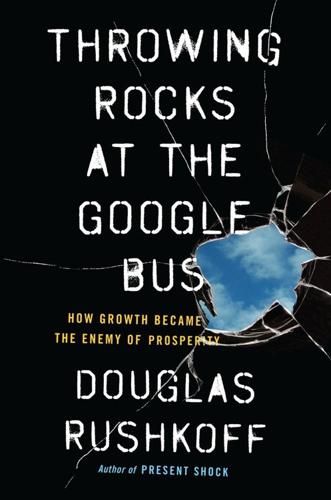
Throwing Rocks at the Google Bus: How Growth Became the Enemy of Prosperity
by
Douglas Rushkoff
Published 1 Mar 2016
In spite of working more efficiently—or really because of it—workers get a smaller piece of the economic pie. This income disparity is not a fact of nature or an accident of capitalism, either, but part of its central code. Technology isn’t taking people’s jobs; rather, the industrial business plan is continuing to repress our ability to generate wealth and create value—this time, using digital technology. In other words, the values of the industrial economy are not succumbing to digital technology; digital technology is expressing the values of the industrial economy. The recent surge in productivity, according to Piketty, has taken this to a new level, so that the difference between capital and labor—profit and wages—is getting even bigger.47 Leading-edge digital businesses have ten times the revenue per employee as traditional businesses.
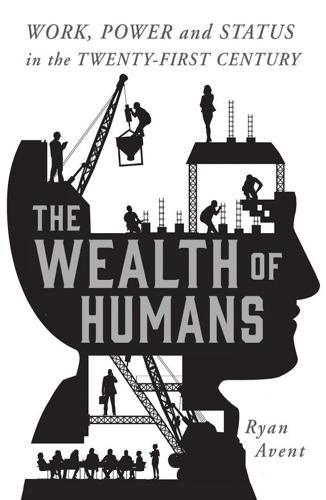
The Wealth of Humans: Work, Power, and Status in the Twenty-First Century
by
Ryan Avent
Published 20 Sep 2016
Give a rich household an additional $100 and (assuming its members even notice) the money is far more likely to sit idly in savings. The rich household will not be rushing out to get that new television it has not quite been able to afford. The share of national income earned by the richest households soared over the last generation. Wealth concentrated in fewer hands. Both trends pushed purchasing power into the grips of households with low propensity to use an additional dollar for consumption. In other words, more income flowed into the hands of people inclined to save a large share of their income. Given soaring savings and obstacles to productive investment, central banks therefore had to work harder to keep demand high enough to keep everyone employed.
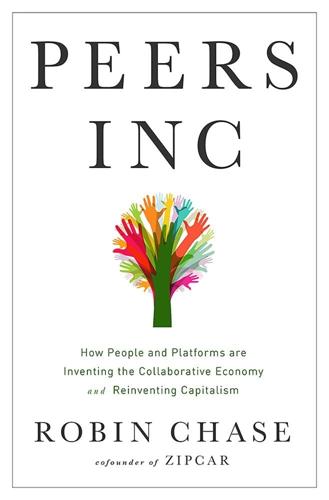
Peers Inc: How People and Platforms Are Inventing the Collaborative Economy and Reinventing Capitalism
by
Robin Chase
Published 14 May 2015
I remember very clearly the first person we kicked out (she had returned a car knowing the brakes weren’t working—she’d run over a plastic bag that had somehow inhibited braking—but hadn’t bothered to tell us), and the day two months later when she came into the office begging for a second chance. We didn’t give it to her. That said, at the time I hadn’t appreciated the need for clear guidelines about how such people could rejoin. As befits such a powerful new kind of engine for generating wealth, Peers Inc enterprises will eventually have to address the degree to which peers share both the power and the enormous value created when a platform becomes a smash hit or a ubiquitous standard. During the early stages of development and the everybody-welcome phase, there is a fairly equitable deal between the platform and the peers.
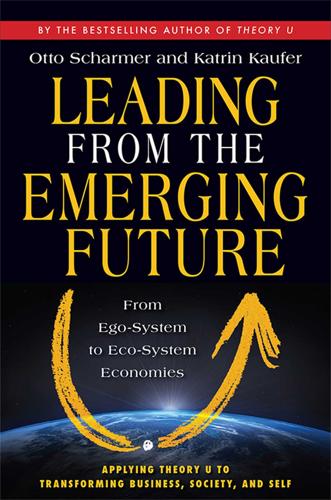
Leading From the Emerging Future: From Ego-System to Eco-System Economies
by
Otto Scharmer
and
Katrin Kaufer
Published 14 Apr 2013
Otto Scharmer, “Attentional Violence,” blog entry, August 24, 2009, www.blog.ottoscharmer.com/?p=18 (accessed December 9, 2012). 7. Max Weber, The Protestant Ethic and the Spirit of Capitalism (New York: Scribner, 1951), 181–82. 8. Juliet B. Schor, Plenitude: The New Economics of True Wealth (New York: Penguin, 2010), 43. 9. UN News Center, “Restoring Damaged Eco-Systems Can Generate Wealth and Employment—UN Report,” June 3, 2010, www.un.org/apps/news/story.asp?NewsID=34906 (accessed December 9, 2012). 10. One notable exception is the economic school of thought of the physiocrats; however, this stream of thinking began in the preindustrial era. 11. A few great exceptions prove the rule.
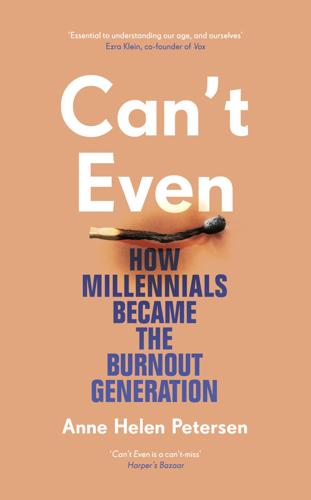
Can't Even: How Millennials Became the Burnout Generation
by
Anne Helen Petersen
Published 14 Jan 2021
If a white middle-class person feels exhausted reading the news, what does an undocumented person navigating the world endure? If it’s tedious to deal with implicit sexism in the workplace, how about adding in some not-so-implicit racism? How does burnout work differently when you don’t have access to generational wealth? How does student debt sting more when you’re the first in your family to go to college? Decentering the white middle-class millennial experience as the millennial experience is an ongoing and essential aspect of this project. I find myself returning to the words of Tiana Clark, who wrote a piece on the specifics of Black burnout in response to my own: “No matter the movement or era,” she wrote, “being burned out has been the steady state of black people in this country for hundreds of years.”8 And while many white Americans are attempting to reclaim economic security, that sort of security has always been elusive for Black Americans.

Please Don't Sit on My Bed in Your Outside Clothes: Essays
by
Phoebe Robinson
Published 14 Oct 2021
While I’m certain this question is asked in earnest and in an effort to change, it’s just . . . bizarre. Like, comically so. I don’t really know how to help middle-aged white people who think forty-eight years old is a good age to start befriending Black people. It’s like waiting until you’re sixty-two to begin building generational wealth because it just dawned on you that you’d save a lot of money if you start couponing. It’s kind of too late, no? Furthermore, making it known that you want to start being around Black people can come off like, “Here’s a new pet project I can dabble in! Got any tips?” That’s why I think the better question would be, “Why did it take countless horrifying deaths to see Black people as human instead of simply as trauma porn?”
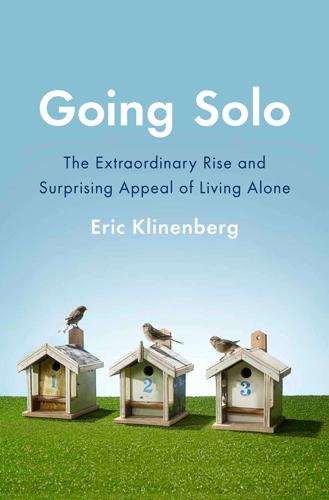
Going Solo: The Extraordinary Rise and Surprising Appeal of Living Alone
by
Eric Klinenberg
Published 1 Jan 2012
A Frenchman who wrote his major works in the late nineteenth century, Durkheim did not envision the radical economic individualism later endorsed by figures such as Milton Friedman, Ayn Rand, or Margaret Thatcher (who famously declared, “There is no such thing as society”), nor did he share their conviction that liberating individuals from the state was the most effective way to generate wealth and advance the common good. But he wasn’t entirely pessimistic, either. Durkheim argued that the modern division of labor would bind citizens organically. After all, individuals could achieve “independence” and “liberty” only if they were supported by the key modern social institutions—the family, the economy, and the state—which meant they had a clear self-interest in joining together to promote the common good.

The Fourth Revolution: The Global Race to Reinvent the State
by
John Micklethwait
and
Adrian Wooldridge
Published 14 May 2014
Enlightened bureaucrats built the folkhemmet, or “people’s home,” where the state looked after everybody’s needs and blond bureaucrats organized everything along rational lines, right down to the correct design for your kitchen. Meanwhile socially responsible companies like Volvo and Ericsson generated wealth. This was “the middle way” between capitalism and communism, celebrated by Marquis Childs in his 1936 book of that name. Sweden even had its own version of the Webbs in Gunnar and Alva Myrdal, who championed economic planning, eugenic breeding, and men sharing the housework. But in the 1960s, as the concept of equality broadened, Sweden veered even further left than the rest of Europe.
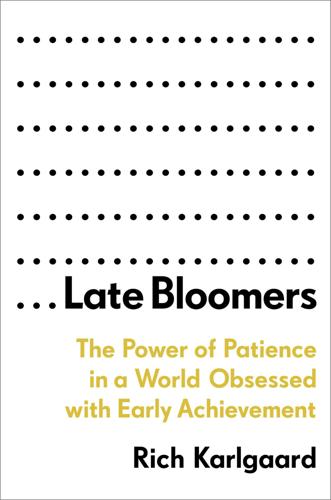
Late Bloomers: The Power of Patience in a World Obsessed With Early Achievement
by
Rich Karlgaard
Published 15 Apr 2019
Just as Lewis Terman, Carl Brigham, and Edward Lee Thorndike were working to quantify the potential of each individual, another powerful trend was taking shape in the United States. * * * Does this sound familiar? A new technology is created and connects the world. It creates enormous first-generation wealth for its visionary leaders but crushes the working poor in locations far from the technology grid. The gap between rich and poor grows to record proportions. The dispossessed rural poor crowd into cities, which creates epidemics of disease and crime. Angry populism, on both left and right, catches fire.
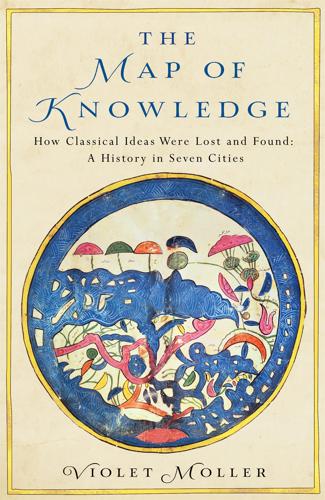
The Map of Knowledge: How Classical Ideas Were Lost and Found: A History in Seven Cities
by
Violet Moller
Published 21 Feb 2019
Culturally and linguistically, the area around Salerno continued to have links with the Greek-speaking Byzantine Empire, not only through trade, but also the Orthodox monasteries whose libraries were home to books sent from Constantinople, and the possible source of some of the medical texts that found their way to the medical school. In addition to this, Arabs living in Sicily and Southern Italy shared medical ideas and methods with their Christian neighbours. 18. A nineteenth-century view of Salerno. As a result, a tradition of medical scholarship developed in tandem with the general wealth and success of a city that, by 900, was the most important and prosperous in the whole of Southern Italy. Close ties with neighbouring Amalfi, the first great European maritime power since antiquity, had brought riches to this area of the Italian coast. Amalfitan merchants travelled the length and breadth of the Mediterranean, buying and selling goods; their privileged links with Byzantium and Arab states, notably Egypt, made them major importers of luxury goods from the East, and suppliers of wood, linen and agricultural produce to North Africa.
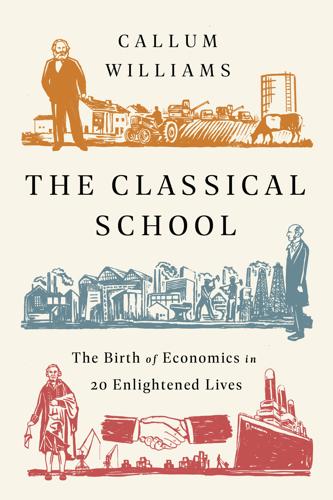
The Classical School
by
Callum Williams
Published 19 May 2020
And, of course, agriculture has become more productive: with less and less input, farmers can produce more and more output. The English physiocrat How did Ricardo get it so very wrong? Tony Wrigley puzzles over why he did not show “any inkling of the onset of a period of revolutionary progress in society’s ability to generate wealth and hence to benefit the living standards of the mass of the population”. This is a point worth emphasising. A man held up to be one of the greatest economists of all time, writing during the world’s first-ever period of rapid GDP growth, was arguing that precisely this was impossible. There are a few possible solutions to this puzzle.
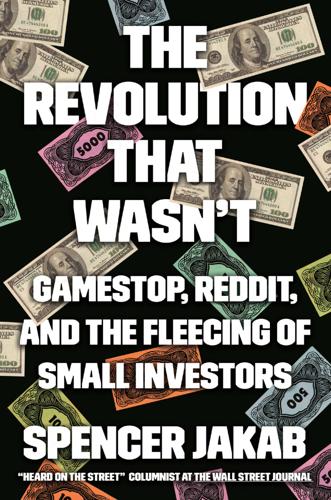
The Revolution That Wasn't: GameStop, Reddit, and the Fleecing of Small Investors
by
Spencer Jakab
Published 1 Feb 2022
And, of course, when things get extreme, you have things like that short squeeze.”[12] A Robinhood spokesperson was quick to take the bait. In one fell swoop an entire generation of investors has been criticized and this commentary overlooks the cultural shift that is taking place in our nation today. Robinhood was created to allow people who don’t have access to generational wealth or the resources that come with it to begin investing in the U.S. stock market.[13] The release went on to call Munger’s racetrack analogy “disappointing and elitist.” It would be hard to find a critic both older and richer than Munger, but finding one who is wiser wouldn’t be much easier.
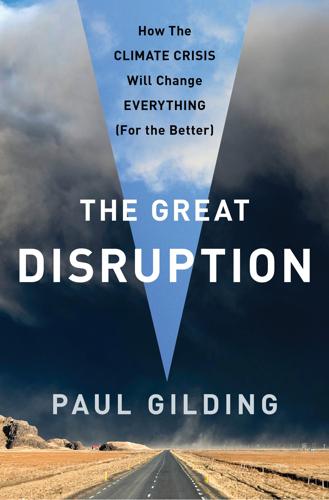
The Great Disruption: Why the Climate Crisis Will Bring on the End of Shopping and the Birth of a New World
by
Paul Gilding
Published 28 Mar 2011
People make them what they are and determine what they do. Whether an organization is for-profit or not, it is certainly the case that its culture and purpose are critical issues, I think perhaps the most important ones. I am dismissive of the idea that companies can exist with a central goal of generating wealth for shareholders. This to me is a shallow and wholly ineffective way to organize people, which is what companies do—organize people to deliver an outcome. Even though this runs counter to the dominant thinking in most companies, it is not actually a radical idea and is well discussed in the business literature.
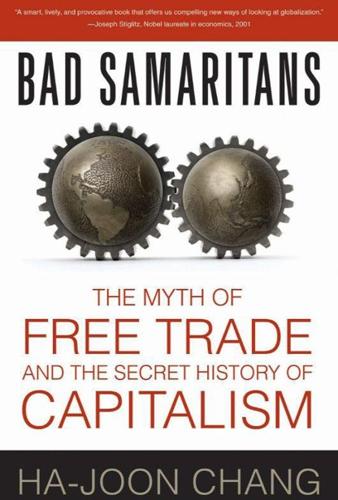
Bad Samaritans: The Myth of Free Trade and the Secret History of Capitalism
by
Ha-Joon Chang
Published 26 Dec 2007
They argue that democracy promotes free markets, which, in turn, promote economic development, which then promotes democracy: ‘The market underpins democracy, just as democracy should normally strengthen the market’, writes Martin Wolf, the British financial journalist, in his renowned book, Why Globalisation Works.20 According to the neo-liberal view, democracy promotes free markets because a government that can be unseated without resorting to violent measures has to be restrained in its predatory behaviour. If they don’t have to worry about losing power, rulers can impose excessive taxes with impunity and even confiscate private property, as numerous autocrats have done throughout history.When this happens, incentives to invest and generate wealth are destroyed and market forces distorted, impeding economic development. By contrast, under democracy, the predatory behaviour of the government is restrained and thus free markets can flourish, promoting economic development. In turn, free markets promote democracy because they lead to economic development, which produces wealth-holders independent of the government, who will demand a mechanism through which they can counter the arbitrary actions of the politicians – democracy.
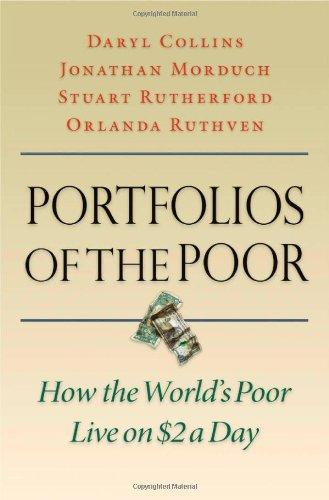
Portfolios of the poor: how the world's poor live on $2 a day
by
Daryl Collins
,
Jonathan Morduch
and
Stuart Rutherford
Published 15 Jan 2009
Both of the innovations we have described here—breaking loan repayments into small pieces, and flexible lines of credit for small and marginal farmers—help households manage loan installments despite the ups and downs of their incomes. They are good examples of designing products to fit real cash flows. Conclusions In developed countries, the aim of personal financial management is generally wealth accumulation and asset-building, acquisition of property, a retirement plan, and investment in children’s futures. The view that aspirations like these should be achievable for the poor has taken root most firmly in the United States, where there has been a movement to create publicly subsidized savings plans for poor households, known as Individual Development Accounts (IDAs).
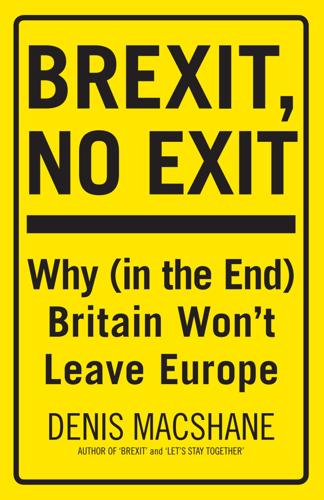
Brexit, No Exit: Why in the End Britain Won't Leave Europe
by
Denis MacShane
Published 14 Jul 2017
It has been unable to deliver or get into alignment shared economic prosperity, social investment and progress, and a stable programme of development for poorer countries, including those who have joined the EU in the twenty-first century. Post-national capitalism wants workers to be available at a moment’s notice, especially to generate wealth in the new people-intensive industries of cafés, bars, cleaning, caring and transport. Modern capitalism long ago gave up on any sense of a national social contract to train young men and women and give them skills in the non-graduate labour market. Despite the grandiose claims of ‘Social Europe’, and despite the undoubted protection that EU law does provide for employees, the swift and uncontrolled movement of people across frontiers and arriving as immigrants in local labour markets has caused tension and stress that the EU has not found an answer to.
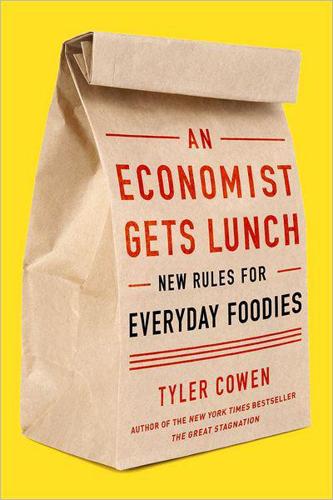
An Economist Gets Lunch: New Rules for Everyday Foodies
by
Tyler Cowen
Published 11 Apr 2012
The bottom line is that a trip to Japan is not a mistake. In the Japanese urban centers, economic activity—especially retail—has reached new heights in the history of humanity and that includes the food too. Singapore Singapore is one of my favorite places to eat, most of all because of their superb food stalls. The general wealth of the city allows people to eat out a lot, and land-use policies have ensured that stalls are not pushed out by higher rents. Tiong Bahru is the best I’ve been to, but buy one of the published guides to the stalls and their best dishes, available at city bookstores. Collections of these “hawker centers” as the stall areas are called—can be found throughout the city, but as you might expect, those in the city center are not the best.

The Education of Millionaires: It's Not What You Think and It's Not Too Late
by
Michael Ellsberg
Published 15 Jan 2011
Furthermore, whoever ends up licking those envelopes didn’t need to study for four years in college to do so, and my fellow Brown grads who took these kinds of jobs could have spent their years between the ages of eighteen and twenty-two learning the skills and mind-sets of having a real impact on the lives of other people, the way the people in this book learned. Instead, they take these kinds of jobs because they assume that if there’s money, profit, or commerce involved, it’s not making a difference, it’s greed. The entrepreneurs in this book, in turn, understand that true giving generates wealth, and true wealth helps you give more. They understand flow. They understand affluence. Much of the rest of this book is given over to self-education in the different tools in the Swiss army knife of advice giving, specifically : sales, marketing, connecting with influential people, how to invest in and increase your earning power, how to build a personal brand, how to take responsibility for your own success, and getting in touch with your purpose and meaning on the planet.
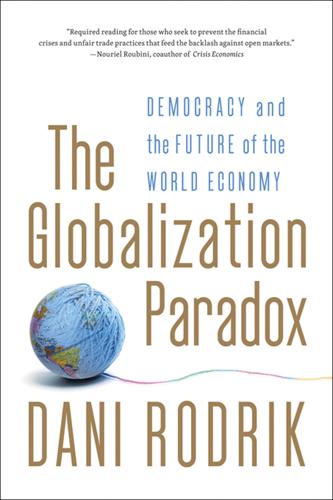
The Globalization Paradox: Democracy and the Future of the World Economy
by
Dani Rodrik
Published 23 Dec 2010
The correlation between government size and per capita income is remarkably tight. Rich countries have better functioning markets and larger governments when compared to poor ones. All this may be surprising at first sight, but the preceding discussion helps us understand what is going on. Markets are most developed and most effective in generating wealth when they are backed by solid governmental institutions. Markets and states are complements, not substitutes, as simplistic economic accounts would often have it. Trade and Governments This point was brought home to me in quite an unexpected way some years back. The government plays such a pervasive role in modern society that many social scientists, myself among them, find it impossible not to be obsessed by it.
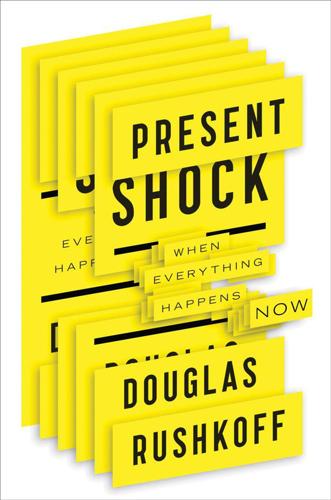
Present Shock: When Everything Happens Now
by
Douglas Rushkoff
Published 21 Mar 2013
Instead of innovating in the real world, banks turned to the financial instruments themselves. Interest had worked just fine for centuries, squeezing wealth out of money itself. Could the formula be repeated? Could more time be packed into interest? Interest had given money the ability to generate wealth through lending. Vastly simplified, interest is just a way of expressing money over time. Lend some money and over time that money multiples. Whether it is a bank lending money to a business, an investor buying some shares of stock, or a retiree buying a bond, everyone expects a return on his investment over time.
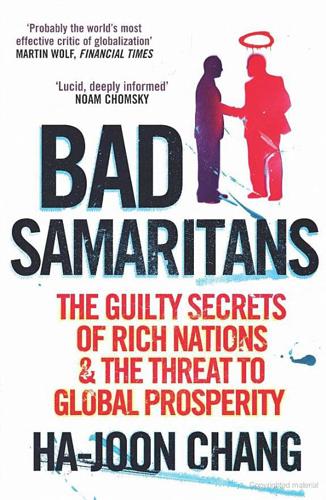
Bad Samaritans: The Guilty Secrets of Rich Nations and the Threat to Global Prosperity
by
Ha-Joon Chang
Published 4 Jul 2007
They argue that democracy promotes free markets, which, in turn, promote economic development, which then promotes democracy: ‘The market underpins democracy, just as democracy should normally strengthen the market’, writes Martin Wolf, the British financial journalist, in his renowned book, Why Globalisation Works.20 According to the neo-liberal view, democracy promotes free markets because a government that can be unseated without resorting to violent measures has to be restrained in its predatory behaviour. If they don’t have to worry about losing power, rulers can impose excessive taxes with impunity and even confiscate private property, as numerous autocrats have done throughout history. When this happens, incentives to invest and generate wealth are destroyed and market forces distorted, impeding economic development. By contrast, under democracy, the predatory behaviour of the government is restrained and thus free markets can flourish, promoting economic development. In turn, free markets promote democracy because they lead to economic development, which produces wealth-holders independent of the government, who will demand a mechanism through which they can counter the arbitrary actions of the politicians – democracy.
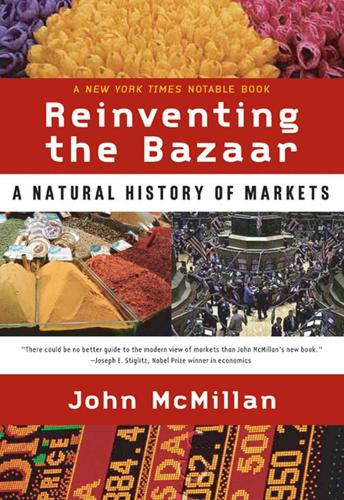
Reinventing the Bazaar: A Natural History of Markets
by
John McMillan
Published 1 Jan 2002
It is the worst form of economy, except for all the others that have been tried from time to time. It succeeds because, precisely as in Forster’s view of democracy, it admits variety and permits criticism. We should cheer it because it solves some all-but-intractable problems, which have been tackled by none of the alternative forms of economic organization. It generates wealth. It alleviates poverty. But it has its limits. There are things it cannot do. It does not necessarily do even what it is supposed to; it works well only if it is well designed. Two cheers are enough. ACKNOWLEDGMENTS Thanks to the following for comments, suggestions, and information: Daniel Berkowitz, Simon Board, Roger Bohn, Ashok Desai, Lewis Evans, Beth Goldberg, Avner Greif, Brad Handler, Eiichiro Kazumori, Kurt Lauk, Patrice Lord, Preston McAfee, Eva Meyersson, Paul Milgrom, Barry Naughton, John Roberts, Paul Romer, Michael Rothschild, Suzanne Scotchmer, Yoav Shoham, Matthew Shugart, Joel Sobel, Dale Squires, Steven Tadelis, Romain Wacziarg, Sonia Weyers, Matthew White, Bryce Wilkinson, Robert Wilson, Christopher Woodruff, Muhamet Yildez, and Jeffrey Zwiebel.
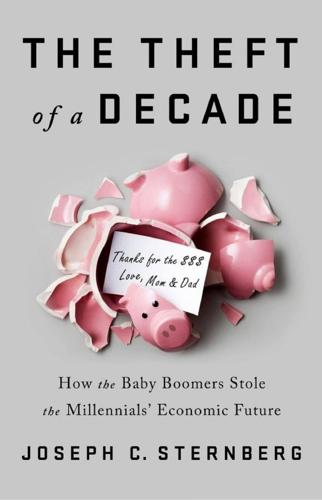
The Theft of a Decade: How the Baby Boomers Stole the Millennials' Economic Future
by
Joseph C. Sternberg
Published 13 May 2019
US Department of Education, “Strengthening the Student Loan System to Better Protect All Borrowers,” October 1, 2015, www2.ed.gov/documents/press-releases/strengthening-student-loan-system.pdf. 47. Val Srinivas and Urval Goradia, “The Future of Wealth in the United States: Mapping Trends in Generational Wealth,” Deloitte, 2015. 48. Elizabeth Arias, Melonie Heron, and Jiaquan Xu, “United States Life Tables, 2014,” National Vital Statistics Reports 66, no. 4 (2017). 49. Dana E. King, Eric Matheson, Svetlana Chirina, Anoop Shankar, and Jordan Broman-Fulks, “The Status of Baby Boomers’ Health in the United States: The Healthiest Generation?”
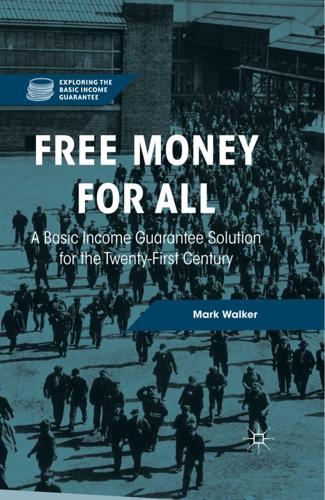
Free Money for All: A Basic Income Guarantee Solution for the Twenty-First Century
by
Mark Walker
Published 29 Nov 2015
Rather, my main opponent is our present capitalist system. Interestingly, this opponent is, for the most part, faceless. By this, I mean that it is difficult to find political philosophers who think that our present system is just. As we noted above, Rawls endorses certain aspects of capitalism as an efficient means to generate wealth, which is to be redistributed in accordance to the difference principle. Yet, Rawls is not an apologist for contemporary capitalism in the United States, since it nowhere near approximates what is required by the difference principle.26 So Rawlsians tend to believe that governments should do more to tame the excesses of capitalism when it comes to the concentration of wealth in the hands of a few.
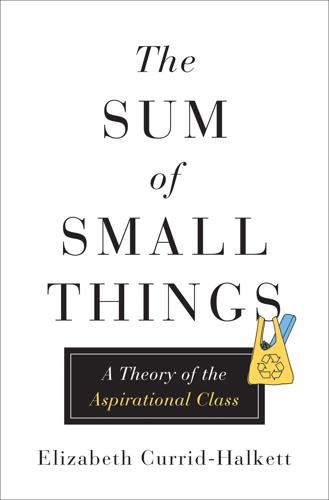
The Sum of Small Things: A Theory of the Aspirational Class
by
Elizabeth Currid-Halkett
Published 14 May 2017
The Industrial Revolution brought massive economic restructuring and the introduction of a middle class of businessmen and workers. These new workers were unlike the landless proletariats before them who were oppressed under the noble class. In the ensuing decades, the middle class, not just the upper tiers of society, acquired property, and generated wealth and disposable income that allowed them to purchase status through consumption. By the early twentieth century the middle class bought cars thanks to the constantly growing American automobile industry (first the Model-T, then Chevys and Cadillacs). By the 1950s, many owned suburban homes through the GI Bill and Federal Housing Authority.
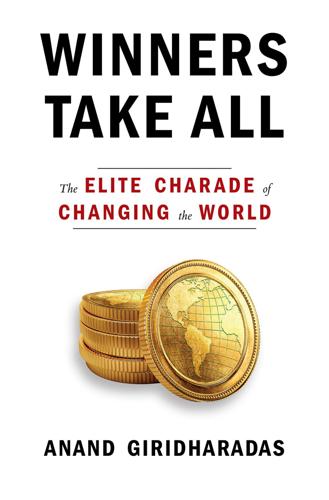
Winners Take All: The Elite Charade of Changing the World
by
Anand Giridharadas
Published 27 Aug 2018
Lest there be doubt that these industrial stewards know best, Carnegie said their talent is “proved by the fact that it invariably secures for its possessor enormous rewards.” In other words, rich people must be freed to make money however they can, because when they are, they tend to make a lot of money, which in turn brings progress for all. In this way, Carnegie effectively declared the economic system that generates wealth off-limits for the discussion. It was now time to turn to the giving half of the gospel: The question then arises,—and, if the foregoing be correct, it is the only question with which we have to deal,—What is the proper mode of administering wealth after the laws upon which civilization is founded have thrown it into the hands of the few?
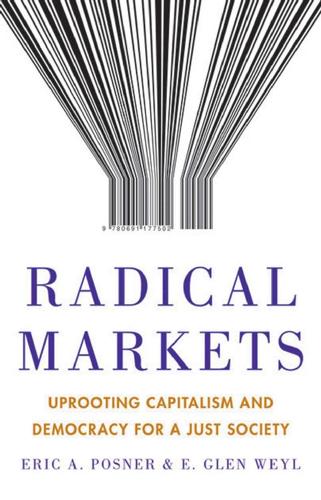
Radical Markets: Uprooting Capitalism and Democracy for a Just Society
by
Eric Posner
and
E. Weyl
Published 14 May 2018
The Radical Market of the time was one that extended beyond the borders of nations. Before Migration Mattered While the early Radicals passionately advocated free trade, they said little about migration.5 This might seem odd: the logic of free migration and free trade is the same, namely, that the expansion of economic openness generates wealth for nearly everyone. Some of these thinkers also mentioned, in passing, that they supported the free movement of people, not just goods. For example, both Smith and David Ricardo argued for free mobility of workers from the countryside to the city and across occupations, and in an offhand way remarked that the same should apply across borders.
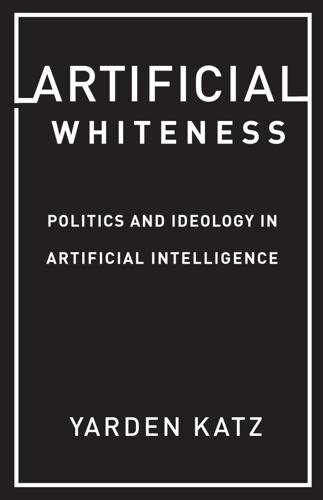
Artificial Whiteness
by
Yarden Katz
Simon dislikes excessive government intervention in companies and universities and the growing litigiousness of society.” 36. Nilsson draws heavily here on the work of another winner of the Swedish National Bank’s Prize in Economics, Wassily Leontief. Nilsson subscribes to the idea that technology has always improved human life by generating wealth and concludes that since computing is the most sophisticated of technologies, and AI the apogee of computing, AI would therefore accelerate the technological creation of wealth for everyone. In a radically different analysis, Nicholas Mirzoeff highlighted the ways in which computing systems sustain a vast system of financial debt and thus actually work to limit people’s freedoms rather than liberating them from labor.
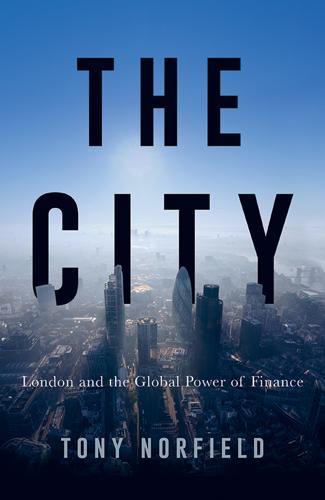
The City
by
Tony Norfield
The flexible noose Higher security prices increase the wealth of the owners of fictitious capital, even if nothing has changed in the economy at the level of production. Although the security’s price will reflect views about future production, profit and potential revenue to some extent, even that relationship is greatly affected by levels of interest rates. In any case, how can production or profits that do not yet exist generate wealth now? Nevertheless, this is a capitalist market reality. When billions of dollars are wiped off the value of shares in a stock market slump, the disappeared wealth may have been ‘fictitious’, but it was nevertheless once an asset that could have been cashed in, belonging to whoever owned these securities.
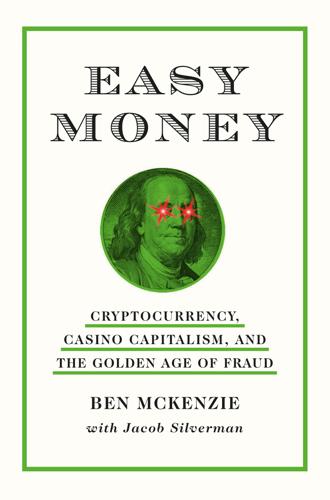
Easy Money: Cryptocurrency, Casino Capitalism, and the Golden Age of Fraud
by
Ben McKenzie
and
Jacob Silverman
Published 17 Jul 2023
What he saw in crypto gave him flashbacks to the wildly risky financial products that underwrote the 2008 financial crisis. And much like the subprime crisis, those least able to afford a financial setback had been targeted. According to a study from 2021, 44 percent of crypto traders were people of color. Many had been excluded from the mainstream financial system and saw crypto as a way of creating generational wealth. Expensive marketing campaigns starring world-famous athletes and celebrities sold them on this story. One of the most glaring examples of this was Bitcoin Academy, a project “personally funded” by Jack Dorsey, cofounder and former CEO of Twitter, and hip-hop artist and mogul Jay-Z. The project attempted to educate residents of the Marcy Houses, the housing development in Brooklyn where Shawn Carter (aka Jay-Z) grew up, on the wonders of Bitcoin.
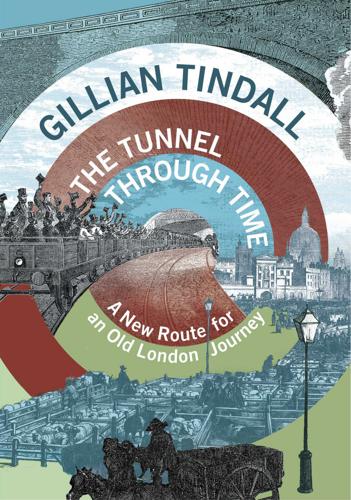
The Tunnel Through Time: A New Route for an Old London Journey
by
Gillian Tindall
Published 14 Sep 2016
At one point Jones loaned the Hudson’s Bay Company the then-enormous sum of £2,000 to get it out of trouble, but clearly this was a successful move as, when Jones had joined his forefathers in the churchyard, his wife Susanna was said to be the wealthiest widow in a district that had plenty of them, due to the hazardous nature of foreign merchant venturing. Moreover, the general wealth was increasing. In 1693 Stepney had just over one hundred citizens rich enough to pay tax; by 1727 this had risen to three hundred and thirty, and then to nearly four hundred in 1741. In the two years before, the Vestry included Captain John Redman (after whom a new street leading down from Mile End Road to join with Stepney Green was later named), Martin Leake who was the son of one of Queen Anne’s admirals and became Garter King at Arms, Captain William Snelgrove who was a slave-trader (West India connection), Captain Clark, Captain Posford, Captain Bonham, Captain Brooks, and two brewers called Newell and Burr representing another very prosperous local trade.
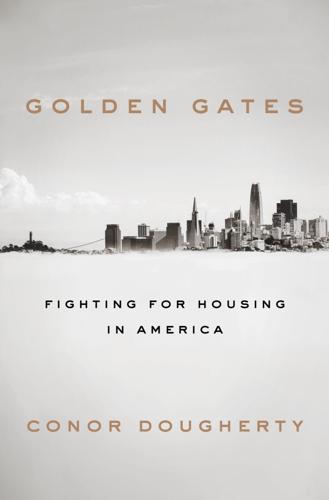
Golden Gates: Fighting for Housing in America
by
Conor Dougherty
Published 18 Feb 2020
In effect, we shattered urban regions into a constellation of smallish cities and reactionary single-family house neighborhoods whose influence over local land use decisions give them an astounding amount of control over how much shelter we build, where, and at what cost. These decisions have huge implications beyond housing. Rising housing costs are a main driver—arguably the main driver—of segregation, income inequality, and racial and generational wealth gaps. You can’t talk about educational inequities or the shrinking middle class without talking about how much it costs to live near good schools and high-paying jobs. Transportation accounts for about a third of the nation’s carbon dioxide emissions, so there’s no serious plan for climate change that doesn’t begin with a conversation about how to alter the urban landscape so that people can live closer to work.
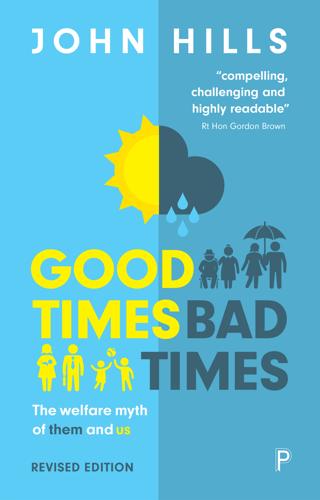
Good Times, Bad Times: The Welfare Myth of Them and Us
by
John Hills
Published 6 Nov 2014
As the stories at the start of the chapter illustrated, there are aspects of public policy that strongly encourage saving and wealth accumulation, while others penalise it. The details of this can be complicated, but some of the features illustrated by the treatment of the Osbornes and the Ackroyds include the following.44 Taxes on capital assets In general, wealth and income from wealth are lightly taxed, say by comparison with income from earnings. The UK does not have an annual tax on wealth holdings in the way some other countries do, and when this was proposed by a Labour government in the mid-1970s, the idea fell foul of a combination of administrative and political objections, some of them mobilised by powerful, and wealthy interests.45 The closest we have is the Council Tax on domestic property.
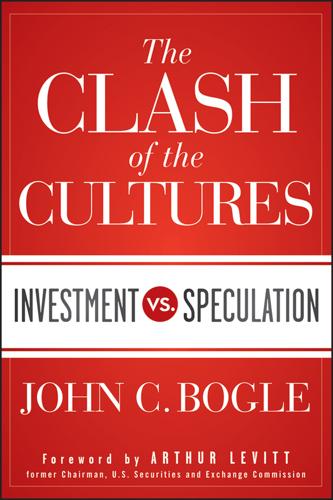
The Clash of the Cultures
by
John C. Bogle
Published 30 Jun 2012
Among investment bankers, Goldman Sachs’s chief executive Lloyd C. Blankfein has worked hard to underline the social benefits of capital formation. While his claim to be doing “God’s work” was a throwaway joke, he has correctly argued that the financial industry “helps companies to raise capital, generate wealth, and create jobs.” Among the critics, hear New York Times columnist Jesse Eisinger: “The financial industry has strayed far from being an intermediary between companies that want to raise capital so they can sell people things they want. Instead, it is a machine to enrich itself, fleecing customers and widening income inequality.
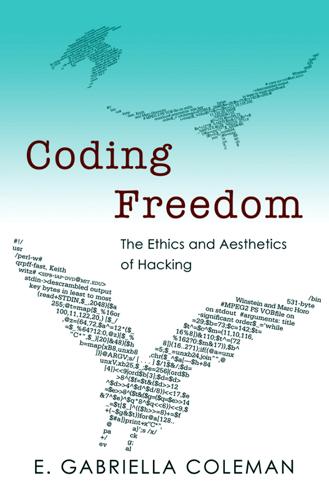
Coding Freedom: The Ethics and Aesthetics of Hacking
by
E. Gabriella Coleman
Published 25 Nov 2012
This constant recirculation of value is one way in which hackers can explicitly downplay their elitism and display their sound technical intentions to their peers. Their implementation of meritocracy contrasts markedly with the ideal of it in capitalist societies, where the privatization of value is legitimate as long as one generates wealth (or gains other forms of status) through one’s personal ability. In fact, numerous issues over who and what are responsible for equalizing the terrain of competition plague liberal democracies marked by a meritocratic ideal. This leveling is often seen as secured through such avenues as public education.
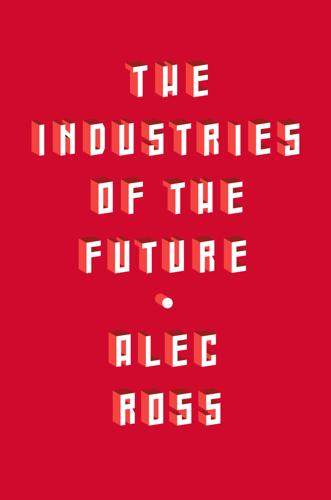
The Industries of the Future
by
Alec Ross
Published 2 Feb 2016
Estonia and China will never be equal competitors by sole virtue of their difference in size, but Estonia can compete at a level far above what its size would suggest by virtue of being cutting-edge in the field of robotics as both producer and consumer. Estonia has demonstrated how innovation in the industries of the future can do more than just generate wealth and employment; it can enhance our civic and political life. In this respect we should stop asking about the next Silicon Valley and start asking about the next Estonia. UKRAINE: THE CLASH BETWEEN OPEN AND CLOSED The choices that Belarus and Estonia made 25 years ago, when both had breadlines and broken economies, are representative of the choices being made about political and economic models around much of the world today.
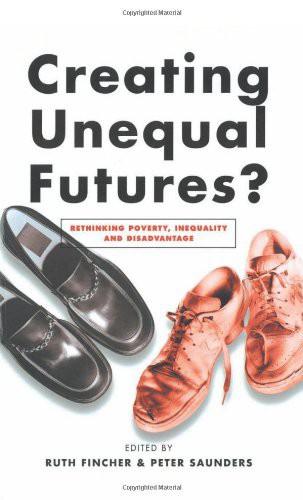
Creating Unequal Futures?: Rethinking Poverty, Inequality and Disadvantage
by
Ruth Fincher
and
Peter Saunders
Published 1 Jul 2001
Unfortunately, the logical outcome of the Five Economists’ proposal is an expansion of the low-wage sector in Australia and this runs directly counter to economic strategies which emphasise the ‘high road’ to the future, the importance of building the ‘clever country’, and a preference for high productivity workplaces. These progressive approaches emphasise investment in training, and in research and development as the basis for economic progress. Whilst these strategies do not directly benefit the unemployed, particularly the long-term unemployed, they do generate wealth for the country and promise a more secure future. In turn, such wealth and security make possible direct labour market interventions which target assistance to the long-term unemployed. Would a larger low-wage sector lead to increased family poverty in Australia? In a recent analysis of low wages and family incomes, 215 PDF OUTPUT c: ALLEN & UNWIN r: DP2\BP4401W\MAIN p: (02) 6232 5991 f: (02) 6232 4995 36 DAGLISH STREET CURTIN ACT 2605 215 CREATING UNEQUAL FUTURES?
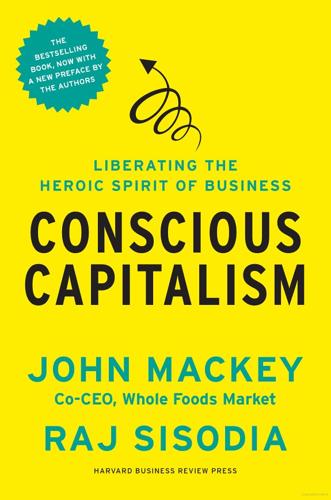
Conscious Capitalism, With a New Preface by the Authors: Liberating the Heroic Spirit of Business
by
John Mackey
,
Rajendra Sisodia
and
Bill George
Published 7 Jan 2014
But the reality is that by artfully combining resources, labor, and innovation, wealth can be greatly expanded. The poor can become wealthier without requiring the well-off to become poorer. The pie grows, and there is more for everyone. This idea is at the core of capitalism’s extraordinary and unique ability to generate wealth. The Unintended Consequences of Low-Consciousness Business When businesspeople operate with a low level of consciousness about the purpose and impact of business, they engage in trade-off thinking that creates many harmful, unintended consequences. Such businesses view their purpose as profit maximization and treat all participants in the system as means to that end.
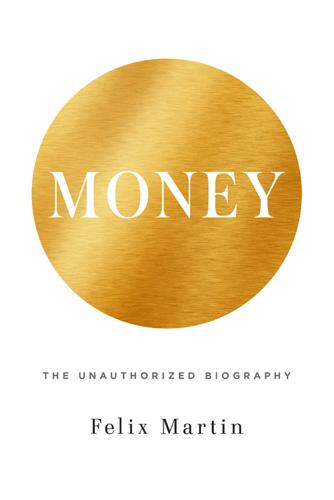
Money: The Unauthorized Biography
by
Felix Martin
Published 5 Jun 2013
Monetary credit that never circulates, but reverts to a bilateral mortgage of the rentier over the entrepreneur, is a recipe for economic stagnation. One might as well return to the static feudal obligations of traditional society. The trouble, Law explained, was that money would not generate healthy conditions by itself. The more people use money to preserve their security, the less that money generates wealth and facilitates mobility. And nothing, Law argued, exacerbates this incipient flaw at the heart of money like the tendency to mistake the representative token for the technology itself. Economic slumps occur, he explained, when “[s]ubjects … hoard up those Signs of Transmission as a real Treasure, being induced to it by some Motive of Fear or Distrust.”8 These psychological urges, nurtured by this conventional misunderstanding of money, “I always call blind,” Law wrote, “because it stops a Circulation that puts a State to a loss, and which is more likely than any Thing else, to bring that Poverty which they fear, both upon others and themselves.”9 Without appropriate intervention, money’s seductive promise is self-defeating.
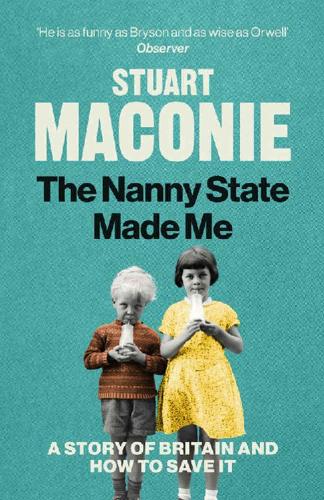
The Nanny State Made Me: A Story of Britain and How to Save It
by
Stuart Maconie
Published 5 Mar 2020
Britain’s private sector is utterly dependent on state largesse to make money. They depend on the state to invest in infrastructure; in research and development; in education to train up their workforce; in law and order to protect their property.’ Modern capitalism, he argued, is based on a myth: ‘that thriving private entrepreneurs generate wealth through their own hard work, innovation and get-up-and-go. In fact, the state subsidises the entire system, nationalising the risks but privatising the profits, while allowing its beneficiaries – our shameless, profitobsessed elite – power without accountability.’ So we have every right to be losing patience with this false narrative, this pervasive lie that’s held sway for forty years.
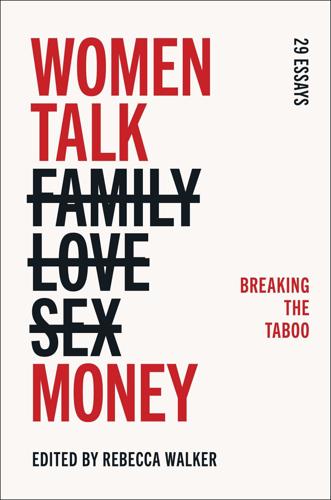
Women Talk Money: Breaking the Taboo
by
Rebecca Walker
Published 15 Mar 2022
We had a little luck when a male relative got extra military pay when he came home a paraplegic or used the VA to buy a Jim Walter house. If you were really blessed, when a relative died with a paid-up insurance policy, you might be gifted a lump sum to buy the land that Jim Walter used as collateral to secure your home lease. That is how generational wealth happens where I am from: lose a leg, a part of your spine, die right, and maybe you can lease-to-own a modular home. We had a little of that kind of rural Black wealth, so we were often in a position to help folks less fortunate. But perhaps the greatest resource we had was a bit more education.
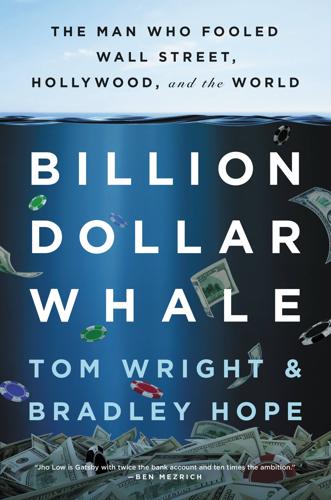
Billion Dollar Whale: The Man Who Fooled Wall Street, Hollywood, and the World
by
Tom Wright
and
Bradley Hope
Published 17 Sep 2018
This bastardized picture of Chinese culture in no way adequately explained the need for such shady transfers. But Low had another card to play—he knew BSI had become dependent on his business and, faced with the prospect of losing it, would go to lengths to keep the money flowing. “I hope I do not need to keep explaining the same matter over and over again as our time is better spent generating wealth so that the AUM [Assets Under Management] in BSI Bank can be increased as opposed to providing answers for questions which have already been provided for previously. I fully understand and respect the requirement of compliance, but one should not be over burdening your customers [especially] when they have been addressed in the past.”
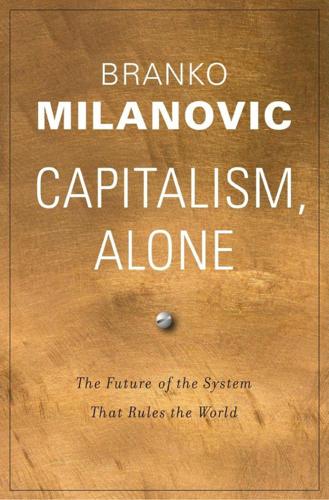
Capitalism, Alone: The Future of the System That Rules the World
by
Branko Milanovic
Published 23 Sep 2019
The remarkable paragraph from Grundrisse in which Marx defines greed as “abstract hedonism” is worth quoting in full: Greed as such, as a particular form of a drive, i.e., as distinct from a craving for a particular form of wealth, e.g. for clothes, weapons, jewels, women, wine is possible only when general wealth … has become individualized in a particular thing … money. Money is therefore not only the object but the fountainhead of greed. The mania for possession is possible without money; but greed itself is a product of a particular social development, not natural, as opposed to historical.… Hedonism in its general form and miserliness are the two particular forms of monetary greed.
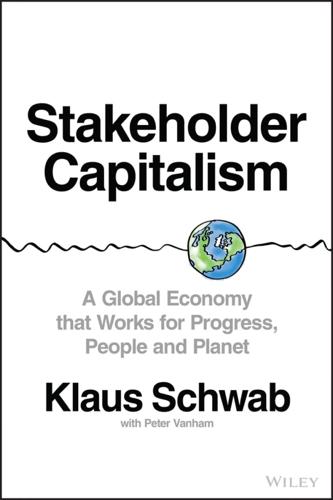
Stakeholder Capitalism: A Global Economy That Works for Progress, People and Planet
by
Klaus Schwab
Published 7 Jan 2021
A company provides its shareholders with a return on investment that takes into account the incurred entrepreneurial risks and the need for continuous innovation and sustained investments. It responsibly manages near-term, medium-term and long-term value creation in pursuit of sustainable shareholder returns that do not sacrifice the future for the present. A company is more than an economic unit generating wealth. It fulfils human and societal aspirations as part of the broader social system. Performance must be measured not only on the return to shareholders, but also on how it achieves its environmental, social and good governance objectives. Executive remuneration should reflect stakeholder responsibility.
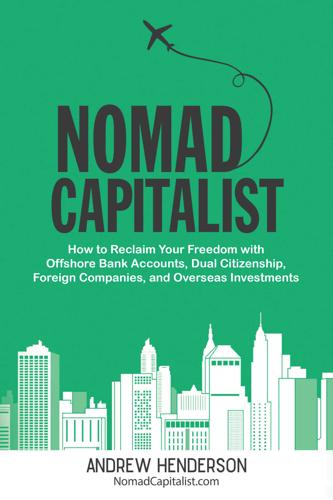
Nomad Capitalist: How to Reclaim Your Freedom With Offshore Bank Accounts, Dual Citizenship, Foreign Companies, and Overseas Investments
by
Andrew Henderson
Published 8 Apr 2018
I do not have children yet, but if you do, you have no doubt thought about what kind of life you will leave your children. Using the strategies in this book, you can grant them such benefits as dual citizenship or a larger nest egg with which they can start their own careers. Today’s tax savings are tomorrow’s real estate empire or generational wealth. Money saved today will have a snowball effect over time. So too will being geographically diversified when the countries where you have invested hit their stride. Warren Buffett became famous as one of the most savvy and prolific investors of our time. When you think about what he has done, it really is not that much.
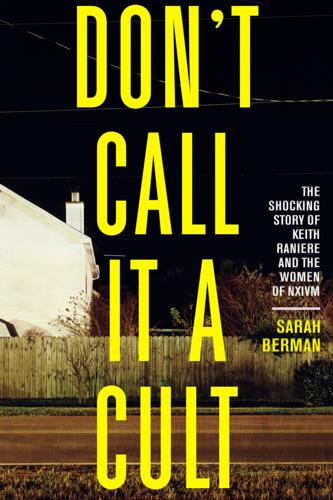
Don't Call It a Cult: The Shocking Story of Keith Raniere and the Women of NXIVM
by
Sarah Berman
Published 19 Apr 2021
Sara’s friends and family knew she needed help figuring out what to do with her life. It was Susan White, a close friend of Sara’s mother, who suggested she attend her first NXIVM session. White had attended an intensive in October 2002, not realizing that the company was specifically seeking out generational wealth. “I took the course purely because I wanted to see if it would be good for my kids,” she says. Her stepson also signed up. “I thought it was very well put together, and I thought the kids could really benefit from it.” Barbara Bouchey says White was like a surrogate mother to Clare and Sara—someone they loved and admired.
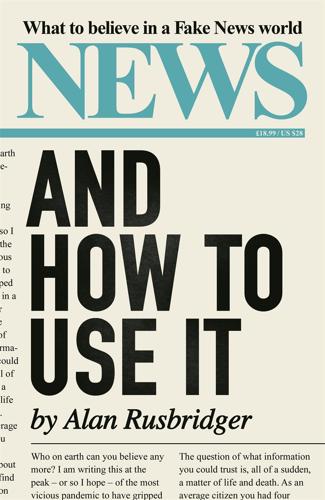
News and How to Use It: What to Believe in a Fake News World
by
Alan Rusbridger
Published 26 Nov 2020
Those five filters are: 1) Size, ownership and profit orientation The media sources that reach the largest audiences are big, for-profit businesses. Their owners are individuals or corporations who could fork over the cash to start a news outlet or buy one, and they require the capital of investors who expect them to continue generating wealth. This matters because media managers must prioritise profitability, and are constrained by the interests of owners, corporations and controlling investors with a stake in the firm. If news endangers their power or interests, it could be filtered out. 2) The advertising licence to do business News media have long depended on advertising, not sales or subscriptions, to turn a profit.
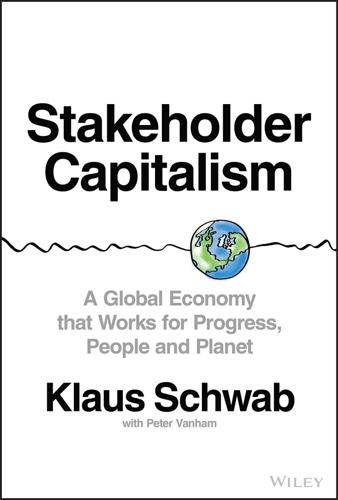
Stakeholder Capitalism: A Global Economy That Works for Progress, People and Planet
by
Klaus Schwab
and
Peter Vanham
Published 27 Jan 2021
A company provides its shareholders with a return on investment that takes into account the incurred entrepreneurial risks and the need for continuous innovation and sustained investments. It responsibly manages near-term, medium-term and long-term value creation in pursuit of sustainable shareholder returns that do not sacrifice the future for the present. A company is more than an economic unit generating wealth. It fulfils human and societal aspirations as part of the broader social system. Performance must be measured not only on the return to shareholders, but also on how it achieves its environmental, social and good governance objectives. Executive remuneration should reflect stakeholder responsibility.
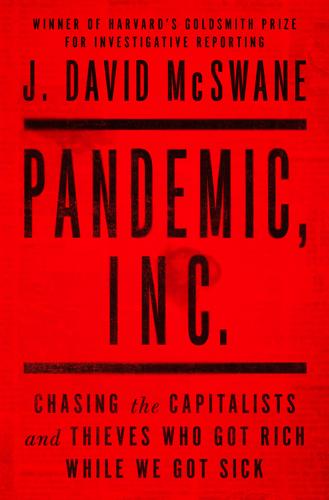
Pandemic, Inc.: Chasing the Capitalists and Thieves Who Got Rich While We Got Sick
by
J. David McSwane
Published 11 Apr 2022
The deal had been awarded without the usual competitive bidding, under emergency guidelines that lifted red tape meant to weed out fraud, patronage, and waste. The federal government was desperate, Americans were terrified, and Stewart offered a solution with just a few emails. If he delivered, more federal contracts were sure to come, and he and his company might see generational wealth and a steady stream of business. I expressed amazement, and some natural skepticism, and asked to tag along on the flight. Eager to prove himself, he agreed. His was one of the biggest contracts the federal government had awarded in early 2020, when the Trump administration finally opened the financial spigot to address a politically inconvenient pandemic.
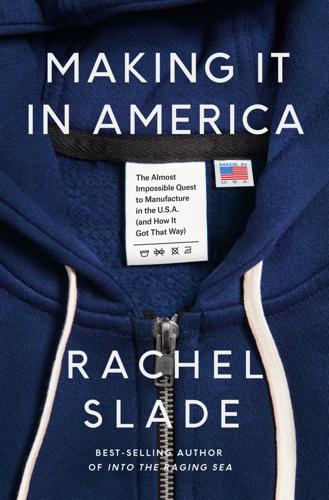
Making It in America: The Almost Impossible Quest to Manufacture in the U.S.A. (And How It Got That Way)
by
Rachel Slade
Published 9 Jan 2024
“You put a crease in polyester pants and come back in a thousand years and it’ll still be there,” he said. “God didn’t do that.” He believed in natural fibers because they’re environmentally friendly and can be re-extruded. He said that it was patriotic to be in manufacturing: “I make stuff and I sell it, so I generate wealth.” He added, “I’m not buying fabric made in China and just marking it up—I bought it for a buck, I sell to you for two—great goddamn deal. No, I’m the guy that went out and found the yarn at a good price and slammed it through some stupid-ass knitting machines.” But the complexity of making things and moving things in the U.S. was a constant headache, even for a veteran like Ned.
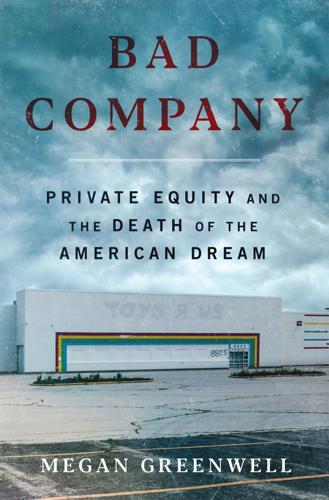
Bad Company
by
Megan Greenwell
Published 18 Apr 2025
One researcher found that investors’ home-buying activity in the region single-handedly caused homeownership rates among Black residents to drop by 4.2 percent. Homeownership has long been considered the cornerstone of the American Dream, the most achievable path for middle-class people to build generational wealth. But in Atlanta and other cities across the country, institutional investors have slammed the door of opportunity shut on scores of aspiring homeowners. In manufactured homes (colloquially known as mobile homes), meanwhile, private equity’s influence is even bigger—and the residents even more vulnerable to abuse.
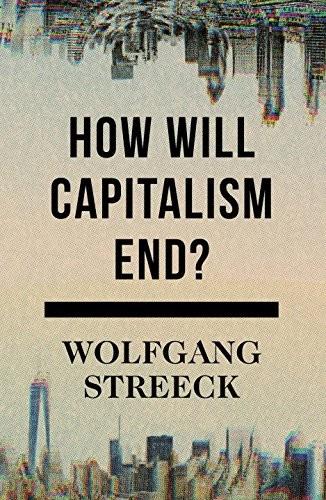
How Will Capitalism End?
by
Wolfgang Streeck
Published 8 Nov 2016
, p. 126. 12Mair, Representative versus Responsible Government. 13See ‘Jürgen Habermas im Gespräch: Europa wird direkt ins Herz getroffen’, Frankfurter Allgemeine Zeitung, 29 May 2014. One interesting irony is that Juncker ascended to the presidency shortly after the publication of Thomas Piketty’s now famous book in which he demands a general wealth tax to correct the long-term and inherent increase in inequality under capitalism (Piketty, Capital in the Twenty-First Century). On the farce of last year’s ‘European election’ see Susan Watkins, ‘The Political State of the Union’. 14Merkel, ‘Is Capitalism Compatible with Democracy?’, p. 126. 15Mair, Ruling the Void. 16The project to give the European Union a constitution began in 2001 with a resolution to this effect by the then member states of the EU.
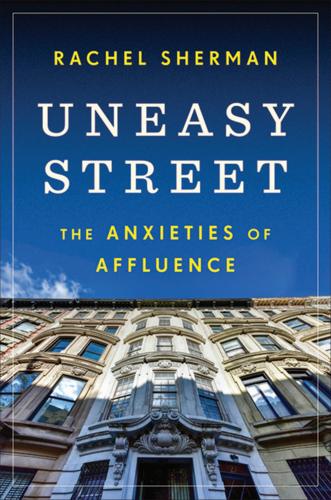
Uneasy Street: The Anxieties of Affluence
by
Rachel Sherman
Published 21 Aug 2017
For example, Marie said, speaking of herself and her husband, We had this conversation with our older daughter, who seems to think we’re millionaires—billionaires. And so [her husband] said, you know, “The reality of it is, we could probably give you everything you want. We’re not going to.” … So we can give you everything you want now. But when you become an adult, we can’t afford for you to be a screw-up. We don’t have the kind of generational wealth that can support that. So at some point, you’ve got to stand on your own and figure it out. So why you don’t get everything is because we can’t support that, later down the road. You’ve got to be able to figure out strategies and ways to deal with it. (Notably, Marie changes the word “millionaires” to “billionaires,” perhaps because she realizes that she and her husband are millionaires.)
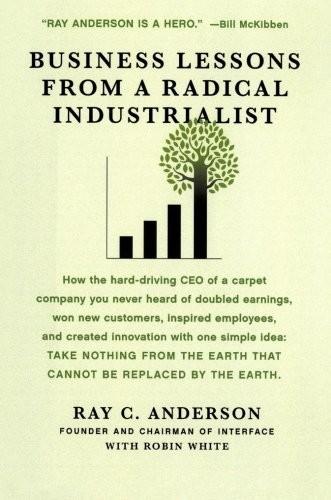
Business Lessons From a Radical Industrialist
by
Ray C. Anderson
Published 28 Mar 2011
Thinking there was had put us on a collision course with two of nature’s iron laws of thermodynamics that we have been slow to realize: Nothing goes away or ceases to exist, it just disperses; and everything is connected—that what we do to the earth, we also do to ourselves. Well, to be honest, if that had been the book’s only message, I might have stopped reading right there. I do know a few things about business and industry. Bad as we might seem to some, industry hooked up to a free market is the most efficient engine for generating wealth that the world has ever seen. If you don’t believe it, just look at all the failed alternatives. Perhaps some might look at the global financial consternation set in motion by Bear Stearns’s demise, and say the jury is still out, but not me. It is an article of faith, bred into every industrialist’s DNA, that as technology improves we’ll get better and more efficient at supplying whatever the market demands.
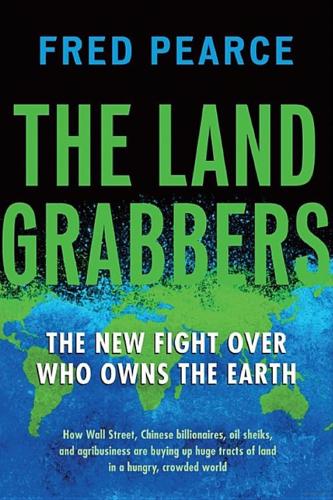
The Land Grabbers: The New Fight Over Who Owns the Earth
by
Fred Pearce
Published 28 May 2012
It claims that it has subsequently planted about half of the logged land with acacia, giving it “the biggest plantation operation in the world.” Local environmentalists question this claim. In any event, like its rival, it remains a major deforester. From the number of mud-spattered Land Cruisers traveling the logging roads of Riau, it is clear that the destruction is generating wealth. But in this “wild east,” there are more losers than winners. And the companies’ attitudes to people whose lands they have grabbed is troubling. “We turn former illegal loggers into committed stakeholders,” says APRIL’s company video. But such language is deliberately derogatory and shows ignorance of the people they are talking about.
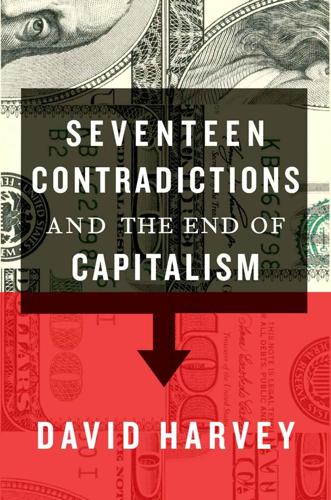
Seventeen Contradictions and the End of Capitalism
by
David Harvey
Published 3 Apr 2014
The diversity of meanings is useful. The worker legally alienates the use of his or her labour power for a stated period of time to the capitalist in return for a wage. During this time the capitalist demands the loyalty and attention of the worker and the worker is asked to trust that capitalism is the best system to generate wealth and well-being for all. Yet the worker is estranged from his or her product as well as from other workers, from nature and all other aspects of social life during the time of the labour contract and usually beyond (given the exhausting nature of the work). The deprivation and dispossession are experienced and internalised as a sense of loss and sorrow at the frustration of the worker’s own creative instincts.
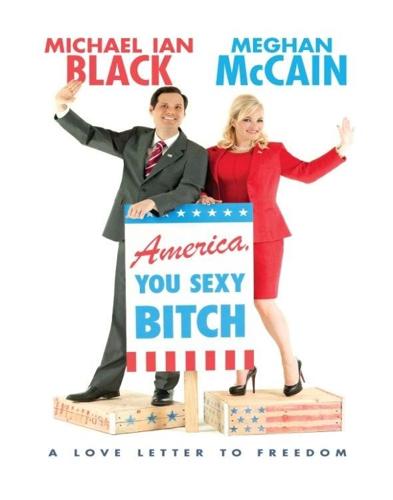
America, You Sexy Bitch: A Love Letter to Freedom
by
Meghan McCain
and
Michael Black
Published 31 May 2012
But unlike other tools, capitalism has no single master, no single person in charge of its use. The master is “the corporation,” which despite the Supreme Court telling us otherwise is not a person. The corporation cannot be a person because it lacks the one thing that defines humanity: a conscience. The corporation’s purpose is to generate wealth, and it will do whatever it has to do to fulfill its purpose. By itself, I don’t think this is a bad thing. I love wealth. Money is one of my favorite things. I like having it, smelling it, throwing it up in the air in slow motion while lying on a hotel bed. But there are rules that govern the ways in which I make my money.
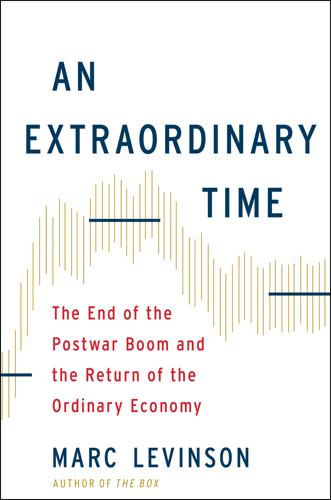
An Extraordinary Time: The End of the Postwar Boom and the Return of the Ordinary Economy
by
Marc Levinson
Published 31 Jul 2016
Progressive taxation, they claimed, was designed to redistribute income from some people to others rather than to make the economy grow. “All this shifting of wealth is a zero sum game,” Gilder asserted. Levying the highest taxes on the most dynamic people in a society, those whose creativity and entrepreneurial drive generated wealth, would kill the golden goose. The supply-siders claimed that this was precisely what had occurred in the 1970s, as wealthy people put their money into tax shelters and gold rather than risking it in productive investments that, if successful, would allegedly have been taxed at painfully high rates.
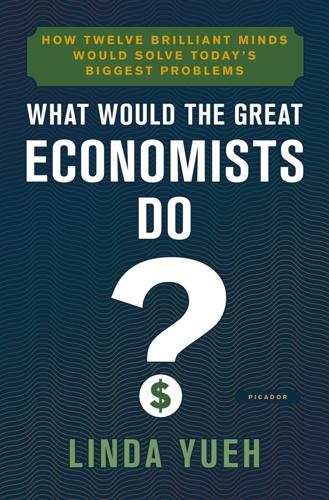
What Would the Great Economists Do?: How Twelve Brilliant Minds Would Solve Today's Biggest Problems
by
Linda Yueh
Published 4 Jun 2018
Now is an ideal time to assess where the world economy is headed. Having come through the global financial crisis of 2008 and the Great Recession that followed it, the US, Britain, the European Union, Japan, China, and others are experiencing significant challenges to growing their economies and generating wealth. America, for long the leading economic engine of the world, faces the prospect of slowing growth as slow wage growth weighs on its future. In Britain, weak productivity growth and the historic referendum of June 2016 that resulted in a vote to leave the European Union will affect the country’s economy for years to come.
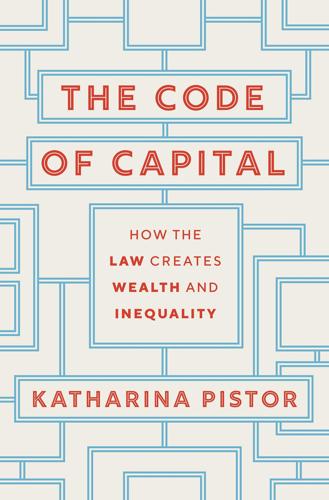
The Code of Capital: How the Law Creates Wealth and Inequality
by
Katharina Pistor
Published 27 May 2019
They bestow important attributes on assets and thereby privilege its holder: Priority, which ranks competing claims to the same assets; durability, which extends priority claims in time; universality, which extends them in space; and convertibility, which operates as an insurance device that allows holders to convert their private credit claims into state money on demand and thereby protect their nominal value, for only legal tender can be a true store of value, as will be further explained in chapter 4.8 Once an asset has been legally coded, it is fit for generating wealth for its holder. The legal coding of capital is an ingenious process without which the world would have never attained the level of wealth that exists today; yet the process itself has been largely hidden from view. Through this book I hope to shed light on how law helps create both wealth and inequality.
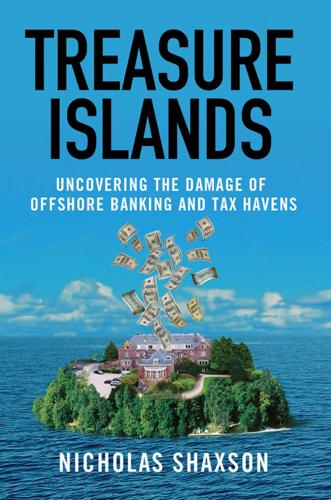
Treasure Islands: Uncovering the Damage of Offshore Banking and Tax Havens
by
Nicholas Shaxson
Published 11 Apr 2011
Mitchell also points to lists of secrecy jurisdictions, claiming they tend to be wealthier than other jurisdictions, and takes this as evidence that offshore is a good thing. This is like an argument that points to the private jets, yachts, and palaces owned by a rich dictator and his cronies as evidence that corruption generates wealth. Well, it does, in a way, but “generating” this kind of wealth is not exactly what we should aim for. Yet there is one area where Mitchell is probably right. Tax rates have been tumbling for years around the world: Average corporate tax rates, for example, fell from nearly 50 percent in 1980, Mitchell says, down to just over 25 percent today.
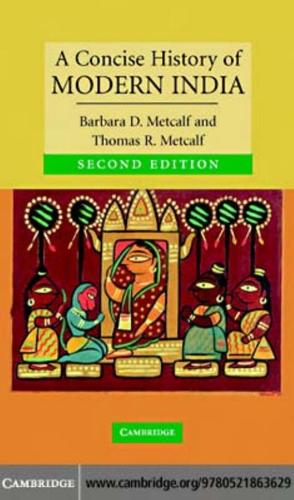
A Concise History of Modern India (Cambridge Concise Histories)
by
Barbara D. Metcalf
and
Thomas R. Metcalf
Published 27 Sep 2006
Overall, although the period of straightforward plunder of the country’s riches had come to an end, the East India Company during the early decades of the nineteenth century did little to set India on a path of economic growth. To be sure, many of the obstacles were structural. Unlike contemporary Britain or the United States, where canal networks were built to provide easy access to the interior, India could rely only on its rivers, and primarily on the Ganges, for the transport of bulk commodities. While this generated wealth for river towns such as Mirzapur, it left the rest of the country outside the orbit of the export economy. The lack of infrastructure, of banks as well as roads, deterred direct overseas investment, with the result that the only available British capital was that provided by the accumulation of private wealth within India.
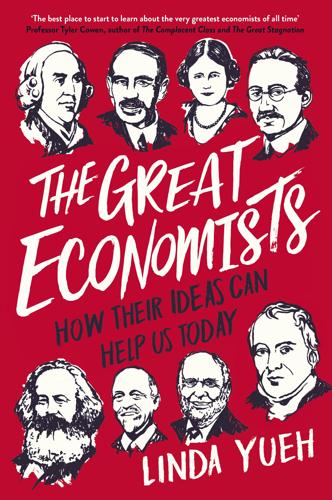
The Great Economists: How Their Ideas Can Help Us Today
by
Linda Yueh
Published 15 Mar 2018
Now is an ideal time to assess where the world economy is headed. Having come through the global financial crisis of 2008 and the Great Recession that followed it, the US, Britain, the European Union, Japan, China, and others are experiencing significant challenges to growing their economies and generating wealth. America, for long the leading economic engine of the world, faces the prospect of slowing growth as slow wage growth weighs on its future. In Britain, weak productivity growth and the historic referendum of June 2016 that resulted in a vote to leave the European Union will affect the country’s economy for years to come.
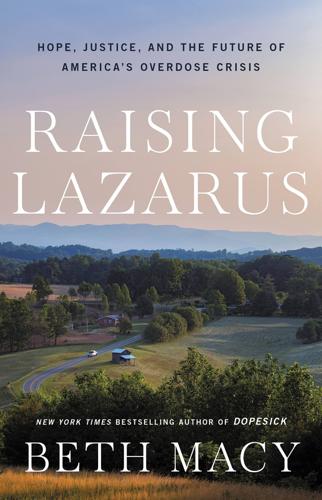
Raising Lazarus: Hope, Justice, and the Future of America’s Overdose Crisis
by
Beth Macy
Published 15 Aug 2022
It is possible to draw a direct line from the present-day vomit buckets in the Surry County Jail to the Harrison Narcotics Tax Act of 1914, which outlawed the use of unprescribed opioids and coca products at a time when experts estimated that thousands of Americans were regularly using them. Our nation’s tendency to treat substance use as a crime rather than a medical condition is more than a century old, and that history is steeped in racism as a tool for generating wealth. Chinese laborers who smoked opium had long attracted the ire of anti-immigrant crusaders who believed that Asians were corrupting young Whites inside their amoral opium dens. A century before the Chinese landed to build the nation’s railroads, Native Americans were encouraged by American settlers to drink liquor to pacify themselves while the colonists robbed them of their lands.
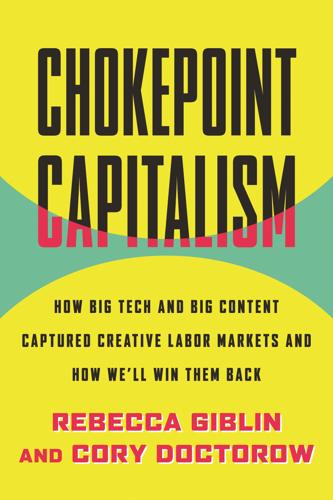
Chokepoint Capitalism
by
Rebecca Giblin
and
Cory Doctorow
Published 26 Sep 2022
Right now, as we’ve seen, the richest people use their money and influence to make public policy (like the tax code, labor laws, and antitrust) serve their own economic interests. Those distortions hurt workers and the environment, giving the uberwealthy free rein to shovel an ever greater proportion of collectively generated wealth into their own accounts. But we don’t actually need to tax the rich in order to pay for programs. As Stephanie Kelten explains in The Deficit Myth, that’s not how money works.30 Money is spent into existence by “monetarily sovereign” national governments and then taxed back out of existence.31 Governments can’t default on debts in their own currency—they can’t run out of money.
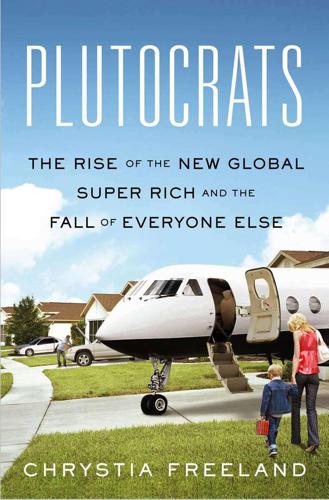
Plutocrats: The Rise of the New Global Super-Rich and the Fall of Everyone Else
by
Chrystia Freeland
Published 11 Oct 2012
Scott Fitzgerald put it, different from you and me. What is more relevant to our times, though, is that the rich of today are also different from the rich of yesterday. Our light-speed, globally connected economy has led to the rise of a new super-elite that consists, to a notable degree, of first- and second-generation wealth. Its members are hardworking, highly educated, jet-setting meritocrats who feel they are the deserving winners of a tough, worldwide economic competition—and, as a result, have an ambivalent attitude toward those of us who haven’t succeeded quite so spectacularly. They tend to believe in the institutions that permit social mobility, but are less enthusiastic about the economic redistribution—i.e., taxes—it takes to pay for those institutions.
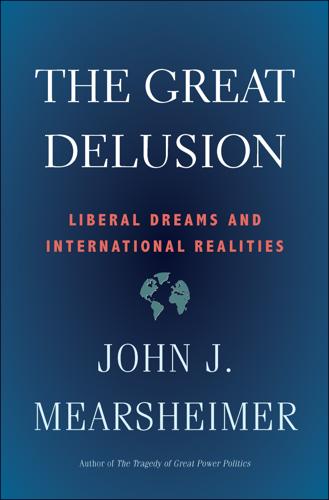
The Great Delusion: Liberal Dreams and International Realities
by
John J. Mearsheimer
Published 24 Sep 2018
Economic considerations, in other words, trump strategic concerns. The theory’s emphasis on prosperity is based largely on the belief that publics demand that their leaders promote and protect their economic welfare, and if those leaders fail to deliver, they will be thrown out of office. There might even be significant unrest. This imperative to generate wealth means no rational leader is likely to start a war. There are also apt to be interest groups opposed to war because it might undermine their ability to make money.42 Some scholars argue, for example, that bankers are invariably a powerful force for peace, because leaders who want to stay in power are unlikely to risk crossing them.
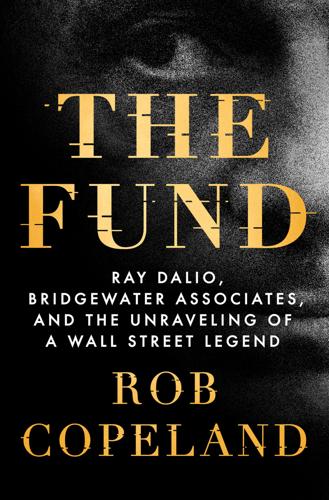
The Fund: Ray Dalio, Bridgewater Associates, and the Unraveling of a Wall Street Legend
by
Rob Copeland
Published 7 Nov 2023
By the time Dalio married into the family exactly one hundred years later, much of the fortune had been squandered on parties, sports cars, mansions, and horses. Dalio entered a family that was playing defense, trying to maintain what remained of one of America’s great intergenerational bounties. Barbara let Dalio take charge of her part of what was left. Dalio soon realized that families with generational wealth had different priorities. Traders on the stock exchange floor were always talking up their next bang-up idea, which inevitably boiled down to getting in front of a big market move that only they could see. Once wealthy, however, people were less consumed by the hunt for the next score. They were more focused on staying rich than getting richer, and their strategy focused on steady, long-term growth and the minimization of the risk of big losses.
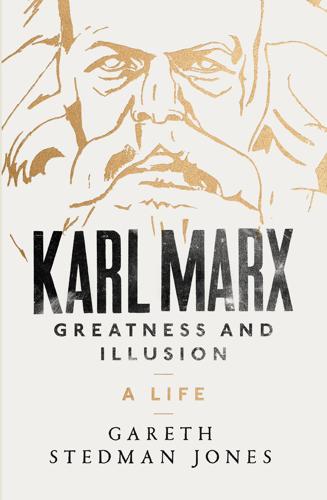
Karl Marx: Greatness and Illusion
by
Gareth Stedman Jones
Published 24 Aug 2016
The worker now stood ‘beside the production process rather than being its main agent’.68 This new foundation of production created by large-scale industry suggested a possible escape from the current ‘miserable foundation’ provided by ‘the theft of alien labour time, which is the basis of present wealth’. Once labour in its immediate form ceased to be ‘the great source of wealth’, this would mean that the ‘surplus labour of the masses’ would cease to be ‘the condition for the development of general wealth, just as the non-labour of a few’ would cease to be ‘the condition for the development of the general powers of the human mind’. Then production based upon exchange value would collapse, and the immediate material production process itself would be ‘stripped of its form of indigence and antagonism’.69 In these conditions, man would achieve ‘comprehension of his own history as a process and knowledge of nature (likewise available as practical control of nature) as his real body’.70 Work would become pleasurable once it was no longer ‘externally imposed, forced labour’.71 It was in this context that Karl reflected upon his own neo-classical humanism and his love of Shakespeare: ‘as regards art’, how could it be that there were ‘certain periods of its florescence’ which by no means ‘corresponded to the general development of society, or therefore to the material base, the skeleton as it were, of its organisation?’
…
In the Grundrisse, the boundary between freedom and necessity set by the division of labour was seen as receding as human invention and productivity advanced. Productive advance made possible by the coming of steam power and machinery meant that the surplus labour of the masses would cease to be the condition of general wealth and the non-labour of the few. In the future, ‘the theft of alien time’, the basis of present wealth, would come to an end, and work would be free of externally imposed, forced labour. In the preface, Karl stated that ‘bourgeois relations of production’ were ‘the last antagonistic form of the social process of production’.

The Coke Machine: The Dirty Truth Behind the World's Favorite Soft Drink
by
Michael Blanding
Published 14 Jun 2010
With the law on their side, the workers successfully sued for reinstatement—but Trotter and local executives continued to break up the union, subdividing the bottler into other companies to make it more difficult for workers to organize. The Coke workers reached out to the Catholic Church for help, and were answered by a Philadelphia based order of nuns called the Sisters of Providence, who owned two hun dred shares of Coca-Cola stock—as a way to generate wealth for their order and to influence policy abroad. Horrified to hear of the situation, its leader, Sister Dorothy Garland, contacted the Coca-Cola Company to demand changes. Coke’s president, Luke Smith, admitted tension, but said the franchise agreement tied the company’s hands. “There is no provision in the bottlers’ agreement . . . which give us any right to intervene on such a dispute,” he explained.
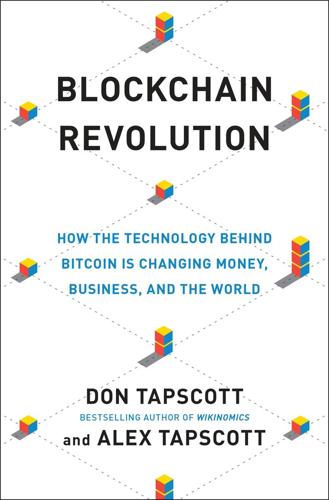
Blockchain Revolution: How the Technology Behind Bitcoin Is Changing Money, Business, and the World
by
Don Tapscott
and
Alex Tapscott
Published 9 May 2016
Managers still view them as a better model for organizing talent and intangible assets such as brands, intellectual property, knowledge, and culture, as well as for motivating people. Corporate boards still compensate executives and CEOs far beyond any reasonable measure of the value they create. Not incidentally, the industrial complex continues to generate wealth, but not prosperity. In fact, as we have pointed out, there is strong evidence of a growing concentration of power and wealth in conglomerates and even monopolies. Another Nobel laureate, Oliver Williamson, predicted as much,6 and pointed out the negative effects on productivity: “Suffice it to observe here that the move from autonomous supply (by the collection of small firms) to unified ownership (in one large firm) is unavoidably attended by changes in both incentive intensity (incentives are weaker in the integrated firm) and administrative controls (controls are more extensive).”7 Peter Thiel, cofounder of PayPal, wrote in praise of monopolies in his enormously readable and equally controversial book, Zero to One.
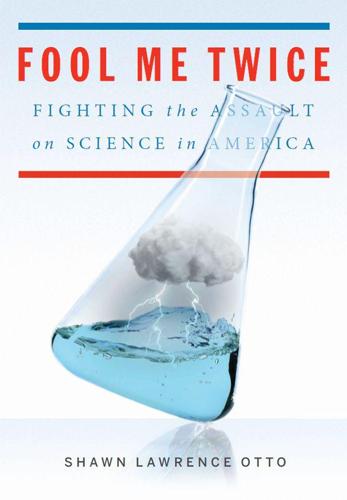
Fool Me Twice: Fighting the Assault on Science in America
by
Shawn Lawrence Otto
Published 10 Oct 2011
Our science now influences every aspect of life, and it has freed us from a life that was, according to Thomas Hobbes, “a war … of every man against every man … solitary, poor, nasty, brutish and short.”4 In such remnants of thinking from the Middle Ages, economics was a zero-sum game: “Without a common power to keep them all in awe,” men in Hobbes’s time fell into war. There was finite wealth and opportunity, and to get ahead one had to take some away from another. In its capacity to create knowledge, science had the tools to break that zero-sum economic model and generate wealth, health, freedom, nobility, and power beyond Hobbes’s wildest dreams. It has given us tremendous insights into our place in the cosmos, into the inner workings of our own bodies, and into our capacity as human beings to exercise our highest aspirations of love, hope, creativity, discovery, compassion, courage, wonder, and charity.
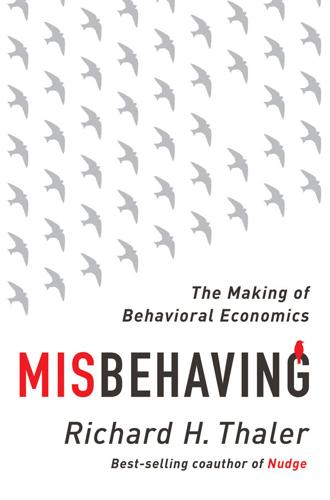
Misbehaving: The Making of Behavioral Economics
by
Richard H. Thaler
Published 10 May 2015
.¶ Modigliani’s life-cycle hypothesis, in which people decide how much of their lifetime wealth to consume each period, does not just assume that people are smart enough to make all the necessary calculations (with rational expectations) about how much they will make, how long they will live, and so forth, but also that they have enough self-control to implement the resulting optimal plan. There is an additional unstated assumption: namely, that wealth is fungible. In the model, it does not matter whether the wealth is held in cash, home equity, a retirement plan, or an heirloom painting passed on from a prior generation. Wealth is wealth. We know from the previous chapters on mental accounting that this assumption is no more innocuous or accurate than the assumptions about cognitive abilities and willpower. To relax the assumption that wealth is fungible and incorporate mental accounting into a theory of consumption and savings behavior, Hersh Shefrin and I proposed what we called the behavioral life-cycle hypothesis.
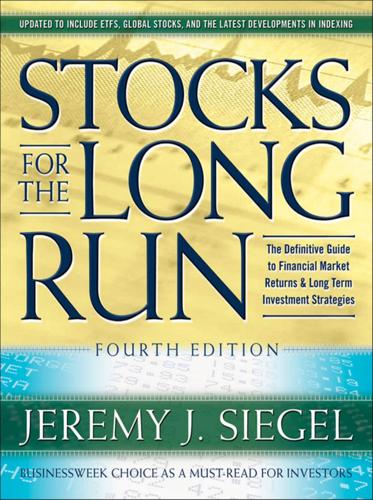
Stocks for the Long Run, 4th Edition: The Definitive Guide to Financial Market Returns & Long Term Investment Strategies
by
Jeremy J. Siegel
Published 18 Dec 2007
The world shifted from a gold-based standard to a paper money standard. And information, which once took weeks to cross the country, can now be instanta- 14 PART 1 The Verdict of History neously transmitted and simultaneously broadcast around the world. Yet despite mammoth changes in the basic factors generating wealth for shareholders, equity returns have shown an astounding stability. Short-Term Returns and Volatility The bull market from 1982 through 1999 gave investors an extraordinary after-inflation return of 13.6 percent per year, which is double the historical average. This constituted the greatest bull market in U.S. stock market history.
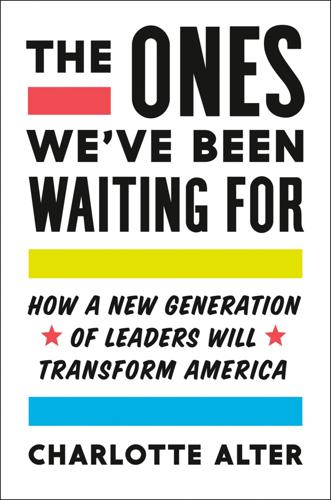
The Ones We've Been Waiting For: How a New Generation of Leaders Will Transform America
by
Charlotte Alter
Published 18 Feb 2020
he said on Morning Joe in February 2019. “We don’t care whether it reads to some conservatives as more socialist or not—we care about whether it works.” The New Deal exacerbated the racial wealth gap by enshrining redlining as federal policy, which barred people of color from accessing the homes (and opportunities to build generational wealth) that were newly available to white families. But the government programs and the subsequent government-funded mobilization for World War II created a stable middle class of white parents who raised boomers in an era of relative income equality and unprecedented prosperity. FDR’s allegedly “socialist” tax policies sustained American growth for a generation.
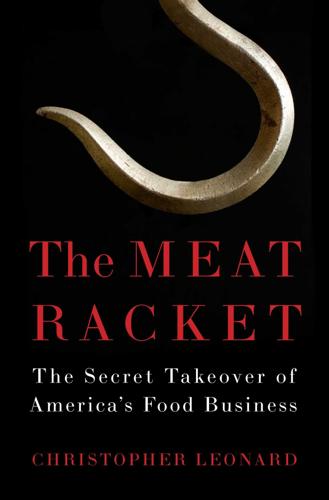
The Meat Racket: The Secret Takeover of America's Food Business
by
Christopher Leonard
Published 18 Feb 2014
He often wore beat-up collared shirts and worn work pants with mud along their hems. Because of the way he made his living, Wirtz constantly exuded the slight whiff of hog manure. But together, he and his brothers built a family farm worth millions. Such was the economy in Iowa during the 1960s and 1970s that hard work on a farm could still generate wealth for an extended family. The wealth supported an archipelago of clean, prosperous towns throughout the state, with busy town squares, bustling department stores, and a thriving middle class. Indeed, it is helpful to think of Iowa not so much as a state but as one enormous farm. A visitor can travel day upon day over the two-lane highways of Iowa and pass nothing but cropland, a broad expanse of corn and soybeans, wide as the horizon, whipping by uninterrupted.
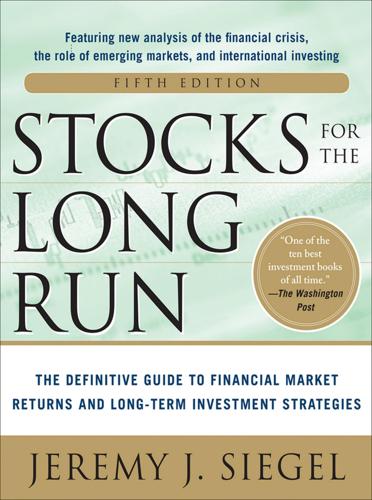
Stocks for the Long Run 5/E: the Definitive Guide to Financial Market Returns & Long-Term Investment Strategies
by
Jeremy Siegel
Published 7 Jan 2014
The United States evolved from an agricultural to an industrial economy and then to the postindustrial, service- and technology-oriented economy it is today. The world shifted from a gold-based standard to a paper money standard. And information, which once took weeks to cross the country, can now be instantaneously transmitted and simultaneously broadcast around the world. Yet despite mammoth changes in the basic factors generating wealth for shareholders, equity returns have shown an astounding stability. But stability in the long-run returns on stocks in no way guarantees stability in the short run. From 1982 through 1999 during the greatest bull market in U.S. history, stocks offered an extraordinary after-inflation return of 13.6 percent per year, more than double the historical average.

Whole Earth: The Many Lives of Stewart Brand
by
John Markoff
Published 22 Mar 2022
The web browser had burst on the scene at the end of 1993, and during 1994 and 1995 it was becoming clear that the commercial internet was going to reset the technology world and eventually disrupt entire industries. In August, Brand’s dilemma was abruptly solved when Wired ran a caustic profile of Allen, poking fun at the billionaire, describing his Microsoft-generated wealth as accidental and referring to Interval as a “rich-guy toy.”[1] Allen didn’t say anything, but a furious Liddle killed the Wired partnership, including Brand’s profile. That was fine with Brand. He felt as if he had been let off the hook for an article he wasn’t sure how to write. Ending his role at Interval allowed him to simultaneously step back from the internet boom that was consuming Silicon Valley.
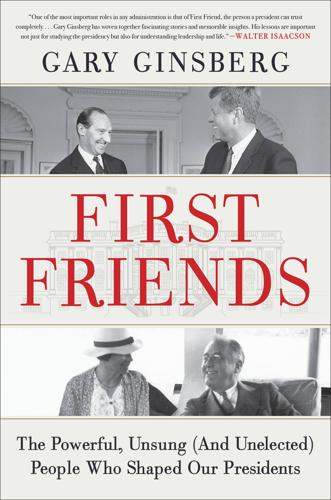
First Friends: The Powerful, Unsung (And Unelected) People Who Shaped Our Presidents
by
Gary Ginsberg
Published 14 Sep 2021
As she described the two friends: “It wasn’t that Nixon didn’t like people—he did, very much—but he also found constantly being around a lot of people somewhat draining, and he needed time to recharge, emotionally and physically. Bebe was an extrovert; he loved people, was always gregarious, hilarious, a shoot-from-the-hip wisecracker. Nixon loved all that in him and that’s why he enjoyed being around him so much.” One aspect to Rebozo that became especially attractive to Nixon during this time was his skill at generating wealth, especially for a man who lived on a public salary for much of his adult life. Rebozo, a gifted moneymaker, began to offer Nixon opportunities to make investments in his real estate projects. Nixon proved smart entrusting his investments to Rebozo: In 1967, Nixon took out loans from two Miami banks to purchase 199,891 shares of stock in a company Rebozo had created to develop Fisher Island in Miami Beach, today one of the wealthiest enclaves in America.
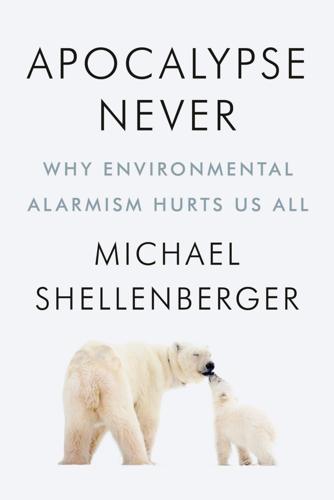
Apocalypse Never: Why Environmental Alarmism Hurts Us All
by
Michael Shellenberger
Published 28 Jun 2020
Mayhew, Malthus: The Life and Legacies of an Untimely Prophet (Cambridge, MA: Harvard University, 2014), 45. 43. Godwin, An Enquiry Concerning Political Justice, 452. 44. Malthus, An Essay on the Principle of Population, 66. 45. Thomas Robert Malthus, Observations on the Effects of the Corn Laws: And of a Rise or Fall in the Price of Corn on the Agriculture and General Wealth of the Country (London: John Murray, 1915), 30. 46. Mayhew, Malthus: The Life and Legacies of an Untimely Prophet, 17. 47. Ibid., 17, 18. 48. Christine Kinealy, The Great Irish Famine: Impact, Ideology, and Rebellion (London: Palgrave, 2002), 105–111. In 1846, Ireland exported three million quarts of grain and corn flour to Britain, and 730,000 cattle and livestock. 49.
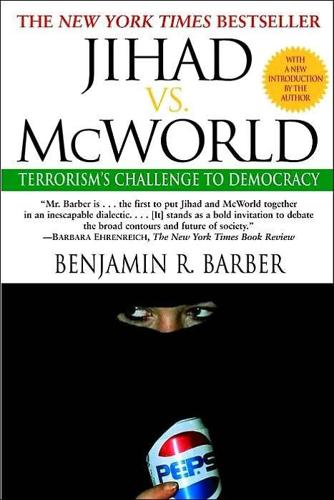
Jihad vs. McWorld: Terrorism's Challenge to Democracy
by
Benjamin Barber
Published 20 Apr 2010
McWorld’s modernization has created a healthier, wealthier world in which at least the conditions for greater equality are present. I am neither a nostalgic dreamer after earlier Golden Ages nor a Luddite antagonist of technology and its improvements. Capitalism and the science from which it arises constitute a system of power and control that generates wealth and progress with unprecedented efficiency. It is not capitalism but unrestrained capitalism counterbalanced by no other system of values that endangers democracy. My criticism of McWorld is aimed at what may be called economic totalism. If the political totalism of the fascist and communist world once tried, at horrendous human costs, to subordinate all economic, social, and cultural activity to the demands of an overarching state, the economic totalism of unleashed market economics seems now to be trying (at costs yet to be fully reckoned) to subordinate politics, society, and culture to the demands of an overarching market.

Who Owns England?: How We Lost Our Green and Pleasant Land, and How to Take It Back
by
Guy Shrubsole
Published 1 May 2019
It would still be marshy fields today if it hadn’t been for the expansion of London – the toil of millions of people congregating together to make the capital a desirable and fashionable place to live and work, replete with publicly funded roads, Tube stops, hospitals and schools. Now, a property in Mayfair is worth £21,000 per square metre. Is it really too much to ask landowners to give a little of this collectively generated wealth back to the community in some way? And yet, landowners have always ferociously lobbied to preserve their privileges and resist any infringement of their absolute private property rights over land. Landowners, for instance, lobbied hard to exclude farming and forestry from being included within the planning system when it was first set up, ensuring it remained focused on urban land use decisions.
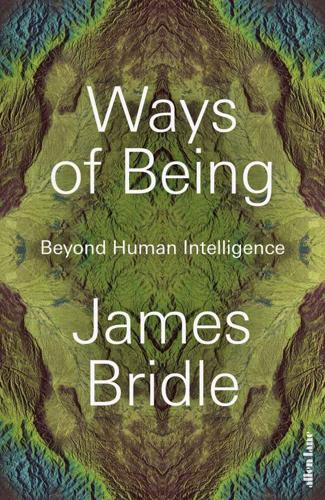
Ways of Being: Beyond Human Intelligence
by
James Bridle
Published 6 Apr 2022
Because of the different ways that different animals react to natural phenomena, according to their size, speed and species, the ICARUS team found it necessary to use particularly complex forms of analysis to pick up on the differences in the data generated from different tags at different times – a welter of subtle and subtly variable signals. To do this, they turned to statistical models developed for financial econometrics: software designed to generate wealth by picking up on subtle signals in stock markets and investment patterns. I like to think of this as a kind of rehabilitation: penitent banking algorithms retiring from the City to start a new life in the countryside, and helping to remediate the Earth. From spy satellites to face-detection algorithms, the tools which currently conjure oppression and inequality can be turned around and put to beneficial uses.
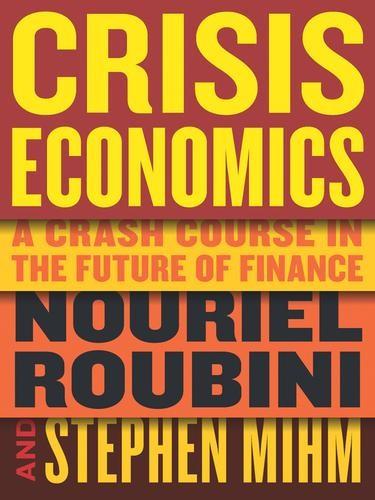
Crisis Economics: A Crash Course in the Future of Finance
by
Nouriel Roubini
and
Stephen Mihm
Published 10 May 2010
The work of Shiller and others suggests that capitalism is not some self-regulating system that hums along with nary a disruption; rather, it is a system prone to “irrational exuberance” and unfounded pessimism. It is, in other words, extraordinarily unstable. That insight is both new and very old. Long before the behavioral economists punctured the myth of the efficient market, a host of nineteenth-century thinkers observed that, for all its remarkable ability to generate wealth, capitalism was prone to remarkable booms and busts. Though these thinkers are rarely read today, they are important because their ideas highlight the fault lines that still divide our understanding of crises and their consequences. The Cradle of Crisis Economics Americans have a reputation for optimism, which may be why they did the most to popularize the Efficient Market Hypothesis.

Narcotopia
by
Patrick Winn
Published 30 Jan 2024
By streamlining the militia’s operations, Wei made Zhang richer. Handling the boss’s money gave Wei a sense of purpose. As a child, his bookishness drew taunts from the other Wa kids, but where were those bullies now? Barefoot and unwashed in some poppy field. His brains trumped their brute strength every time—for as long as his intellect could generate wealth, he was valuable, and some formidable leader such as Zhang would protect him from harm. Zhang doted on Wei, treating him like a little brother. Wei knew his place: never talking back, always submitting to the boss’s demands. Zhang couldn’t have it any other way. He needed to play the alpha in every relationship.

Born in Flames
by
Bench Ansfield
Published 15 Aug 2025
Securing one’s status as a Name at Lloyd’s was, for many, a way to preserve and capitalize on the vestiges of their aristocratic past. Because membership did not involve investment, per se, but instead required putting up one’s assets as collateral for a syndicate’s underwriting (and then amassing premium income), Lloyd’s allowed Names to generate wealth from illiquid assets like estates.25 Tim Sasse was known as a lone wolf in the Lloyd’s orbit. After a string of early successes, he no longer involved himself in the daily minutiae of underwriting, considering it “easy money.” The racetracks were his passion; his crowning achievement was his horse’s victory at the 1973 Prix de l’Arc de Triomphe, considered by many to be the world’s most prestigious horse race.

The War Below: Lithium, Copper, and the Global Battle to Power Our Lives
by
Ernest Scheyder
Published 30 Jan 2024
It was an inevitability that Adam Smith had warned about in his capitalistic guidepost The Wealth of Nations, declaring: “If new mines were discovered as much superior to those of Potosí as they were superior to those of Europe, the value of silver might be so much degraded as to render even the mines of Potosí not worth the working.”10 The grass, truly, is always greener. The silver did not produce generational wealth for Bolivians; much of that went to Spain’s empire, and the country has come to suffer what’s commonly known as the natural resource curse, with mineral-rich colonies often failing to provide basic education or infrastructure for their people. The Bolivia of the twenty-first century is one of the poorest countries in the Western Hemisphere.
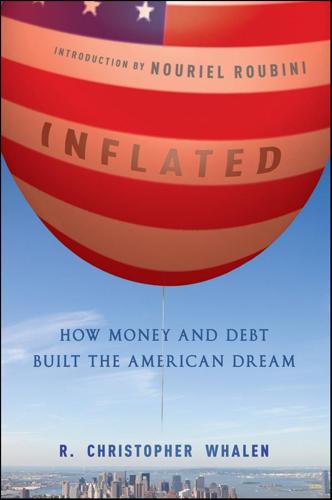
Inflated: How Money and Debt Built the American Dream
by
R. Christopher Whalen
Published 7 Dec 2010
it argued that “if the overriding emergency seems to demand it, let our government give food, not money to Europe. Demand no government reforms in exchange for it; but stamp an American flag, literally or figuratively, on every package.” Hazlitt made the case that the U.S. policy of flooding the world with dollars, via loans, grants and other measures, would not generate wealth in the United States or the recipient nations.12 That is precisely the policy that Washington followed, however, on again and off again, since 1867; to use the expansion of the paper money supply to drive nominal economic growth, even if it meant a reduction in the real value of the currency.
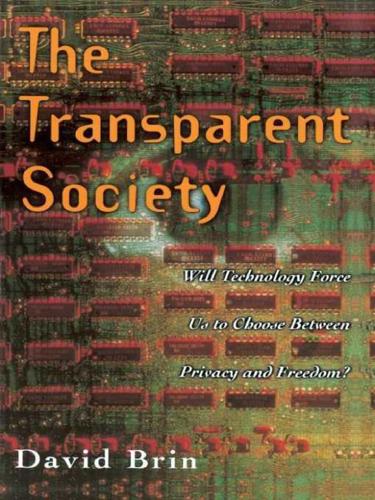
The Transparent Society: Will Technology Force Us to Choose Between Privacy and Freedom?
by
David Brin
Published 1 Jan 1998
Indeed, the adversarial process can be wasteful, disgusting, even puerile in the behavior that it provokes from antagonistic rivals, evoking reproval, disdain, and even dirty tricks. Unfortunately, no one has come up with a better system to effectively promote accountability. Just as competition generates wealth in a fair market, opposition over policy appears to have resulted in a society that is, on the whole, better run and fairer than most other mass cultures. Faced with the penchant of humans to suppress criticism, it seems that the adversarial solution is the best cantankerous Homo sapiens can come up with for the time being.
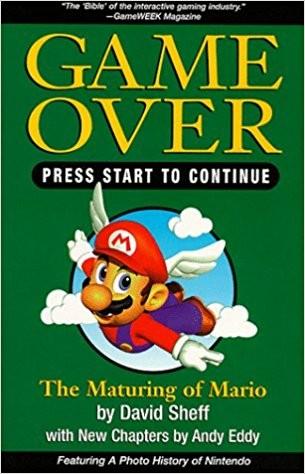
Game Over Press Start to Continue
by
David Sheff
and
Andy Eddy
Published 1 Jan 1993
Now it is a storage closet filled with boxes and mattresses. Behind the garden is the residence, a traditional home built in the style of a Japanese temple. Homes in Japan are measured not in square feet or meters but in tatami mats—the book-thick, rectangular sections of sweet-smelling, woven straw. In past generations, wealth was measured by the number of mats (each smaller than a twin bed) in a family’s home. The average home has eight or ten tatamis; the Yamauchi home has 152. The rooms are partitioned by shoji screens, and the walls that look onto the garden are floor-to-ceiling glass, outlined by dark, weathered wood.
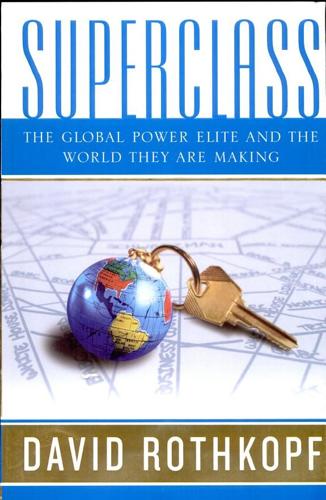
Superclass: The Global Power Elite and the World They Are Making
by
David Rothkopf
Published 18 Mar 2008
Observers like the Nobel Prize-winning economist and Columbia University professor Joseph Stiglitz have argued that elites in Chile and elsewhere in the world have accepted the reforms that suited them, but they have stopped short of accepting the ones that would do the most for society at large. One of Stiglitz’s former colleagues and President Clinton’s chief of staff, Mack McLarty, suggested that the issue of resistance to change has a generational component. “Generational wealth—and I am generalizing here—but…the big families that have been dominant in their economies for a long time, many of them have been disengaged from social issues or concerns,” he told me. “They just kind of put the blinders on and run their particular enterprises. Especially in cases where even the patriarchs today are third or fourth generations of wealth and have been insulated their whole lives, they simply don’t get it or don’t want to get it.”
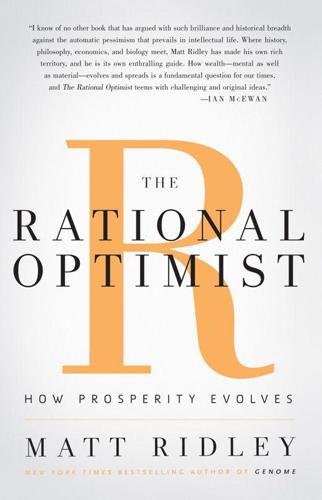
The Rational Optimist: How Prosperity Evolves
by
Matt Ridley
Published 17 May 2010
What Tanzania needs to do, as Europe and America did hundreds of years ago, is not to enforce its unaffordable official legal system, but gradually to encourage this bottom-up, informal law to broaden and standardise itself. De Soto’s team identified sixty-seven bottlenecks that prevent the poor using the legal system to generate wealth. It is this kind of institutional reform that will in the end do far more for African living standards than dams, factories, aid or population control. In the 1930s, Nashville, Tennessee, was rescued from poverty by its music entrepreneurs, using good local copyright laws to start recording indigenous music, not by the giant dams of the Tennessee Valley Authority.
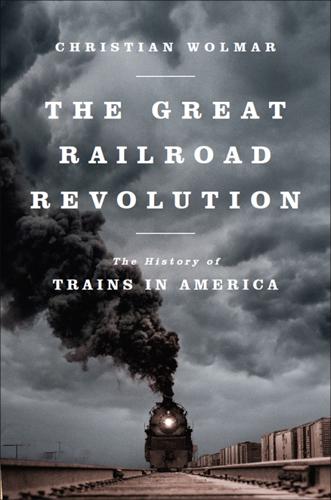
The Great Railroad Revolution
by
Christian Wolmar
Published 9 Jun 2014
After that, the railroads were able to claim, with some justification, that they were a unifying force on a national level: “The middle class traveled to the early political conventions held before the Civil War; to schools that drew students from all parts of the country; to professional gatherings in law, medicine, teaching and library work.”8 The emergent middle class, created in part by the railroad’s ability to generate wealth, were inveterate travelers, able to pursue both business and leisure interests ever farther from home. The railroads encouraged collective travel. Any group, whether it was a local Sunday school or an association of retailers, would negotiate a cheap rate with the railroad company, perhaps even chartering a whole train.
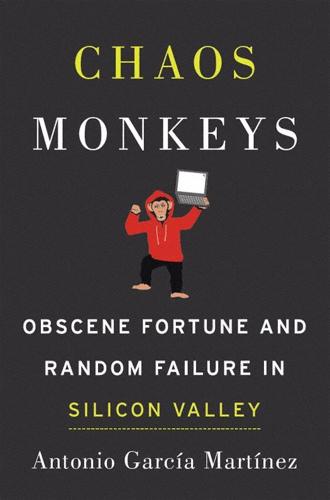
Chaos Monkeys: Obscene Fortune and Random Failure in Silicon Valley
by
Antonio Garcia Martinez
Published 27 Jun 2016
As we’ve discussed previously, all users are certainly not created equal from the monetization perspective. Facebook made the vast majority of its revenue in the United States and Europe; other countries represented but a trickle. Immature advertising markets, the embryonic state of their e-commerce infrastructure, and their lower general wealth meant the impact of new optimization tricks or targeting data on those countries was minimal. And so the Ads team would slice off tranches of the FB user base in rich ads markets and dose them with different versions of the ads system to measure the effect of a new feature, as you would test subjects in a clinical drug trial.* The performance metrics of interest included clickthrough rates, which are a coarse measure of user interest.
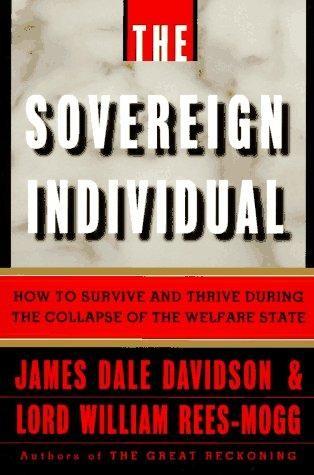
The Sovereign Individual: How to Survive and Thrive During the Collapse of the Welfare State
by
James Dale Davidson
and
William Rees-Mogg
Published 3 Feb 1997
Because favors and restraints of trade wrested from governments will be less valuable, fewer resources will be wasted either to promote or resist lobbying. Those who have employed compulsion and local advantage to redistribute income are destined to lose much of their power. This will alter the command of resources. Privately generated wealth that heretofore has been commandeered by the nationstate will be retained instead by those who earn it. Increasing amounts of wealth will find their way into the hands of the ablest entrepreneurs and venture capitalists worldwide. Globalization, along with other characteristics of the information economy, will tend to increase the income earned by the most talented individuals in each field.
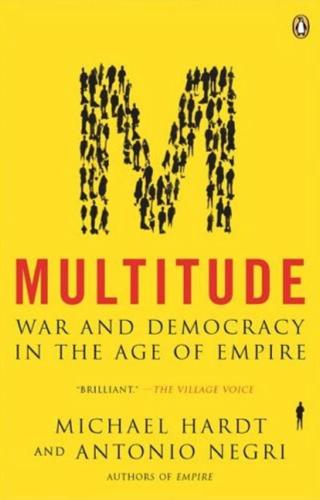
Multitude: War and Democracy in the Age of Empire
by
Michael Hardt
and
Antonio Negri
Published 1 Jan 2004
Labour as absolute poverty: poverty not as shortage, but as total exclusion of objective wealth.” (Grundrisse , 295-96). As soon as Marx poses this negative view of poverty as exclusion, however, he inverts the definition of poverty in a positive form. “Labor not as an object, but as activity; not as itself value, but as the living source of value. [Namely, it is] general wealth (in contrast to capital in which it exists objectively, as reality) as the general possibility of [wealth], which proves itself as such in action.” (Grundrisse, 296). Living labor thus has a double character: from one side it appears as absolute poverty, since it is deprived of wealth, but from the other side Marx recognizes poverty as the ground zero of human activity, as the figure of general possibility and thus the source of all wealth.
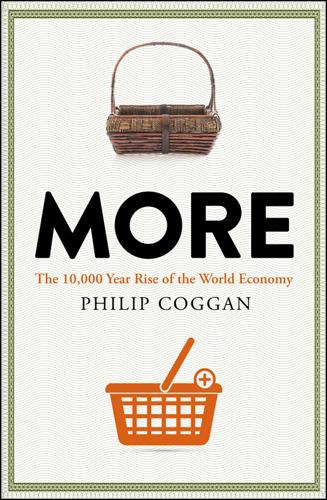
More: The 10,000-Year Rise of the World Economy
by
Philip Coggan
Published 6 Feb 2020
It cost less to take grain from one end of the Mediterranean to another than it did to transport it 75 miles by road.63 That explains why ancient cities were built by rivers or the sea; they simply could not have conducted their trade any other way. But despite their willingness to invest in infrastructure, neither the Greeks nor Romans seemed to have believed that it was their duty to try to expand the economy as a whole. They viewed raising livestock and growing crops as “natural” ways of generating wealth. Rather like the English aristocracy of the late 19th century, they looked down their noses at people who were involved in “trade”, although they were not above benefiting from it through intermediaries. Nevertheless, the Romans did produce important business developments. They created the basis of corporate law in the idea that an association of people could have a collective identity separate from its individual members.
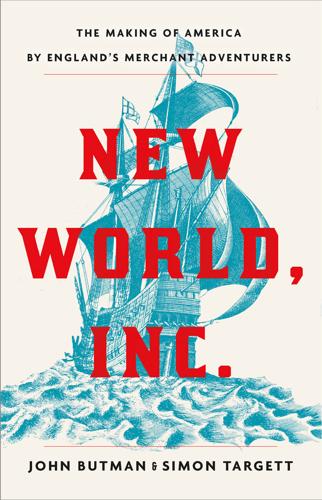
New World, Inc.
by
John Butman
Published 20 Mar 2018
Among Cabot’s responsibilities was the continual updating of the Padrón Real, the Casa’s master chart of the world’s seas.29 Even as he carried out his official duties, Cabot retained his interest in finding a northern passage to the East. In 1519, Cabot—although he was now a Spanish official—was approached by England’s Cardinal Thomas Wolsey, Henry VIII’s powerful adviser, to lead a “voyage of discovery” to the “newfound island” for Henry’s “honour” and “for the general wealth of his realm.” It is not clear what kindled Henry’s sudden interest in the New World, but he pledged to provide ships for the venture if merchants paid for supplies and sailors’ wages. In return for their support, Henry promised to grant a monopoly of trade for ten years and a fifteen-month exemption on paying customs duties.30 The merchants considered the proposal.
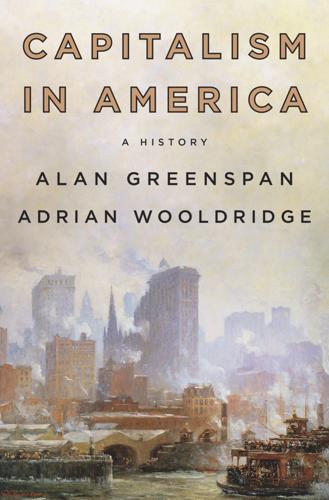
Capitalism in America: A History
by
Adrian Wooldridge
and
Alan Greenspan
Published 15 Oct 2018
William Howard Taft pointedly argued that it was not the mission of the federal government “to be spectacular in the enactment of great statutes laying down new codes of morals or asserting a new standard of business integrity.”32 It was the business of government to establish predictable rules and let business generate wealth. But the ever-restless TR reemerged as a candidate for the Bull Moose Party in 1912 with an even more sweeping set of proposals: a vigorous battle against “the trusts,” further vilification of the malefactors of great wealth, direct elections to nullify unpopular judicial precedents and remove stubborn judges.
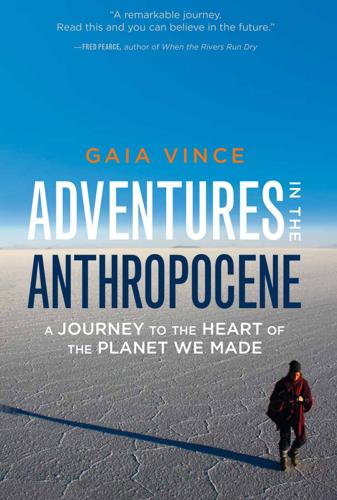
Adventures in the Anthropocene: A Journey to the Heart of the Planet We Made
by
Gaia Vince
Published 19 Oct 2014
Demand has pushed up the price for a range of useful metals from gold to rare earth metals, and as extraction becomes more lucrative it is fuelling the destruction of rainforests and rivers, and financing violence and human-rights abuses across the poor world. And humanity is using ever more of everything – by 2050, global use of fossil fuels, minerals, ores and biomass is expected to treble, soaring to 140 billion tonnes a year.1 The price of metals and other commodities has helped generate wealth in some countries, although whether this trickles down to the poorest depends on governance. Botswana, for example, has used its diamond mines – which are part government-owned – to fund education, health care and other public projects. The Democratic Republic of Congo, on the other hand, has not.
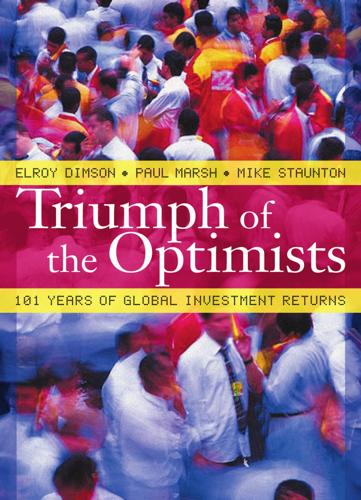
Triumph of the Optimists: 101 Years of Global Investment Returns
by
Elroy Dimson
,
Paul Marsh
and
Mike Staunton
Published 3 Feb 2002
We therefore conjecture two other explanations for why, even over very long periods, we find no link between stock market performance and GDP growth. First, part of the explanation may lie in measurement problems. GDP estimation today is far from the precise science many imagine, but back in 1900 it was excessively crude. Second, we may be misguided in expecting a relationship since GDP can grow without generating wealth gains to equity holders. Over the twentieth century, the three fastest growing economies among our sixteen countries were Japan (3.9 percent per year GDP per capita growth), Italy (2.8 percent), and Spain (2.6 percent). Historically, none of these countries could be accused of having a strong concern with shareholder value.
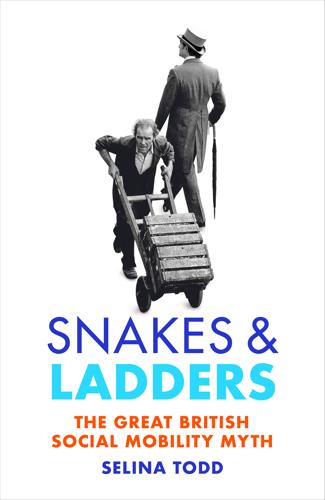
Snakes and Ladders: The Great British Social Mobility Myth
by
Selina Todd
Published 11 Feb 2021
Workers should be provided with technological and managerial training so they could put their ideas into practice. Professionals, such as teachers, nurses and doctors, should be consulted over policy, and the primary aim of economic policy should be providing the health, educational and social services everyone required. That would mean redistributing wealth through taxation and generating wealth through publicly owned enterprises.92 In 1974, following a long-running strike by miners and the institution of a three-day week, Edward Health called a general election, asking the country to choose between him and the strikers. The country was sharply divided, but Harold Wilson’s Labour Party won the largest number of seats and was able to form a minority government (converted into a tiny majority when Wilson returned to the polls in October that year).
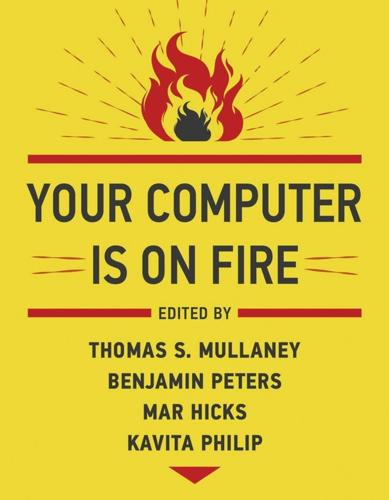
Your Computer Is on Fire
by
Thomas S. Mullaney
,
Benjamin Peters
,
Mar Hicks
and
Kavita Philip
Published 9 Mar 2021
Zuckerberg once said mockingly to a friend who asked why people were uploading all of this private information, “I don’t know why. They ‘trust me.’ Dumb fucks.”5 Decisions about which technologies should exist cannot simply be left to programmers. With the benefit of hindsight and disciplines other than computer science we can clearly see how the internet economy has long generated wealth through taking advantage of existing inequalities, existing infrastructure, and by using venture capital funding to reinvent the wheel, only to crush people who aren’t in the driver’s seat. Some of the earliest corporations to do this appeared to be offering novel solutions—and in some ways were.
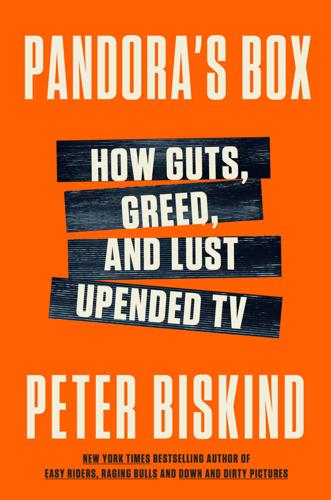
Pandora's Box: How Guts, Guile, and Greed Upended TV
by
Peter Biskind
Published 6 Nov 2023
Generally, HBO and other services like to give creators time to tie up the finales of their important series to avoid upsetting fans—the Deadwood backlash—whereas dropping them midstory reflects badly on the streamer. Zaslav’s protestations to the contrary, one jaded executive claimed, “This is going to be about finding a suitor [for WBD] and riding off into the sunset with even more multi-generational wealth than he already has.”25 Meanwhile, over at Disney, Chapek was finding Iger a hard act to follow. It seemed like every time he opened his mouth he put his foot in it, but when he kept it shut, he made things worse, a case in point being his initial reticence regarding the furor over Florida governor Ron DeSantis’s so-called Don’t Say Gay bill, which potentially criminalized discussion of sexual orientation and gender with children below the third grade and older if considered age-inappropriate, while empowering aggrieved parents to sue to enforce it.
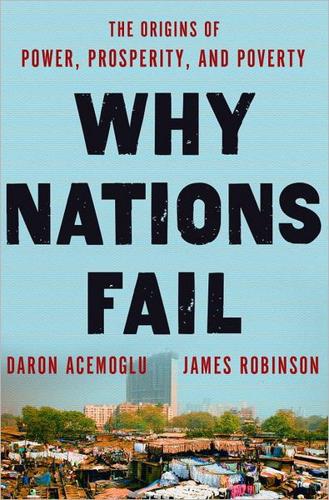
Why Nations Fail: The Origins of Power, Prosperity, and Poverty
by
Daron Acemoglu
and
James Robinson
Published 20 Mar 2012
Extractive institutions are so common in history because they have a powerful logic: they can generate some limited prosperity while at the same time distributing it into the hands of a small elite. For this growth to happen, there must be political centralization. Once this is in place, the state—or the elite controlling the state—typically has incentives to invest and generate wealth, encourage others to invest so that the state can extract resources from them, and even mimic some of the processes that would normally be set in motion by inclusive economic institutions and markets. In the Caribbean plantation economies, extractive institutions took the form of the elite using coercion to force slaves to produce sugar.
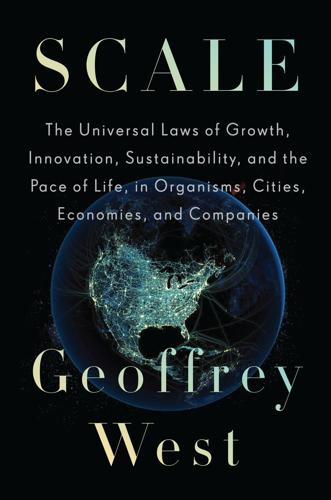
Scale: The Universal Laws of Growth, Innovation, Sustainability, and the Pace of Life in Organisms, Cities, Economies, and Companies
by
Geoffrey West
Published 15 May 2017
Equally important is that this can be quantified and understood within the context of the entire urban system. 9. THE STRUCTURE OF WEALTH, INNOVATION, CRIME, AND RESILIENCE: THE INDIVIDUALITY AND RANKING OF CITIES How rich, creative, or safe can we expect a city to be? How can we establish which cities are the most innovative, the most violent, or the most effective at generating wealth? How do they rank according to economic activity, the cost of living, the crime rate, the number of AIDS cases, or the happiness of their populations? The conventional answer is to use simple per capita measures as performance indices and rank order of cities accordingly. Almost all official statistics and policy documents on wages, income, gross domestic product (GDP), crime, unemployment rates, innovation rates, cost of living indices, morbidity and mortality rates, and poverty rates are compiled by governmental agencies and international bodies worldwide in terms of both total aggregate and per capita metrics.
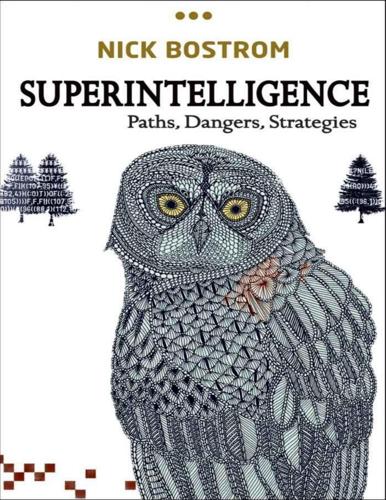
Superintelligence: Paths, Dangers, Strategies
by
Nick Bostrom
Published 3 Jun 2014
Technology research Design and modeling of advanced technologies (e.g. biotechnology, nanotechnology) and development paths • Creation of powerful military force • Creation of surveillance system • Automated space colonization Economic productivity Various skills enabling economically productive intellectual work • Generate wealth which can be used to buy influence, services, resources (including hardware), etc. A system that has the intelligence amplification superpower could use it to bootstrap itself to higher levels of intelligence and to acquire any of the other intellectual superpowers that it does not possess at the outset.

The Washington Connection and Third World Fascism
by
Noam Chomsky
Published 24 Oct 2014
.;” and “broad-based economic growth provides a way to achieve redistribution only where accompanied by social and educational development as well as substantial broadening of political participation.”60 In brief, then, income distribution has tended to worsen in the poor countries of the Free World because growth has generated wealth that has been used not to improve the condition of the masses but to serve the growing consumption needs of a neocolonial elite and the demands of foreign business and finance. The preservation of their position has required a costly diversion of resources into the military (the “insurance policy”) and a subordination of development and welfare needs to the consumption-oriented demands of U.S. open-door entrants and affluent domestic consumers.
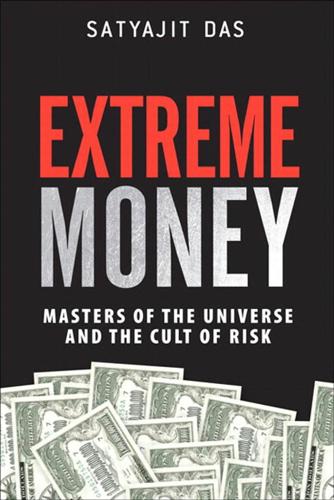
Extreme Money: Masters of the Universe and the Cult of Risk
by
Satyajit Das
Published 14 Oct 2011
London had two priceless advantages—location in the right time zone between the growing markets of Asia and the United States, and the primacy of English law in international finance. The success of London as a financial center mirrors the prestigious annual Wimbledon Tennis Championships. The tournament is held in England, staffed by Englishmen (eastern Europeans and South Asians actually), contested and won generally by foreigners but generates wealth and cultural standing for the UK. The last English man and woman to have won a major title are Fred Perry in 1936 and Virginia Wade in 1977. London is a leading center for international finance where almost all the major players were American, European, Japanese, or Asian. A governor of the Bank of England suggested that this was precisely how things ought to be.5 London and the financial services sector became the engine for UK’s growth and prosperity, supplanting the commercial and trading activity of the British Empire.
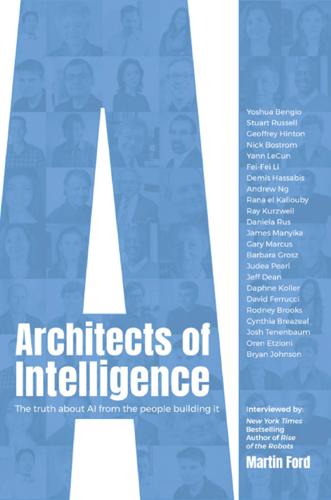
Architects of Intelligence
by
Martin Ford
Published 16 Nov 2018
The first is that effectively, most people are not doing anything that’s considered economically productive. They’re not involved in economic exchange of work for pay in any form, and this is the vision of the universal basic income: that there is a sector of the economy that is largely automated and incredibly productive, and that productivity generates wealth, in the form of goods and services, that in one way or another ends up subsidizing the economic viability of everyone else. That to me does not seem like a very interesting world to live in, at least not by itself, without a lot of other things needed to go on to make life worth living and provide sufficient incentive for people to do all of the things that we do now.
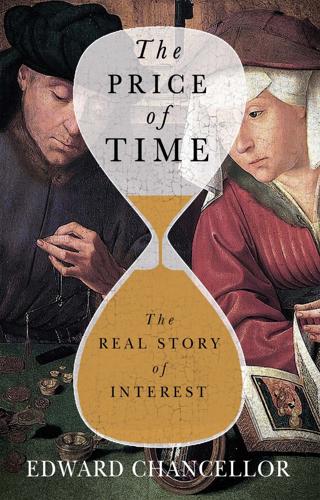
The Price of Time: The Real Story of Interest
by
Edward Chancellor
Published 15 Aug 2022
Góes found that a positive shock to the rate of return relative to growth leads to an expected decrease in the income share of the top 1 per cent in three-quarters of all countries. 128. Lindert and Williamson, Unequal Gains, p. 139. 129. See Rob Arnott, William J. Bernstein and Lillian Wu, ‘The Myth of Dynastic Wealth: The Rich Get Poorer’, Cato Journal, 35 (3), October 2015. This paper argues that most wealth is first-generation wealth and that family fortunes dissipate with the passing of time. 130. Piketty, Capital, p. 172. 15. THE PRICE OF ANXIETY 1. Brendan Brown, A Global Monetary Plague: Asset Price Inflation and Federal Reserve Quantitative Easing (London, 2015), p. 133. 2. Arthur E. Monroe, Early Economic Thought: Selected Writings from Aristotle to Hume (Mineola, NY, 2006), p. 301. 3.
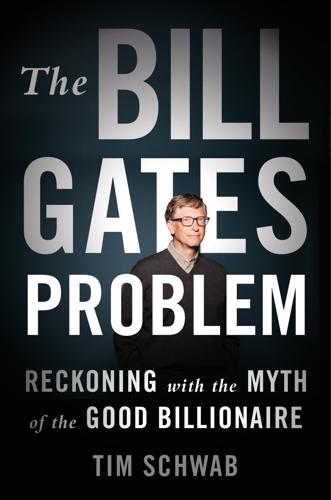
The Bill Gates Problem: Reckoning With the Myth of the Good Billionaire
by
Tim Schwab
Published 13 Nov 2023
Allen was a vital spark plug who helped ignite the corporate engine of what became one of the most influential companies in the world, Microsoft. And, for a time, he was both the business partner and the best friend of one of the most powerful men ever to walk the earth. The name “William Henry Gates III” you also may not immediately recognize. It’s a grand name befitting a man who comes from generational wealth and privilege, a man born on third base. Bill Gates’s mother came from a well-to-do banking family, and his father was a prominent lawyer in Seattle. As Gates described his upbringing, it was “Okay, this is the governor coming to dinner, or here is this political campaign, let’s get involved in this.”
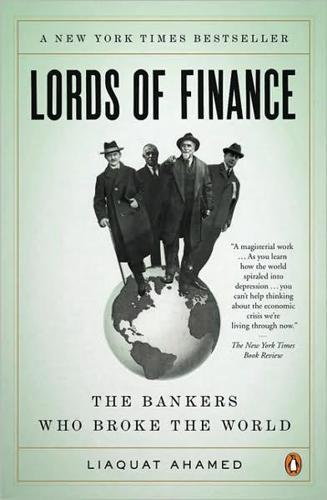
Lords of Finance: The Bankers Who Broke the World
by
Liaquat Ahamed
Published 22 Jan 2009
Strong had chosen for their clandestine meeting the summer home of Ogden L. Mills, undersecretary of the treasury. In an administration whose secretary of the treasury, Andrew Mellon, was the third richest man in the United States, it was in keeping that his deputy should be the heir to a robber baron fortune. Ogden Mills was, however, by the standards of third-generation wealth, a serious man with a law degree from Harvard who had made a career with a respectable white-shoe New York law firm. But he had not completely given up on the privileges of inherited wealth.40 His estate lay on the North Shore of Long Island, now buried under suburban sprawl and, to present eyes, an unlikely setting for a secret conclave of central bankers.
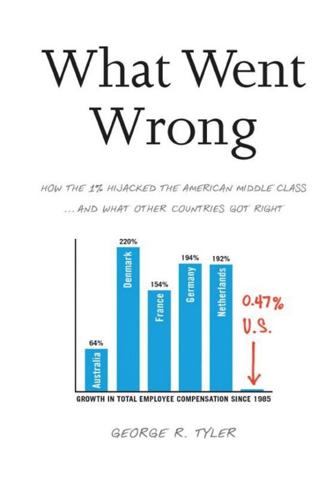
What Went Wrong: How the 1% Hijacked the American Middle Class . . . And What Other Countries Got Right
by
George R. Tyler
Published 15 Jul 2013
It is also because they are needed to preserve the legitimacy of markets by protecting people from the risks and insecurities markets bring with them.”7 Rodrik’s last sentence is a restatement of Adam Smith, and is important. He explains the underlying logic this way: “Markets are most developed and most effective in generating wealth when they are backed by solid governmental institutions. Markets and states are complementary, not substitutes.”8 That same logic was on display in the nineteenth century amid the blooming of globalization, featuring worker rights embodied in the British Factory Acts of 1844 and introduced later by Europeans, notably Germany’s Chancellor Bismarck.9 And it was on display again nearly a century later as Keynes, George Orwell, and Franklin Roosevelt introduced social insurance elements such as unemployment aid and enhanced employee worksite rights to nurture the survival of capitalism against collectivism during the Great Depression.
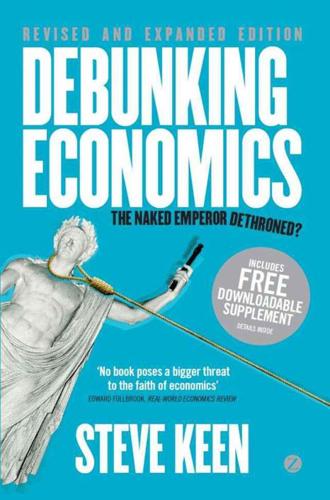
Debunking Economics - Revised, Expanded and Integrated Edition: The Naked Emperor Dethroned?
by
Steve Keen
Published 21 Sep 2011
Physiocrats The first economists to systematically consider this question4 answered that the source of all value was land. The argument, in a nutshell, was that land existed before man did. Therefore man – or more specifically, man’s labor – could not be the source of value. Instead, value came from the land as it absorbed the energy falling on it from the sun. Man’s labor simply took the naturally generated wealth of the land and changed it into a different form. Land generated a surplus, or net product, and this enabled both growth and discretionary spending to occur. Manufacturing, on the other hand, was ‘sterile’: it simply took whatever value the land had given, and transformed it into different commodities of an equivalent value.
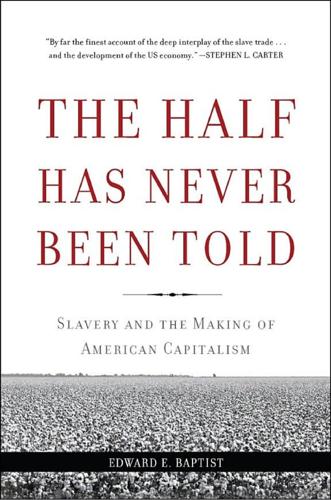
The Half Has Never Been Told: Slavery and the Making of American Capitalism
by
Edward E. Baptist
Published 24 Oct 2016
THE NORTHERN ECONOMY‘S INDUSTRIAL sector was built on the backs of enslaved people. And yet by the 1840s, northerners like John G. Palfrey were increasingly likely to think—from their new vantage point where they stood on those people’s backs—that their business endeavors did not need slavery. As early as the 1830s, Americans in the non-slave states were using cotton-generated wealth to develop a more diversified industrial sector that owed less to trade with the South. For instance, in 1832, the Collins Axe Works, one of the first large-scale manufacturing employers in Connecticut, accounted for almost a quarter of all non-textile manufacturing investment and employment in the state.
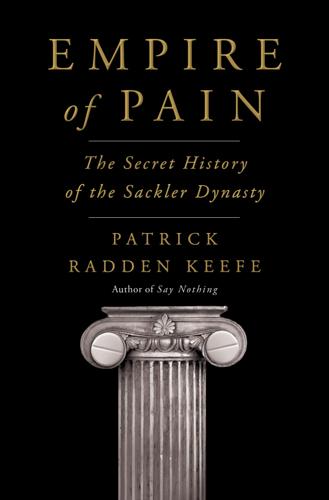
Empire of Pain: The Secret History of the Sackler Dynasty
by
Patrick Radden Keefe
Published 12 Apr 2021
Instead, each man would be entitled to leave a reasonable sum to his heirs, and the rest would pass, eventually, to the charitable trust. “I’d made enough by 1950 for my children and grandchildren,” Arthur later said. “The rest is going to the public trust.” This civic-minded commitment might have been a function of the socialist philosophy that the brothers shared: they would generate wealth, but they wouldn’t hoard it. * * * That ideology was not something the brothers took lightly. Indeed, it was an affiliation for which they would soon be forced to pay. When the Korean War broke out, the U.S. Atomic Energy Commission turned to Creedmoor Hospital for help in researching the effects of burns caused by radioactive substances.
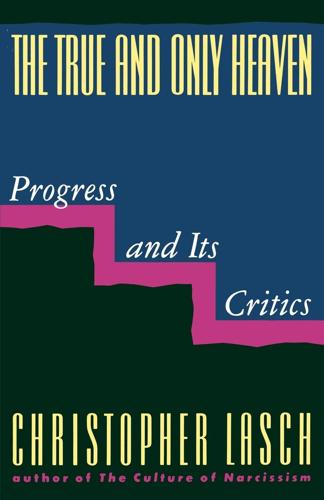
The True and Only Heaven: Progress and Its Critics
by
Christopher Lasch
Published 16 Sep 1991
"The American people, at this point of our history, are looking for leadership that argues for economic growth strategies." -507- Tsongas, who described himself as a "liberal on social issues," found a "lot of liberal doctrine on economics" offensive to his "pro-business" sensibilities. If any given policy "generates wealth and helps the economy and makes us more competitive, we're for it." When Michael Dukakis announced in 1988, "This election is not about ideology, it's about competence," he expressed the essence of neoliberalism. It was typical of this group that they wanted to make the federal deficit the overriding issue of the eighties, ignoring issues that "middle Americans" considered more important (the distribution of wealth and privilege, the declining prospects of the middle class, the loss of moral purpose), and that they proposed to reduce the deficit not only by cuts in the defense budget but by heavy taxes on tobacco, beer, and hard liquor—the traditional consolations of the working class.

Enlightenment Now: The Case for Reason, Science, Humanism, and Progress
by
Steven Pinker
Published 13 Feb 2018
Radelet and other development experts point to five causes.31 “In 1976,” Radelet writes, “Mao single-handedly and dramatically changed the direction of global poverty with one simple act: he died.”32 Though China’s rise is not exclusively responsible for the Great Convergence, the country’s sheer bulk is bound to move the totals around, and the explanations for its progress apply elsewhere. The death of Mao Zedong is emblematic of three of the major causes of the Great Convergence. The first is the decline of communism (together with intrusive socialism). For reasons we have seen, market economies can generate wealth prodigiously while totalitarian planned economies impose scarcity, stagnation, and often famine. Market economies, in addition to reaping the benefits of specialization and providing incentives for people to produce things that other people want, solve the problem of coordinating the efforts of hundreds of millions of people by using prices to propagate information about need and availability far and wide, a computational problem that no planner is brilliant enough to solve from a central bureau.33 A shift from collectivization, centralized control, government monopolies, and suffocating permit bureaucracies (what in India was called “the license raj”) to open economies took place on a number of fronts beginning in the 1980s.
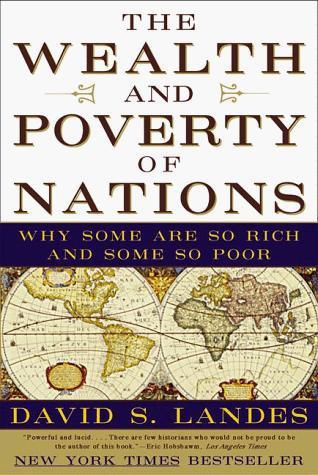
The Wealth and Poverty of Nations: Why Some Are So Rich and Some So Poor
by
David S. Landes
Published 14 Sep 1999
“The Ottoman state was a plunder machine which needed booty or land to fuel itself, to pay its way, to reward its officer class.”10 The Ottomans had originally filled a power vacuum—had taken over a region once strong, now enfeebled—looting as they went. Now they could no longer take from outside. They had to generate wealth from within, to promote productive investment. Instead, they resorted to habit and tried to pillage the interior, to squeeze their own subjects. Nothing, not even the wealth of high officials, was secure. Nothing could be more self-destructive. The only thing that saved the empire from disintegration was its inefficiency, the venality of its officials, and the protective interests of stronger powers.
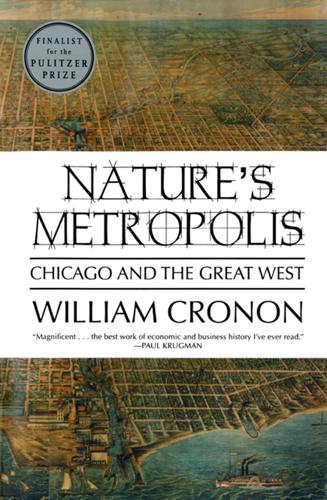
Nature's Metropolis: Chicago and the Great West
by
William Cronon
Published 2 Nov 2009
One rural delegate used almost the same metaphors to attack the Board and its “grain gamblers” as Joseph Medill had used against the elevators: “They are leeches upon commerce and the community, that suck the life blood out of the farmers and dealers in grain, without contributing anything towards the general wealth or productions of the country. They swarm like lice upon the body politic and feed and fatten upon its substance.”190 From this perspective, those who stalked the floor of ’Change to amass fortunes by buying and selling futures, cornering markets, and trading grain without adding any value to it shared the corruption of the elevator operators.
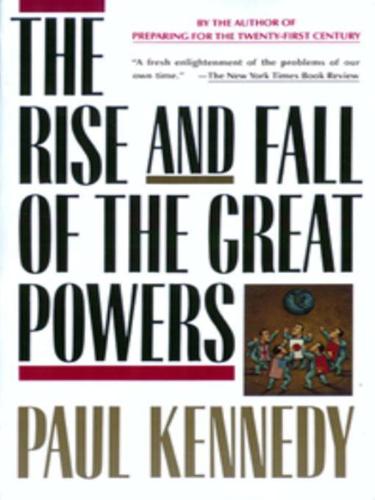
The Rise and Fall of the Great Powers: Economic Change and Military Conflict From 1500 to 2000
by
Paul Kennedy
Published 15 Jan 1989
That these (totaling some £2 million) were given, and that the English government neither declared itself bankrupt nor failed to pay its troops, was testimony to the skill and prudence of the monarch and her councillors; but the war years had tested the entire system, left debts to the first Stuart king, and placed him and his successor in a position of dependence upon a mistrustful Commons and a cautious London money market.69 There is no space in this story to examine the spiraling conflict between crown and Parliament which was to dominate English politics for the four decades after 1603, in which finance was to play the central part.70 The inept and occasional interventions by English forces in the great European struggle during the 1620s, although very expensive to mount, had little effect upon the course of the Thirty Years War. The population, trade, overseas colonies, and general wealth of England grew in this period, but none of this could provide a sure basis for state power without domestic harmony; indeed, the quarrels over such taxes as Ship Money—which in theory could have enhanced the nation’s armed strength—were soon to lead crown and Parliament into a civil war which would cripple England as a factor in European politics for much of the 1640s.

Vegetarian Cooking for Everyone
by
Deborah Madison
Published 14 Aug 1997
But they’re also beneficial for everyone since they’re rich in fiber and aid in reducing cholesterol. In addition, beans are tremendously versatile. When it comes to color and form, beans can be truly dazzling. While supermarket shelves have long confined their selection to only a few of the plainer types, there is a generous wealth of varieties among the newly introduced heirloom beans that can be as small as a grain of rice or as large as a quail’s egg and display a range of colorful and bizarre markings with names to match. Similarly, the vast array of lentils and peas found crammed into sacks and bins in any good Indian or other ethnic market come in every color imaginable.
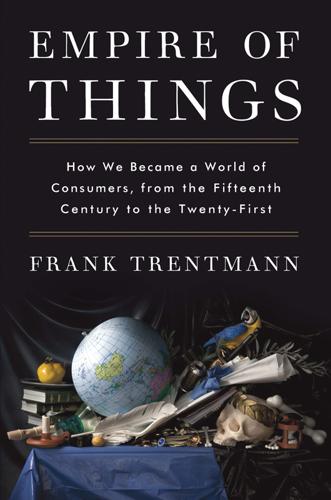
Empire of Things: How We Became a World of Consumers, From the Fifteenth Century to the Twenty-First
by
Frank Trentmann
Published 1 Dec 2015
When I leave the house on Sunday mornings I leave happy in the knowledge that my husband will be caring for them and that they will all enjoy some ‘quality time’ together. I also get a well needed break from the children and household . . . I look forward to my own independent time.115 Liberators claimed that deregulation would both set families free and generate wealth and employment. The opposing side cited Marks and Spencer, the quintessential British shop, which opposed Sunday trading because it would merely spread six days’ business over seven days. The liberators lost. With a twist of historical irony, the same Iron Lady who crushed the mighty unions and deregulated the City failed to crack open shop doors on Sunday.

Lonely Planet Brazil
by
Lonely Planet
In the late 19th century, many migrants from southeastern Brazil arrived in the area, so Mato Grosso do Sul has a greater number of smaller farms and much more intensive agriculture compared to the large ranches in the north. All this is thanks to the rich red earth, known as terra roxa, which has generated wealth and a modern agricultural sector. The main crop is soy, but there’s also corn, rice, cotton and cattle. The region also encompasses two-thirds of the Pantanal and the Serra da Bocaina, two wonderful natural areas. Campo Grande %0xx67 / Pop 874,200 / Elev 592m Known as the Cidade Morena (dark-complexioned city) for its red earth, Campo Grande is the capital of Mato Grosso do Sul and the main gateway to the southern Pantanal.
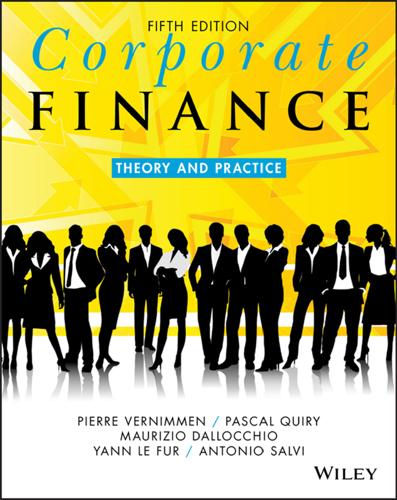
Corporate Finance: Theory and Practice
by
Pierre Vernimmen
,
Pascal Quiry
,
Maurizio Dallocchio
,
Yann le Fur
and
Antonio Salvi
Published 16 Oct 2017
Next you must master the basic techniques of accounting, including accounting principles, consolidation techniques and certain complexities (Chapters 6 and 7), based on international (IFRS) standards now mandatory in over 80 countries, including the EU (for listed companies), Australia, South Africa and accepted by the SEC for US listing. In order to make things easier for the newcomer to finance, we have structured the presentation of financial analysis itself around its guiding principle: in the long run, a company can survive only if it is solvent and creates value for its shareholders. To do so, it must generate wealth (Chapters 9 and 10), invest (Chapter 11), finance its investments (Chapter 12) and generate a sufficient return (Chapter 13). The illustrative financial analysis of the Italian appliance manufacturer Indesit will guide you throughout this section of the book. Section II reviews the basic theoretical knowledge you will need to make an assessment of the value of the firm.
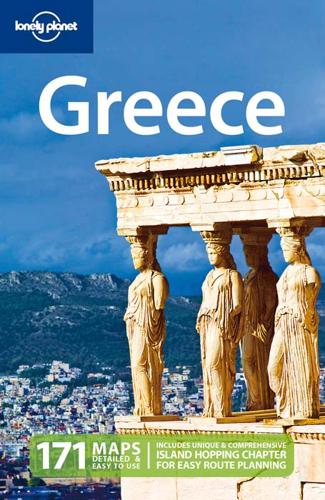
Greece
by
Korina Miller
Published 1 Mar 2010
Greeks are visibly wealthier, as the new generation of Athenian yuppies in designer clothes, clutching the latest mobile phones and driving new cars will attest. Well-to-do farmers drive the latest 4WD pick-up truck and the shepherds have mobile phones. More Greeks are now travelling and studying abroad. Greek children, meanwhile, are now the fattest in the EU and many teenagers are addicted to internet games. High levels of home ownership, generational wealth and family support structures – plus a decade of economic boom times – go a fair way to explaining a lifestyle that is pretty much out of sync with average incomes. Greek wages remain among the lowest in the EU, yet the cost of living has risen dramatically, particularly since the introduction of the euro in 2002.
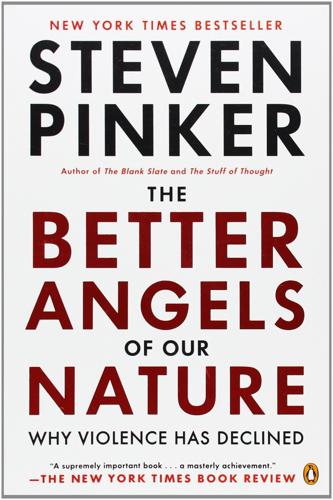
The Better Angels of Our Nature: Why Violence Has Declined
by
Steven Pinker
Published 24 Sep 2012
But from there downward the risk shoots up: for countries with a per capita GDP of $750, it is 6 percent; for countries whose people earn $500, it is 8 percent; and for those that subsist on $250, it is 15 percent.28 A simplistic interpretation of the correlation is that poverty causes war because poor people have to fight for survival over a meager pool of resources. Though undoubtedly some conflicts are fought over access to water or arable land, the connection is far more tangled than that.29 For starters, the causal arrow also goes in the other direction. War causes poverty, because it’s hard to generate wealth when roads, factories, and granaries are blown up as fast as they are built and when the most skilled workers and managers are constantly being driven from their workplaces or shot. War has been called “development in reverse,” and the economist Paul Collier has estimated that a typical civil war costs the afflicted country $50 billion.30 FIGURE 6–5.

The Complete Novels Of George Orwell
by
George Orwell
Published 3 Jun 2009
But it was also clear that an all-round increase in wealth threatened the destruction–indeed, in some sense was the destruction–of a hierarchical society. In a world in which everyone worked short hours, had enough to eat, lived in a house with a bathroom and a refrigerator, and possessed a motor-car or even an aeroplane, the most obvious and perhaps the most important form of inequality would already have disappeared. If it once became general, wealth would confer no distinction. It was possible, no doubt, to imagine a society in which wealth, in the sense of personal possessions and luxuries, should be evenly distributed, while power remained in the hands of a small privileged caste. But in practice such a society could not long remain stable.